
The Best Education Centre in Jalandhar Are you in Jalandhar and looking for a computer coaching centre near you? Education centres in jalandhar are incredible resources for people of all ages who want to learn. Jalandhar is a big city and has seen a significant rise in the demand for education. Computer coaching centres play an important role in shaping the future of youth. O7 Services is an ISO 9001:2015 Certified Company and is blessed with a Strong and Talented Team. Having a rich experience of 5+ successful years, O7 mainly deals with Web Development, Mobile App Development, Custom Software Development, Web Development, Digital Marketing, Ethical Hacking, Graphic Designing, E-mail Marketing, and many more. The importance of computer coaching centres in jalandhar and how they contribute to the development of learners. Nowadays, being good with computers is not just nice. It is really important whenever you are at school, an office, a bank, hope, even at home use of a computer is normal. From basic to advanced our skilled team is always ready to serve the customers with technically sound solutions that are both excellent and affordable. We try to keep our procedure transparent by regularly updating our clients, day-to-day conversations with them, and providing support after deployment. If your child is aiming to excel academically, a professional seeking to enhance your career prospects, find the right computer learning centre. Types of education use in Coaching Centre Primary Education centre:- they are responsible for providing basic technology for beginners. Secondary Education centre:– they aimed at students for providing advanced technology. Higher Education Centre:- They offer post secondary education programs to seek the advanced skills and knowledge for their career. Traditional schooling and Personalised learning in Jalandhar The education centre in Jalandhar has bridges between personalized learning and traditional schooling. They offer supplementary classes, online/offline classes, tutoring, and specialized courses that cater to the diverse needs of students. Education centers are a sportive system, helping learners and understanding the difficult concepts. Magnify Learning Outcomes Education centre in Jalandhar foster an environment conducive to learning. Our skilled team is always ready to serve the customers with technically sound solutions that are both excellent and affordable. We try to keep our procedure transparent by regularly updating our clients, day-to-day conversations with them, and providing support after deployment. Help to Grow Education centres provide a platform for students to explore their interests and talents beyond the confines of conventional education. Whether it’s C, C++, Java, Python, PHP, Java script, Node,etc. These centres offer the opportunities for students to discover and nurture their passion. Fostering a Culture of Excellence Computer centres play a crucial role in nurturing a culture of excellence. By offering comprehensive study materials, 1 yaer courses validity, files and PPT and personalized guidance, these centers empower students to strive for IT success. Supporting Various Learning Needs The Computer Learning Centre in Jalandhar recognizes this offers customised learning solutions and diversity tailored to individual requirements. Whether it’s advanced courses for high achievers or remedial classes for struggling students these centres ensure that every learner receives the support they need to reach their full potential. Conclusion: Education coaching centers play a big role in Jalandhar’s educational ecosystem by enriching traditional schooling and the learning experience. Through innovative, personalized attention, teaching methods, and a diverse range of programs, these centers empower students to nurture their talents, excel academically and become lifelong learners. This is brief information about the Computer Education Centre. If you are interested in making a career in the computer field, then for more details you can visit the official website O7 Services in Jalandhar.

Introduction to Digital Marketing vs Affiliate Marketing Which is better? Some people have many questions in their mind before starting an online business. There is such a question based on their business, model, ideas and target audience. Which is better between digital marketing vs affiliate marketing? These are two popular marketing strategies. They are used to reach out to people and to promote them. Today, we will discuss this topic in detail and in detail. This will enable you to make a wise choice while starting and growing your online business. Meaning of Digital Marketing: Digital marketing means reaching potential buyers through the internet. It includes search engine optimization (SEO), pay per click (PPC), advertising, social media marketing, email marketing, and content marketing. With this type of marketing, you can reach a large number of people and easily track the results of your campaigns. This makes digital marketing a tree of generating leads. Developing a digital marketing strategy by combining different channels will help you in generating good results. Elements of the Digital Marketing: 1.Content Marketing: Content marketing is a marketing strategy that centres on producing, disseminating, and publishing content for a specific online audience.[1] Businesses frequently use it to accomplish the following objectives: draw attention and create leads; grow their clientele; produce or boost online sales; enhance brand recognition or credibility; and interact with an online user community. By producing and disseminating worthwhile free content, content marketing helps businesses build long-lasting brand loyalty, gives customers useful information, and encourages them to buy from them in the future. All of these strategies help businesses draw in new clients. 2. SEO (Search Engine Optimisation): Search engine optimization, or SEO, is still what it stands for. It speaks of methods that raise the position of your website in search engine results pages (SERPs). This increases the visibility of your website on search engines such as Google, Yahoo!, and Bing for users who are looking for solutions that your company, product, or service can offer. A website’s chances of gaining business are higher the more visible it is on search engines. The position of a website, or its ranking, on search engine results pages (SERPs), is a common indicator of its visibility. Also, businesses constantly compete for placement on the first page, as this is where readers are most likely to notice them. 3. Mobile Networking: Mobile marketing is a multi-channel online marketing strategy that uses websites, e-mail, SMS and MMS, social media, mobile applications, and feature phones, tablets, or any other relevant device to target a specific audience. Customers can receive personalised, time- and location-sensitive information from mobile marketers that promotes products, services, ideas, and appointment reminders. To put it more theoretically, “any marketing activity conducted through a ubiquitous network to which consumers are constantly connected using a personal mobile device” is how academic Andreas Kaplan describes mobile marketing. 4. Social Media Marketing: The practice of promoting a good or service through social media platforms and websites is known as social media marketing. Social media marketing is gaining popularity among practitioners and researchers alike, despite the fact that e-marketing and digital marketing are still widely used in academic circles. Businesses can monitor the development, effectiveness, and engagement of social media marketing campaigns thanks to the data analytics tools that are integrated into the majority of social media platforms. Through social media marketing, businesses reach out to a variety of stakeholders, such as the public, journalists, bloggers, current and potential employees, and customers. 5. PPC (Pay-Per-Click): A publisher (usually a search engine, website owner, or network of websites) is paid by an advertiser only when an ad is clicked in the pay-per-click (PPC) online advertising model, which is used to drive traffic to websites. First-tier search engines (like Google Ads, Amazon Advertising, and Microsoft Advertising, formerly Bing Ads) are typically linked to pay-per-click advertising. When using search engines, advertisers usually place bids on keyword phrases that are pertinent to their intended audience and only pay when clicks are made on text-based search ads or shopping ads that combine text and images. Conversely, content websites typically do not employ a bidding system; instead, they charge a set price per click. Meaning of Affiliate Marketing: An organization that owns less than the majority of another’s stock in a business is called an affiliate. A relationship in which at least two distinct businesses are subsidiaries of a larger parent company is referred to as an affiliation. Recently, affiliate marketing has become a popular approach for ecommerce companies. The procedure whereby a company pays an affiliate a commission to advertise their goods via social media, blogs, websites, and emails. By leveraging present clients and brand advocates as a conduit for marketing outreach, affiliate marketing harnesses the power of network effects in brand outreach. An affiliate receives a commission for each visit, sign-up, or sale they bring in for a merchant under the terms of affiliate marketing. Businesses can outsource a portion of the sales process with this arrangement.[1] This type of performance-based marketing uses a commission to incentivize the affiliate; typically, the commission is a portion of the product price being sold, but it can also be a fixed fee per referral. Elements of Affiliate Marketing: 1. Advertiser/Merchant: This is the company or business that offers a product or service that needs to be promoted. They give affiliates individualised tracking links or affiliate codes so they can identify which affiliate is responsible for generating the sale. 2. Affiliate: An affiliate is an individual or an outside business that works with the advertiser. They promote the advertiser’s products and services via a range of marketing channels, such as blogs, websites, social media, email marketing, and other online platforms. 3. Consumer: After viewing the affiliate’s promotional content, these are the people who click on the affiliate’s unique tracking link to visit the advertiser’s website. 4. Conversion: A user completes a desired action on the advertiser’s website, such as making a purchase, signing up for a newsletter, or
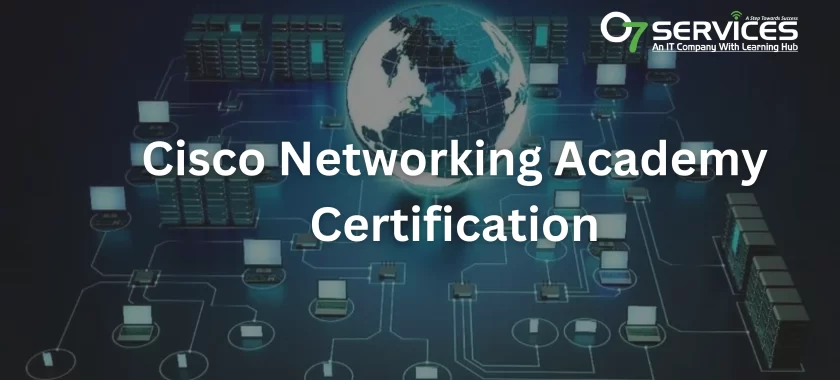
Cisco Networking Academy Certification CISCO NETWORK ACADEMY: INTRODUCTION On January 1, 2004, Daffodil International University (DIU) received authorization to function in Bangladesh as the Cisco Networking Academy Certification. DIU gives courses for specialists and college students to put together for the hastily expanding worldwide network necessities of the twenty-first century, considering Bangladesh and the global context. The IT industry’s increase has pressured people to turn out to be well-versed in new generation and keep technical integrity. CISCO NETWORK ACADEMY: HISTORY The Cisco Networking Academy software, launched in 1997 across seven US states, concerns 64 instructional establishments. BUET, initiated in Bangladesh in 2001, now operates a regional academy and nine local academies in the country with UNDP aid. The application’s worldwide significance grew, leading to extra training centers. CISCO NETWORK ACADEMY: PURPOSE Cisco created the CCNA Program to generate ready graduates able to meeting the increasing desires of pc networking and its applications, both domestically and the world over. CISCO NETWORKING ACADEMY CERTIFICATION: Are you prepared to advance inside the extensive subject of community era? The esteemed Cisco Networking Academy certification is the most effective one to keep in mind. In the linked international of nowadays, where digitalization is king, having a network certification from Cisco Networking Academy can open up doors to opportunities you never could have imagined. Why do you maintain choosing to become certified by means of the Cisco Networking Academy? Cisco Networking Academy’s willpower to excellence in networking equips college students with comprehensive education, validation, and realistic labs. The academy simulates actual-global situations, providing cutting-edge sources, informed teachers, and realistic labs for fulfillment inside the evolving business enterprise. Furthermore, there may be no assessment to the credibility and reputation that incorporates incomes a Cisco Networking Academy certification. Having Cisco Networking Academy certifications can open doorways to loads of profession paths. CISCO CERTIFICATIONS: The list of certifications that Cisco Systems offers is known as Cisco Certifications. Associate (CCNA/CCDA), Professional (CCNP/CCDP), Expert are the four to five certification levels (course to community designers). Additionally, there are 9 wonderful paths for each technical subject: Routing & Switching, Design, Industrial Network, Network Security, Service Provider Operations, Storage Networking, Voice, Datacenter, and Wireless. Numerous specialised technicians, salespeople, business professionals, information middle certified teachers, and CAI (Cisco Academy Instructor) licensed teachers also are present. CCNP (CISCO CERTIFIED NETWORK PROFESSIONAL): Cisco Networking Academy offers a CCNP certification program for community specialists, demonstrating competencies for complex network design, implementation, and troubleshooting. The program covers network security, superior routing and switching, and troubleshooting, opening doorways to lucrative career possibilities and global recognition in networking. One of the pinnacle schools in the Jalandhar region is O7 Services, which affords an extensive CCNP (Cisco Certified Network Professional) program designed for newbies and beginners. Reputably identified as an ISO 9001:2015 licensed virtual advertising and marketing schooling provider, O7 Services is also an IBM Certified, Microsoft Accredited, and Google Partner. CCNA (CISCO CERTIFIED NETWORK ASSOCIATE): The Cisco Networking Academy gives an entry-stage CCNA (Cisco Certified Network Associate) certification software to individuals who want to start a profession in networking. As a precious credential for aspiring network experts, the CCNA certification validates essential networking competencies and know-how. The CCNA certification offers a strong foundation for destiny profession advancement in networking by way of demonstrating an individual’s talent in essential community configurations, troubleshooting, and protection concepts. Our CCNA direction at O7 Services. CONCLUSION: Overall, Cisco Networking Academy certification is paramount on this generation driven epoch. It is more than just a certification; it is proof of your proficiency, expertise, and commitment to networking excellence. So with a Cisco Networking Academy certification, you can bounce to new heights, and why settle for mediocrity? With Cisco Networking Academy, begin your journey closer to community mastery and take the first step towards a higher destiny right now.

How To Find Keywords For Google Ads Google Ads: What Is It? There is no denying the fact that How to find keywords for Google Ads has become increasingly prominent around the different corners of the world. To get the answer of this question, it must to know what is Google Ads and Keywords are. Advertisers use Google Ads, a pay-per-click (PPC) advertising platform, to pay for each click (or impression) on their ads. You can find keywords for your search campaigns, advertisements and product promotions with the aid of the Google Keyword Planner. Using this free tool, you can find new keywords associated with your company and get estimates of the number of searches that will lead to them and the cost of doing so. This is all possible by using the Google Keyword Planner. Why use Google to advertise? With millions of searches from users every day, Google is the most popular search engine. Not to mention, Google Ads has some seniority and authority in the paid advertising space due to its nearly two-decade existence. According to Insider Intelligence’s forecast, Facebook is anticipated to account for 58.5% of Meta’s total global ad revenues, or $121.90 billion. Google AdWords is being used by your rivals; they may even be placing bids on your branded terms. Because Google Ads is used by hundreds of thousands of businesses to advertise, your results will appear below those of your competitors even if you rank organically for the search volumes. How do Google AdWords operate? The searcher, the advertiser, and the Google Ads platform are the three parties involved in the Google Ads process. Everybody has a part to play in making Google Ads function so that companies and advertisers can profit and consumers can discover or find—and possibly purchase—goods and services that fulfil their needs. This is an explanation of what goes on behind the scenes in 1. Google AdWords bidding is based on keywords Search. Advertisers can inform Google of the keywords they want to see their ads for by placing bids on those terms. The amount paid for each keyword can vary from a few dollars to hundreds of dollars. Typically, advertisers allocate a certain amount of money each day to bid on specific keywords.It is also possible to customise your ads to fit within your budget, regardless of the size of your company or the resources at hand. With the Google Ads tool, you can pause or stop your ad spending at any time while staying within your monthly cap. 2. Prospective buyers conduct a Google keyword search. The prospective client then looks up a keyword that an advertiser has placed a bid on. Advertisements for goods or services that closely match the query’s intent will appear on the SERP. Ad rank has a major influence on what ads users discover and in what search. 3. Based on ad rank, Google displays ads for that keyword. Google works quickly in the background to complete a process known as ad rank between the time a user types their search query into Google’s search bar and the instant the SERP for that keyword appears. Google ranks advertisers in order of total available ad spaces on the SERP, and does so in a matter of seconds. To decide who ranks first, second, third, and so on, they take into account both the quality score of the keyword and the amount of money that advertisers have bid on it. Factors That Influence Google Ads Keywords: Researching keywords is crucial for both sponsored advertisements and organic search results. As much as possible, your keywords should reflect the searcher’s intent. This is so that Google can match search queries in your ad with the keywords you have chosen.The ideal number of keywords for each ad group you create within your campaign is one to five, and Google will display your ad based on those selections. Definition of Keywords: Keywords are terms or phrases that are used in your ads to correspond with terms that users are typing into search engines.For your advertising campaign, choosing relevant and high-quality keywords will help you reach the right customers at the right time. How keywords works: The keywords you select must coincide with the words or phrases that people search for in order for your ads to show up when they look for your good or service. For Example: You can include “buy Frisbee” as a keyword in your Google AdWords campaign if you sell Frisbees. Your advertisement may show up on the search results page when someone types in “buy Frisbee” into Google. Furthermore, in the event that your Search campaign is targeting the display network as well, your advertisement may show up on websites that discuss ultimate Frisbee. How keyword works in Google? Most of the time, people search on Google and other search engines how to find keywords for Google ads, which is not a good move. Google may find you a number of keywords, but the question is, are all of those keywords suitable for your advertisement? Did you really get the appropriate answer to How to Find Keywords for Google Ads? To find the right answer, knowledge of keywords is necessary. Your advertisement goes up for auction to decide whether to display when a customer searches for a term that matches your Google AdWords find keywords. Each keyword will have a different price based on its quality, the level of competition it has in the auction, and other variables. Every keyword has a Quality Score to assist you in understanding its quality. Expected click-through rate, ad relevancy, and landing page experience are the three factors that go into this score. Better ad positions and reduced costs are usually the result of higher quality ads that are relevant to user searches. Study up on Quality Score. How to build a keyword list? How to find keywords for Google Ads can be stress free. To help display your ads to the customers you want,
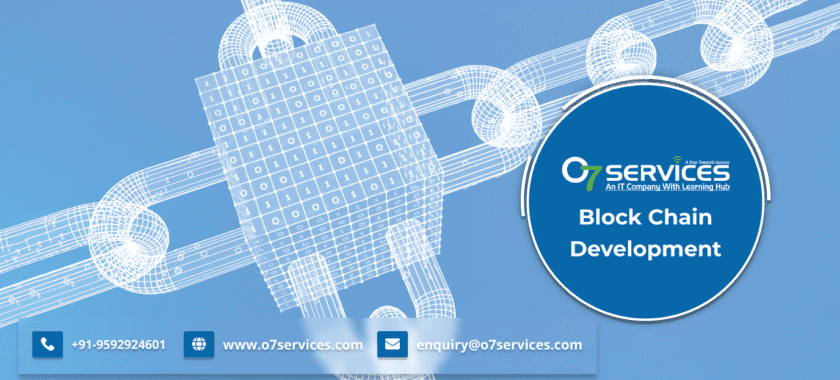
What is a Blockchain Development? What is a Blockchain Development: Have you ever had trouble grasping ideas like distributed ledger technology, the creation of blockchains, and cryptocurrencies? Don’t panic; you are not by yourself. With good reason, these expressions are frequently employed in today’s technologically sophisticated culture. I guarantee we’ll make things so basic that your granny could follow us as we take a stroll around the world of blockchain. Imagine your digital diary, which you use to jot down your daily expenses, but imagine it on steroids and without a single bossy owner. That’s the magic of blockchain—it’s a chain of blocks, each carrying a list of transactions. And guess what? It’s not hoarded in one corner, owned by some big shot. Nope, it’s spread out across a gang of computers. This decentralized thing makes it hard to mess with, like trying to change your grandma’s secret cookie recipe. Blockchain development is like the behind-the-scenes work of creating, launching, and taking care of these digital diaries. Developers use fancy tools and languages to build the blocks of the chain. The result? A clear, unchangeable record of transactions that are shaking up the way we deal with data. It’s like turning your messy closet into a neat bookshelf. Cryptocurrency Development: Beyond Bitcoin Now, let’s chat about the rock star of blockchain—cryptocurrencies. Sure, you’ve heard of Bitcoin, the OG of the gang. But did you know there are thousands of others? It’s like a cryptocurrency party out there. Creating cryptocurrencies is like making digital cash, but it’s not ruled by any big-shot government or money boss. Cryptocurrencies use secret codes (cryptography) to make transactions safe and control the creation of new digital coins. Think of it as sending money around the world without dealing with banks or crazy fees. It’s the future of PayPal, but without the wallet-draining charges. Distributed Ledger Technology: The Power of Many So, what is Blockchain Development? It’s time to add a dash of spice to Distributed Ledger Technology (DLT). Picture DLT as the backbone of blockchain, the unsung hero. Although DLTs include blockchain, not all DLTs rely on a chain of blocks—it’s like saying all dogs are animals but not all animals are dogs. DLT is essentially a technology that distributes information among a group of computers to ensure consensus without a central authority. This team effort lowers the risk of one big oopsie and makes data more secure and honest. From tracking your coffee’s roots to confirming your fancy handbag is the real deal, DLT isn’t just about money stuff. In Conclusion: The Future is Looking Bright and Block-y What is a Blockchain Development? So, there you have it—a sneak peek into the world of blockchain development, cryptocurrency development, and distributed ledger technology. It’s like the tech Avengers, working together to make a safe, clear, and smooth way to handle data and transactions. As we keep moving forward, the uses of blockchain tech are going to explode. Finance, healthcare, tracking stuff from factory to shelf, even voting—it’s like a tech buffet with endless options. Whether you’re a tech nerd or simply curious about what’s next, pay attention to blockchain. We have a really exciting chapter coming up in our digital story. During our internet adventure, this will undoubtedly be one of the more exciting sections. Get ready to catch the innovation wave!

The Ultimate Keyword Strategy for Digital Marketing Success Digital marketing is a vast field that encompasses various sub-topics and techniques. Keyword research is among the most essential components of digital marketing. In this blog post, we’ll go through keywords’ definitions, uses, and importance in digital marketing. What are keywords in Digital Marketing? What are keywords in Digital Marketing: Well, so think of keywords as the phrases or concepts that people type into Google or other search engines to find anything on the internet. If fitness is your passion, you can search for “healthy meal plans” or “best workout routines.” You should focus on those terms. In terms of digital marketing, keywords are crucial, particularly for SEO (Search Engine Optimization). They are the keywords you purposefully include across your website to let search engines know that the information is pertinent to what consumers are searching for. Why are keywords important in Digital Marketing? Why do we care so much about keywords? Now put yourself in the shoes of the owner of an amazing website that sells handmade candles. Search phrases like “custom candle designs” or “unique candles” increase the likelihood that someone will find your website, perceiving it as an indication that “Hey, we have what you’re looking for!” Having said that, keywords are practically the unsung heroes of internet marketing. They aid in increasing traffic to your website, helping it become recognized, and hopefully converting those people into satisfied buyers. How are keywords used in digital marketing? There are several ways in which keywords are used in digital marketing. Here are some of the most common: On-page optimization: This involves optimizing your website’s content to include relevant keywords that match what your audience is searching for. This includes optimizing your page titles, meta descriptions, headers, and body content. Off-page optimization: This involves optimizing your website’s backlinks to include relevant keywords in the anchor text. This can help improve your website’s authority and ranking in SERPs. PPC advertising: This involves bidding on keywords to display your ads in search engine results pages. Reaching your target audience and increasing website traffic are both possible with the appropriate keyword targeting. Definition of keyword An expression or term that characterizes a web page or article and is utilized by search engines for classification and indexing is called a keyword. When searching for information on a specific subject, users enter keywords, which are words or phrases. Let’s sum up by saying that keywords are crucial to both SEO and digital marketing. By including relevant keywords in your website content and optimizing your website’s backlinks, you can improve your visibility and ranking in SERPs. Remember to avoid using corporate jargon and technical words to make your content easy to understand for your audience.

Difference Between React and React Native Introduction In the ever-evolving world of web and mobile development, Difference Between React and React Native stand out as two powerful tools that have revolutionized the way developers create user interfaces. But what exactly sets these two apart? Understanding the differences between React and React Native is crucial for anyone involved in app development, whether you’re a seasoned developer or just starting out. Let’s dive into the unique characteristics, similarities, and differences that define these two technologies. What is React? Definition and Purpose React, also known as React.js or ReactJS, is an open-source JavaScript library primarily used for building user interfaces, particularly for single-page applications where data needs to be dynamically updated without reloading the page. History and Evolution Developed by Facebook, React was first deployed on Facebook’s newsfeed in 2011 and later on Instagram in 2012. It was open-sourced in 2013, rapidly gaining popularity due to its innovative approach to building UIs. Key Features of React ● Component-Based Architecture: React allows developers to build encapsulated components that manage their own state and compose them to create complex UIs. ● Virtual DOM: React uses a virtual DOM to improve performance. When the state of an object changes, React updates only the necessary parts of the DOM. ● Unidirectional Data Flow: This helps in maintaining the predictability of the application’s state. What is React Native? Definition and Purpose React Native is a framework that allows developers to build mobile applications using JavaScript and React. Unlike React, which targets the browser, React Native targets mobile platforms. History and Evolution Also developed by Facebook, React Native was released in 2015. It enables the development of mobile apps that feel truly native while maintaining the developer experience of React. Key Features of React ● Native Components: Instead of using web components like React, React Native uses native components that directly interact with native APIs. ● Cross-Platform Development: Write once and run on both iOS and Android. ● Live Reloading: Allows developers to see changes instantly on their mobile devices. Core Difference Between React and React Native Platform Focus ● React: Primarily used for web applications. ● React Native: Used for mobile app development on iOS and Android. Platform Focus ● React: Uses HTML and CSS alongside JavaScript. ● React Native: Uses native components written in JavaScript. Rendering Differences ● React: Renders components in the browser using the virtual DOM. ● React Native: Renders components using native APIs on mobile devices. Similarities Between React and React Native Shared Principles Both React and React Native share the principle of component-based architecture, which promotes reusable components. Use of JavaScript Both technologies use JavaScript as their core programming language, making it easier for developers to switch between the two. Component-Based Architecture Both allow developers to build modular, encapsulated components that manage their own state. Performance Comparison React Performance React’s virtual DOM and efficient diffing algorithm significantly enhance performance for complex web applications. React Native Performance While React Native offers near-native performance, it may not match the performance of applications developed with native code. However, it’s usually sufficient for most applications. Factors Influencing Performance ● React: Depends on the efficiency of the virtual DOM and state management. ● React Native: Depends on the bridge between JavaScript and native components. Use Cases for React Ideal Scenarios for React ● Single-page applications ● Dynamic web applications ● Real-time data updates Popular Applications Built with React ● Facebook ● Instagram ● Netflix Future Prospects Future of React React continues to evolve with regular updates, focusing on improving performance and developer experience. Future of React Native React Native is also advancing, with efforts to close the gap with native performance and add more native capabilities. Conclusion The difference between React and React Native lies in their platform focus and use cases. React is perfect for building dynamic web applications, while React Native excels in cross-platform mobile app development. Both are powerful tools that share many underlying principles, so choosing between the two depends on your project requirements, resources, and long-term goals.

Difference Between Public and Private Cloud Welcome to the wild world of tech, where our lives are all wrapped up in the enchantment of cloud computing. But let’s hit the brakes for a sec – what’s this cloud thing all about, and why are we talking about it like it’s a public and private party? Let’s break it down and understand the difference between public and private cloud. Public clouds are like big parties where anyone can join, offering shared resources and services to multiple users. They’re cost-effective and scalable, perfect for businesses looking for flexibility. On the other hand, private clouds are exclusive events, providing dedicated resources to a single organization. They offer enhanced security and control, ideal for companies with specific compliance requirements or sensitive data. The Public Cloud: Where the Digital Party’s at Imagine the public cloud as this gigantic digital playground opens to everyone. Consider it to be an enormous theme park where you can go have fun without worrying about building your own roller coaster. The incredible technologies that make it possible are firms like Google Cloud Platform (GCP), Microsoft Azure, and Amazon Web Services (AWS). They provide both small and large businesses a broad range of services and goods. Let’s explore the Difference Between Public and Private Cloud. The public cloud’s ease of access is one of its greatest features. You can use the public cloud’s resources and only pay for what you use, regardless of your size—it’s like ordering a piece of pizza rather than the whole pie. This applies to both small startups and multinational corporations. Because of this flexibility, organizations can easily expand or contract to suit their needs. It’s also like a virtual office, where teams can work together on projects from anywhere. Files, apps, and data chill in these digital clouds, ready for anyone with the right password. But, hold up – it’s not all sunshine and rainbows. Just like a busy public park, the public cloud has its quirks. While it’s awesome for its convenience and cost-effectiveness, some businesses worry about data security and playing by the rules – you know, like making sure you don’t leave your valuables unattended in a crowded spot. The Private Cloud: Your Exclusive Digital Hangout Now, let’s switch gears to the private cloud – your own VIP digital sanctuary. It’s like having your own private island in the digital sea where you call the shots. In the private cloud, all the tech stuff is dedicated to just one organization, and you can run the show on your turf or let someone else handle it. Think of your private cloud as a super exclusive gated community. You’ve got your own space, and only the cool cats with the right access get in. This exclusivity ramps up security and makes businesses feel comfy about not dealing with the hustle and bustle of the public cloud. It’s like having your own super-secure vault for the really important stuff. And guess what? You get to customize everything. It’s like tailoring a fancy suit – designed to fit your needs perfectly. This level of control lets businesses tweak their digital setup for peak performance and to meet their unique needs. That being said, exclusivity comes at a price. The pay-as-you-go nature of cloud services contrasts with the huge upfront spending required for private clouds. It’s like owning a house instead of renting an apartment – a bit more commitment, but with more control over your digital domain. Choose Your Cloud Adventure So, which cloud is your thing – public or private? It all comes down to what floats your boat. If you’re all about easy access, flexibility, and keeping costs in check, the public cloud is your digital party spot. But if you’re into control, security, and having things tailor-made, the private cloud is your cozy digital hideout. Understanding the difference between public and private cloud is like choosing the right tool for a job – it depends on what you’re building in this vast digital landscape. Whether you’re exploring the lively streets of the public cloud or crafting your digital fortress in the private cloud, finding that sweet spot between accessibility and control is the key to navigating the ever-expanding digital skies.
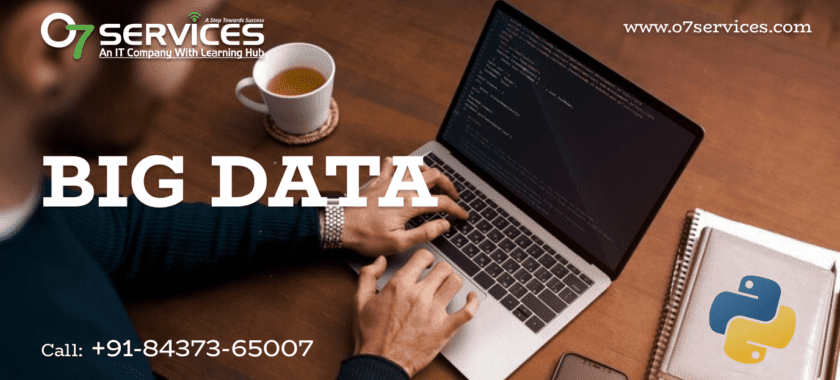
Big Data – Unraveling The Power Of Information In today’s tech-savvy society, the term “big data” is often used. It impacts everyone, even though it might appear like a problem that only engineers deal with. Let’s walk through the fundamentals of big data without becoming weighed down by the technical terminology. The Basics of Big Data So, what’s this Big Data buzz all about? At its heart, Big Data is the vast amount of information swirling around in the digital air, coming from everything we do online. Whether you’re liking cat videos on social media, snagging deals in the online shopping jungle, finding your way with GPS, or streaming your favorite tunes – all of it contributes to this massive pool of digital info. Three V’s Rule the Big Data World Now, let’s talk about the three V’s – Volume, Velocity, and Variety – the superheroes of the Big Data universe. Volume: Think of the crazy amount of data when millions of people are posting selfies, sharing memes, and buying stuff online. That sheer volume of data is what makes it “big” – it’s like a digital tsunami. Velocity: Ever wondered why your social media feed updates faster than you can say “like”? That’s the velocity of data – the speed at which it’s created and zooms through the digital world. Variety: Data doesn’t just come in black and white. It’s a rainbow of text, images, videos, and more. This diversity is what spices up Big Data – making it as colorful as your online life. Real-World Examples Now, let’s bring Big Data down to Earth with examples you can easily relate to: Social Media Insights: Remember the last time you got lost in the endless scroll of your favorite social platform? Each like, comment, and share is a data point. Companies use Big Data tools to figure out what you love, tailor content, and even predict what you might fall for next. Online Shopping: When you’re clicking through an online store, the website is silently gathering data on your preferences, what you’ve bought before, and even how long you linger on each product. All this info is then used to suggest goodies you might fancy and make your shopping adventure smoother. Traffic and Navigation Apps: Think about those navigation apps that magically know the fastest route to your destination. They’re not psychic; they’re using Big Data. These apps collect data from countless smartphones and GPS devices to analyze traffic patterns, helping you dodge jams and reach your destination ASAP. The Impact of Big Data Informed Decision-Making: Businesses use Big Data to peek into your preferences and feedback. This helps them tweak their products and services to match what you want, keeping them on their toes in this ever-changing market. Improved Healthcare: Big Data is not just for the tech geeks; it’s also a superhero in healthcare. Your medical records, treatment outcomes, and even your genes can be analyzed to spot health issues early, predict outbreaks, and make your healthcare smoother. Personalized Experiences: Big Data is the magician in the background that makes your digital world more delightful and personalized, from the news that appears on your social media page to the suggested songs on your most used streaming app. Conclusion In simple terms, big data is your digital buddy, not a daunting force. It’s there to simplify, not complicate. It’s the engine running behind the scenes, making our digital world a little brighter, a little more personalized, and a lot more enjoyable. Here’s to embracing digital magic and letting big data be the superhero friend we all need in our connected lives! Cheers to making things easier and wiser, one data point at a time. It’s the friend who knows your preferences, suggests the perfect playlist, and helps businesses tailor their products just for you. Here’s to embracing digital magic – where Big Data isn’t just a buzzword but a silent superhero working behind the scenes to make our lives a little bit better, one data point at a time. Cheers!
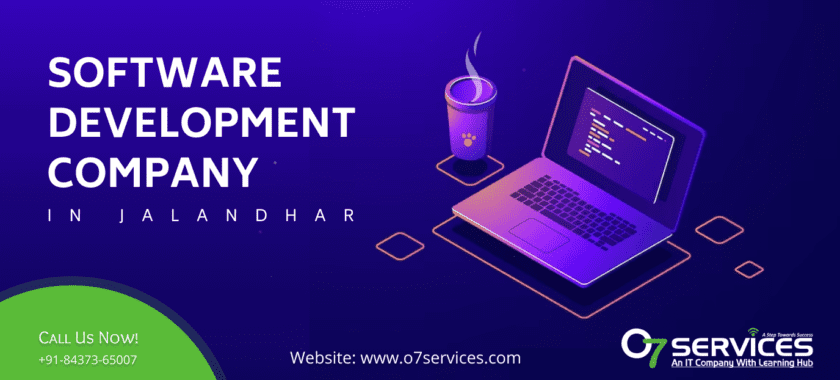
Software Development Company in Jalandhar O7 Services is renowned in Jalandhar as an innovative and amazing software development company in Jalandhar that provides cutting-edge solutions and exceptional service. Through these measures, they have positioned themselves as the go-to software development supplier in their region. O7 Services is a leading provider of innovative solutions, utilizing cutting-edge technologies like AI, ML, IoT, Blockchain, and Cloud Computing. They aim to provide clients with future solutions that help them succeed in a competitive business environment. Overview of Software Development Company in Jalandhar O7 Services is a well-known software development company in Jalandhar. Founded to disrupt the IT sector, they have continually strived for excellence and innovation throughout their software development journey. Their commitment to providing high-quality service, providing excellent customer service, and pursuing technology advancements make their journey amazing. O7 Services Provides Excellent Services O7 Services provides a comprehensive spectrum of services tailored to fulfil the needs of a wide range of clients: Custom Software Development: This company excels at tailoring software solutions to clients’ specific business needs, while its professional team of developers ensures the construction of scalable, efficient, and user-friendly programs across multiple domains. Mobile App Development: At O7 Services, our expertise in mobile app development has enabled businesses to benefit from high-performance, intuitive mobile apps with feature-rich capabilities, allowing clients to improve consumer engagement while streamlining operations. Web Development: Our web development specialists specialize in creating gorgeous yet user-friendly websites that not only attract visitors but also provide smooth functionality for an optimal user experience. E-Commerce Solutions: O7 Services has long assisted businesses in establishing a strong online presence. Their e-commerce solutions are designed to assure smooth transactions while also improving consumer experiences, resulting in a win-win situation. 24/7 Services for Technical Expertise and Innovation O7 Services is a leading provider of innovative solutions, utilizing cutting-edge technologies like AI, ML, IoT, Blockchain, and Cloud Computing. They aim to provide clients with future solutions that help them succeed in a competitive business environment. Success Stories and a Client-Centered Approach The customer-first philosophy is at the heart of O7 Services’ philosophy. As proven by countless success stories in which their creative software solutions have enabled businesses to achieve significant development and expansion, this company places a high value on understanding clients’ goals and aspirations to offer solutions that exceed expectations. Contributing to the local economy and job creation. Aside from their technological expertise, O7 Services contributes significantly to local economies in Jalandhar through innovation and job opportunities for talented workers. Their expansion has had an immediate and positive impact on Jalandhar’s economic environment. Future Prospects and Growth Commitment As a software development industry leader, O7 Services’ commitment to research, development, and talent acquisition keeps them ahead of the competition and well-positioned for future growth and expansion. Conclusion O7 Services, a leading software development organization in Jalandhar, is known for its innovation, quality, and client-first focus, contributing to local economies and driving business success for clients.

MERN Stack Internship in Jalandhar at O7 Services Are you passionate about web development and eager to gain hands-on experience in the MERN Stack Internship? Look no further! Join O7 Services in Jalandhar for an exciting internship opportunity where you’ll immerse yourself in a dynamic learning environment and work on real-world projects. About O7 Services O7 Services is a leading tech company committed to delivering innovative solutions in the digital landscape. Our focus on excellence and cutting-edge technologies drives us to create impactful applications that transform businesses. Mern Stack Internship Overview Duration: 6 Months Location: Jalandhar, Punjab Internship Type: Full-time What You’ll Learn Mern Stack During this internship, you will: Master the MERN Stack: Gain proficiency in MongoDB, Express.js, React, and Node.js through hands-on projects and mentorship from experienced developers. Work on Real Projects: Collaborate on live projects, applying your skills to create functional and innovative web applications. Agile Development: Learn to work in an agile environment, understanding the software development lifecycle and best practices. Problem-solving Skills: Tackle challenges and enhance your problem-solving abilities by working on diverse coding tasks. Requirements: Basic knowledge of HTML, CSS, and JavaScript Knowledge of at least one programming language Passion for learning new technologies and frameworks Mern Stack Internship Perks and Benefits: Guidance and Mentorship: Receive guidance from industry experts and experienced developers. Certificate of Completion: Earn a certificate highlighting your accomplishments and the skills you’ve gained. Opportunity for Growth: Possibility of a full-time position based on performance. Networking: Connect with professionals in your field to broaden your network. How to Apply: Please email your CV and a cover letter detailing your interest and relevant experience to enquiry@o7services.com to apply for the MERN Stack Developer internship at O7 Services. Don’t pass up this opportunity to launch your web development career! Join O7 Services on a rewarding path to improve your skills and make a major contribution to the world of technology. Note: The internship details, including duration, requirements, and application process, may vary. Please review the official website or contact O7 Services for the most accurate and updated information.

B tech internships in Jalandhar O7 Services is a renowned company offering B tech internships in Jalandhar for freshers. With their expertise in the field, they provide a comprehensive introduction to the world of technology and engineering. By joining their internship programme, students in Jalandhar can gain valuable hands-on experience and enhance their skills in the B-tech field. Overview of the Internship Program The internship program at O7 Services was structured to provide hands-on experience in various facets of technology and software development. Throughout the internship period, I was exposed to diverse projects that enabled me to apply theoretical knowledge gained from my academic studies. Learning and Skill Development Project Assignments One of the highlights of my internship was the chance to work on real-time projects. Under the guidance of experienced mentors, I actively contributed to developing software solutions tailored to client needs. This hands-on experience helped me refine my programming skills and understand the practical aspects of software development. Training Sessions O7 Services offered comprehensive training sessions aimed at enhancing our technical skills. These sessions covered a wide array of topics, including programming languages, software tools, and emerging technologies. Engaging in workshops and seminars facilitated a deeper understanding of industry trends and best practices. Mentorship and Guidance The support and mentorship provided by the experienced professionals at O7 Services were invaluable. I received personalized guidance and feedback on my work, enabling me to overcome challenges and improve my problem-solving abilities. The open-door policy encouraged an environment where I felt comfortable seeking advice and clarifications. Team Collaboration and Communication Collaborative Projects Working in a collaborative team environment was an enriching experience. I had the opportunity to collaborate with individuals from diverse backgrounds, fostering creativity and promoting the exchange of ideas. This exposure not only improved my teamwork skills but also broadened my perspective on problem-solving approaches. Effective Communication Clear and effective communication was emphasized throughout the internship. Regular team meetings and presentations allowed me to refine my communication skills and articulate technical concepts concisely. This experience was instrumental in developing my ability to convey ideas comprehensively. Personal and Professional Growth Time Management The internship at O7 Services taught me the importance of effective time management. Balancing multiple tasks and deadlines improved my organizational skills, a crucial attribute in a professional setting. Adaptability and Flexibility The dynamic nature of the projects enabled me to adapt quickly to changing requirements. Embracing flexibility in problem-solving and being open to new ideas became second nature during my tenure at O7 Services. Conclusion My internship experience at O7 Services in Jalandhar was both enriching and enlightening. The exposure to real-world projects, mentorship from industry experts, and a collaborative work environment significantly contributed to my growth as a budding technologist. Final Thoughts The lessons learned and skills acquired during my internship at O7 Services will undoubtedly shape my future endeavours in the field of technology. I am grateful for the opportunities provided and look forward to applying my enhanced skill set in my future career pursuits.

6 Months Internship Training in Jalandhar The 6 months internship Training in Jalandhar at O7 Services Institute was a life-changing experience that broadened my knowledge, honed my skills, and provided invaluable experience in a passion-filled field, providing comprehensive insights and practical experience. O7 Services Institute, renowned for its training and development excellence, offered a structured, dynamic internship program that fostered hands-on participation and active engagement in real-world projects. Immersion in Practical Learning The internship offered a comprehensive curriculum covering various industry topics, providing a holistic learning experience. Through workshops, seminars, and interactive sessions led by industry experts, the intern gained a comprehensive understanding of the latest trends, technologies, and best practices in the field. 6 Months of Internship Program The internship programme emphasised the practical application of theoretical knowledge, exposing the intern to industry challenges and complexities. It improved problem-solving skills and fostered responsibility and ownership. Collaboration with talented colleagues and mentors further broadened the perspective, fostering a culture of teamwork and mutual learning. Skill Development and Project Work The institute’s focus on continuous improvement and innovation helped me develop my skills through regular feedback sessions and constructive evaluations. This helped me identify my strengths and weaknesses, enhancing my communication, analytical thinking, and project management abilities, ultimately making me a more competent professional. Networking and Collaborative Environment The supportive environment at O7 Services Institute was crucial for my professional growth, with expert mentors and supervisors who were approachable and committed to talent development. Their advice and mentoring shaped my professional acumen, instilling confidence and determination. The internship was a significant step in my professional growth, providing enriching experiences, valuable lessons, and a professional network. Conclusion Finally, the six-month internship at O7 Services Institute in Jalandhar was a transformative experience that provided me with the necessary skills, knowledge, and confidence to launch a successful career. The exposure, guidance, and learning experiences have helped shape me both personally and professionally, and I am grateful.

Ethical Hacking Internship in Jalandhar By participating in an ethical hacking internship in Jalandhar, individuals can gain the necessary skills and knowledge to contribute to the growing field of cybersecurity. This internship opportunity allows aspiring hackers to apply their theoretical understanding of penetration testing and white-hat hacking in a practical setting. Jalandhar’s reputation for technological advancements makes it an ideal location for individuals looking to enhance their abilities and protect systems from potential vulnerabilities. Ethical Hacking Explained Ethical hacking is the legal and authorized compromise of computer systems, networks, or applications to identify and fix security flaws, mimicking malicious hackers’ strategies. Internships in ethical hacking provide unique opportunities to understand cybersecurity complexities and digital defence. Overview of the Curriculum Interns in Jalandhar’s ethical hacking programmes receive extensive training in both fundamental and advanced concepts. Typically, the curriculum includes: Fundamentals of Networking: Understanding TCP/IP fundamentals, subnets, and network protocols. Investigating network architecture and security concepts. Security of Operating Systems: Investigating security features in popular operating systems like Windows, Linux, and macOS. Putting in place access controls and privilege management. Security of Web Applications: Detecting common web application vulnerabilities such as SQL injection and cross-site scripting. To mitigate potential threats, learn secure coding practices. Wireless Safety: Wireless network vulnerabilities and encryption protocols are being investigated. Penetration testing of wireless networks. Techniques for Penetration Testing: Mastering ethical hacking tools and methodologies such as Metasploit and Burp Suite. Penetrating simulated environments to identify and exploit vulnerabilities. Experience with Ethical Hacking Internships The ethical hacking internship in Jalandhar offers practical experience, allowing interns to actively participate in real-world scenarios to identify and close security gaps, develop problem-solving skills and understand corporate security decisions. Internship in Cybersecurity An internship in cybersecurity would involve gaining hands-on experience in ethical hacking. This would include learning how to identify and exploit vulnerabilities in computer systems, networks, or applications in order to strengthen their security. By mimicking the strategies of malicious hackers, interns can develop a deep understanding of cybersecurity complexities and contribute to digital defense efforts. Mentorship and direction Ethical hacking internships in Jalandhar prioritize mentorship from experienced cybersecurity professionals. These mentors guide interns through complex challenges, share insights, and provide constructive feedback, enhancing technical skills and fostering a mindset for continuous learning and threat adaptation. Certifications and Accreditation Participants often receive certifications that validate their skills in ethical hacking after completing the internship programme. These globally recognised certifications boost interns’ credibility in the job market and open doors to a variety of cybersecurity career opportunities. Conclusion An ethical hacking internship in Jalandhar offers individuals a comprehensive understanding of cybersecurity challenges and solutions, preparing them to contribute to the ongoing battle against cyber threats, thereby establishing Jalandhar as a hub for ethical hackers.

What is Cyber Safety Why is It Important? What is Cyber Safety Why is It Important: The topic of cyber security is receiving emphasis from the general public in our increasingly online community. Data breaches, ransomware attacks, and digital espionage are issues that regularly show up in the headlines. The risks that lie in the digital world continue to evolve alongside technology. With a focus on the factors affecting cyber security’s occurrence in modern society, this blog explores the reasons why it is more appreciated than ever. Our Lives Are Online Remember the days when you had a secret diary under your mattress? Well, now your “diary” is in the cloud, your secrets are in emails, and your embarrassing moments are all over social media. We live online, and that means more of our stuff is up for grabs by cybercriminals. Nobody wants their dirty laundry aired out in public, right? More Gadgets, more Security Flaws You’ll likely discover a smartphone, a laptop, a tablet, a smart TV, and perhaps even a refrigerator with sensors in your home (the person who needs a smart fridge, really?). It’s like opening many doors for hackers to enter when so many devices are connected to the internet. The Money Factor Cybercrime has become a big, lucrative business. Hackers can make big bucks by stealing sensitive data, like credit card info or your bank details. That’s why companies are investing billions in cybersecurity – to protect their profits and our wallets. It’s like a digital Wild West out there, and we all need a cyber-sheriff. Privacy Issues Do you recall whispering private information to your best friend in class? Now we’re communicating with Google Assistant, Alexa, and Siri. The devices we use are continuously listening and have an enormous amount of details about us. That’s a little disturbing, don’t you think? Cyber security acts as the club bouncer, guaranteeing that only the correct people are allowed entry. Work from Anywhere Working virtually is now feasible due to COVID-19. Nowadays, working from home (or an alternate location with Wi-Fi) is accepted as normal. Nevertheless, this indicates that corporate data has spread across cyberspace, where hackers may feast upon it. To avoid the risk of critical information from slipping into the wrong hands, cyber security acts as a bodyguard for your business. It Doesn’t Just Apply to Geeks Cybersecurity had previously been thought of as a nerdy, technological profession. The scenario is now widely recognized. Mastering the fundamentals of sustaining a safe online does not require you to be a computer whiz. It’s equivalent to just how crucial it is to understand how to safely secure your front door. Regulations and Consequences: Governments and authorities worldwide are getting serious about data protection. They’re slapping fines on companies that don’t safeguard your data properly. So, businesses are getting wise and investing in cyber security to avoid hefty penalties. It’s like a traffic ticket for not wearing a seatbelt – you learn quickly to buckle up! An upsurge of Cyber Threats The technicality of cyber criminals’ attacks continues to increase as they acquire more skills. They want more than just the number on your credit card; they additionally require personal details including your medical records. Cyber security functions as an oversight for the things you do on the internet. Education and Awareness As more people become aware of the risks, the demand for cyber security knowledge is skyrocketing. Courses, webinars, and resources are popping up everywhere, making it easier for regular folks to protect themselves online. Knowledge is power, and it’s empowering everyone. Last but not least, cyber security promotes mental tranquillity. You may browse the web, shop online, and communicate with loved ones without worrying about being a victim of cybercrime when you know your digital life is secure. You sleep better at night, just like your front door gets a solid lock. To sum up, it ought to be emphasized that cyber security involves more than just a terminology employed by IT experts in the boardrooms of enterprises. We all get affected by it as it’s a vital element of our modern daily lives. In a world that is becoming more digital, cyber security is not only a trend but also a need. As an outcome, take a moment to enlighten yourselves on online safety, protect your digital assets, and keep up with the bad guys on the web. You’ll appreciate gratitude throughout your online life!

AI will Replace All Humans in the Workforce AI Will Replace All Humans in the Workforce: AI, or artificial intelligence, is like the brainpower behind some of the smartest machines out there. It’s all about making computers do things that usually need human smarts, like learning from data, making decisions, and solving problems. Think of it as teaching a computer to think for itself, but without the need for coffee breaks or complaining about overtime. AI helps machines become super handy at many things, from recognising your voice to playing chess like a grand master. It’s like having a trusty sidekick for all sorts of tasks, making life a tad easier and way more interesting. Benefits Of AI Will Replace All Humans in the Workforce AI has the potential to benefit humanity greatly. The first benefit is that it saves time. Imagine that AI can process data, compute numbers, and do time-consuming jobs faster than we can blink. There will be more time for the things that matter and less time spent on worthless activities as a result. It also works as a genuine brain enhancer. AI can analyze enormous volumes of data to help us make better decisions in a variety of areas, including finance and healthcare. Don’t forget about safety either. We may avoid danger by using self-driving cars, AI-driven security systems, and even medical diagnosis bots. Finally, AI is a workhorse that never needs to rest. It can perform dangerous or boring tasks, freeing humans to concentrate on creativity and problem-solving. What careers will likely be replaced by AI? The term of the decade is Ai Will Replace All Humans in the Workforce. Virtual personal assistants and self-driving cars are only a couple of the many aspects of our lives that it greatly impacts. Where are our jobs, though? Are some of them about to say goodbye to AI? The quick response is, of course. Without using any fancy business speak, let’s get into the specifics of which jobs AI might replace. Data Entry Clerks: If you’ve ever spent long hours typing numbers and data into spreadsheets, brace yourself. AI can do this faster and more accurately. It doesn’t need coffee breaks or complain about repetitive tasks. Cashiers: Self-checkout kiosks at supermarkets are just the tip of the iceberg. AI-powered systems can handle payments and receipts, so human cashiers might be in short supply. Telemarketers: Nobody likes those unsolicited phone calls during dinner. AI chatbots can handle customer inquiries and even make sales calls. Goodbye, telemarketing headaches. Drivers: Truck drivers and taxi drivers may have an unclear future as self-driving cars approach the market. AI doesn’t get tired or distracted by the view. Manufacturing Workers: AI-driven robots are becoming more sophisticated, handling tasks from welding to packaging. The assembly line might soon be a line of machines. Bookkeepers and Accountants: AI can crunch numbers and analyze financial data faster and with fewer errors than humans. The days of the number-crunching accountant might be numbered. Radiologists: AI algorithms can analyze medical images like X-rays and MRIs, potentially catching diseases earlier and more accurately than human doctors. Writers and Content Creators: Yep, even we writers are not safe. AI can generate content, and while it might not win a Pulitzer, it can churn out articles, reports, and even poetry. Farmers: AI-powered tractors and drones can monitor crops and optimize planting and harvesting. The good old days of manual farming might be behind us. Security Guards: AI surveillance systems can detect intruders and unusual activities more effectively than human security guards, and they don’t need bathroom breaks. Even though AI is permeating a variety of sectors, it’s critical to keep in mind that technology can also generate new employment prospects. In this constantly shifting workplace, adapting and picking up new skills will be essential. Consequently, whether or not you hold one of these jobs, it’s a good idea to keep an eye on the technology landscape and be prepared to change. Who knows, perhaps the career that AI replaces today will be the job of tomorrow! The work market is changing as a result of AI, but not entirely for the worse. We can adapt and thrive in this new environment led by AI. Consider it a push to explore other opportunities and keep studying if you find yourself in a position where AI could eventually replace you. The future, after all, belongs to those who can ride the AI wave and make it work for them.

Benefits of Online Bidding Career Benefits of Online Bidding Career: When utilising social platforms for job opportunities, bidding involves submitting a proposal to a client who has posted a job. This proposal should showcase your skills and experience, and why you are the best candidate for the project. Typically, clients at work will provide the job’s requirements, budget, and deadline. As a freelancer, it is your responsibility to thoroughly review the job posting, determine if it aligns with your abilities, and create a proposal that meets your criteria. PLATFORMS FOR BIDDING Upwork Freelancer Fiverr People Per Hour Guru Toptal 99designs Hub staff Talent Simply Hired Craigslist Design hill Design Crowd Upwork– The Up work Bidding process involves searching for job opportunities that align with your skills and submitting proposals with additional connections to increase your chances of being hired. Once your proposal with your price and terms is submitted and accepted by the client, you can begin working on the project. Freelancer– Working as a freelancer means being self-employed and having the freedom to take on projects at your own pace. You have no long-term commitments or boss to answer to, and you work on gigs as it suits you. Freelancers are considered independent contractors and fall under the self-employment category. As a freelancer, you are paid per project, task, or hourly basis, depending on the contract. This allows you to take up both short-term and long-term gigs as per your availability. Fiverr- Fiverr was originally known for its quick freelance services offered for just five dollars, but it has since expanded. Now, freelancers can set their prices, packages, and add-ons. Some freelancers offer lower prices for smaller projects to attract new clients, like offering a sample to encourage them to hire them for larger projects. One notable advantage of Fiverr is that it handles payments directly on the platform. Freelancers don’t have to worry about invoicing clients or sending PayPal reminders. Once the buyer’s order is complete, the payment is transferred to the freelancer’s account. Despite its humble beginnings, Fiverr is a great platform for beginners and freelancers who offer a variety of rates for different types of work. PeoplePerHour- People Per Hour is a website that specializes in connecting clients with freelancers more efficiently than other similar websites. By utilizing artificial intelligence, People Per Hour aims to make the process of finding the right freelancer easier and more accurate. Once a client submits their project details, the system analyzes them and matches the project with suitable freelancers. These freelancers have the opportunity to set their prices and submit proposals, which the client can then choose from a curated selection. People Per Hour is highly regarded among freelancer websites because it saves both clients and freelancers valuable time in their search for the right match. Additionally, the website includes a payment system to prevent any payment disputes between the two parties. Guru- The freelance platform Guru prioritizes honesty and trust, ensuring that expectations are met for all users. They have a genuine and grassroots approach to their work, and their job postings provide clear information about each project. Freelancers can prove their credibility through a built-in vetting process, streamlining the hiring process for potential clients. Invoicing is straightforward with secure payment options and various payment terms available on the site. The freelance platform Guru prioritizes honesty and trust, ensuring that expectations are met for all users. They have a genuine and grassroots approach to their work, and their job postings provide clear information about each project. Freelancers can prove their credibility through a built-in vetting process, streamlining the hiring process for potential clients. Invoicing is straightforward with secure payment options and various payment terms available on the site. Toptal- The freelance platform Guru is known for its authentic and genuine approach. They prioritize transparency and trust, ensuring that they meet the expectations of their users. This extends to their job postings, which provide clear information about the project requirements. Guru also has a vetting process for freelancers, which helps them establish their credibility with clients and streamlines the hiring process. Invoicing is made easy with multiple payment options and secure payment integration on the site. 99design- Looking for freelance work as a designer? 99designs is an excellent website that connects designers to businesses worldwide. You can select the design styles and industries that interest you. However, note that 99designs requires some startup costs for freelancers, including a $100 introduction fee to connect with clients, as well as platform and payment fees. Hubstaff Talent- Hubstaff Talent is a website that offers paid software solutions to help employers build, manage, and track virtual teams. Employers can also use the free remote job board to find workers from anywhere in the world, although most jobs listed are freelance positions. Hubstaff, the company behind the website, was founded in Indiana in 2012 and operates with a fully remote team. They serve 34,000 businesses in 18 countries and have a strong local presence in each location. SimplyHired- SimplyHired is a platform for advertising job openings that has assisted numerous businesses in finding qualified candidates. It provides a range of useful features for employers, such as posting job listings for free, receiving notifications when candidates apply, and searching through a vast database of resumes. However, its main drawback is the inability to predict expenses. To obtain a candidate’s contact information, you must pay, and even if you do reach out, there is no assurance that the candidate will respond. Craigslist- Craig Newmark is the founder of Craigslist, a highly popular website that offers a wide range of classified listings. Established in San Francisco in 1995, it provides job postings, personal ads, and advertisements for cars, pets, home supplies, and more. The site is organized around communities and currently operates in hundreds of cities and countries worldwide. Although the financial details of the nonprofit organization are not made public, experts estimate its value to be over USD

What is Room Database in Android INTRODUCTION Room is a constant library that is part of the Android jetpack. It is built On the top of SQLite. The room persistent library has many advantages over raw SQLite. Room is one of the Jetpack Architecture Components in Android. This provides an abstract layer over the SQLite. Room makes everything easy and clear to create a Database and achieve the operations on it. Database to save and perform the operations on endless data locally. The Room DataBase is suggested by Google over SQLite. It can help to manage data. WHY USE ROOM? Cache the applicable pieces of the data so that when the user’s device is offline, they can still browse and aspect the content offline. Compile-time SQLite query verification protects the application from collision. The comment that it gives minimises the boilerplate code. CONDITIONS IN ROOM DATABASE- Have Android Studio installed. Have a basic knowledge of building Android applications. Have a basic understanding of the Kotlin programming language, SQL, MVVM architecture and Kotlin coroutines. KEY POINTS OF ROOM DATABASE– No need to write rough Queries. Compile Time verification of SQL queries. This quickly supports the merging with other Architecture components. Room provides an easier way to work with LiveData and perform the operations. There is no need to change the code when the database schema gets changed. PRIMARY COMPONENTS OF ROOM– Database Class: This provides the main access point to the basic connection for the application’s persisted data. This is annotated with @Database. Data Entities: This represents all the tables in the existing Database. This is annotated with @Entity. DAO: It stands for DATA ACCESS OBJECT. This contains the method to perform the operations on the Database. This is annotated with @DAO. @Insert-It is Used to insert records into the Room Database. @Delete-It is Used to delete records into the Room Database. @Update-It is Used to update records in the Room Database. @Query-It is Used to enter the Query like(SELECT FROM). Steps to implement Room Database in Android Application- Step 1: Create an Empty Activity project Firstly We can Create an empty Android Studio project. Create/Start a New Project in Android Studio. Step 2: Adding the Required Dependencies Then We Can Add the dependencies to the app-level gradle file. By going to ProjectName -> src -> build. gradle. Step 3: Creating Data Entity Create a Sample Data class named User. kt. And call on the code which contains entities User as an entity, which represents a row and first_name, last_name, and age represent column names of the table. Step 4: Creating Data Access Objects (DAOs): Now create an interface named UserDao.kt. And call on the code which provides various methods which are used by the application to interact with the user. Step 5: Creating the Database Now creating the Database which defines the real application’s database, which is the main access point to the application’s continuous data. This class must satisfy: The class must be abstract. The class should be annotated with @Database. Database class must define an abstract method with zero arguments and return a case of DAO. Now call on the code inside the AppDatabase.kt file. Step 6: Usage of the Room Database Inside the MainActivity.kt file we can create a database, by providing usage names for the database.
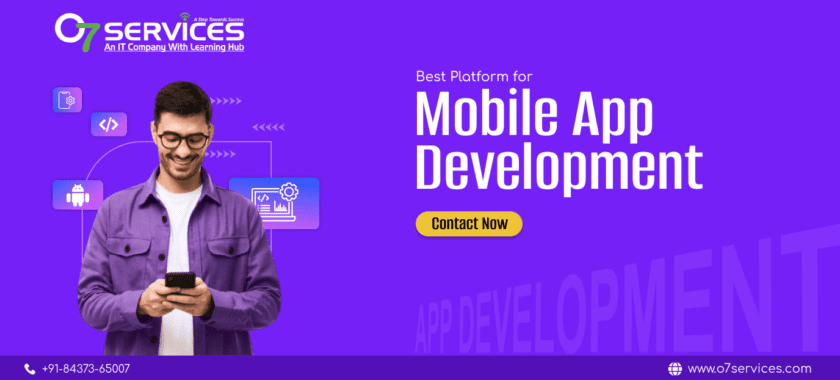
What is the Best Platform For Mobile App Development ABOUT:– Best Platform For Mobile App Development is the set of processes and procedures involved in writing software for tiny, wireless computer devices, such as smartphones and other hand-held devices etc. ADVANTAGES OF MOBILE APP DEVELOPMENT:- Boost This technology allows businesses to send notifications about what’s new or what has changed in their products or services. Businesses can build strong relationships with their customers, leading to the development of a loyal customer base. 2. Develop customer engagement Mobile app development companies offer businesses several benefits. Businesses and their customers can communicate directly and effectively through direct marketing channels. Serves value for customers With mobile apps, you can digitise any loyalty program that you may be offering to your customers. Rather than using the old-fashioned collection card, you can give the information about offering your customers the opportunity to receive their rewards through a mobile application. SCOPE IN Best Platform For Mobile App Development:- 1- Future of different types of cross- Platform applications- In the future the applications we are going to develop will be the applications that can be used for both IOS and Android platforms. In the future the application that is going to be developed will be an application that can be used for both IOS and Android platforms. The development of cross-platform applications can be done as the original application can be made on a native platform which can be used for many Platforms like iOS and Android or it can be transferred. The cross-platform is very useful and increasing the market for Android application development Still, nothing can stop the growth of the app development industry. The global mobile application market was $585 billion in 2020 and is expected to reach around $935 billion in 2022. That’s why we can say that mobile App development is very technical and the fastest-growing technology. TYPES OF MOBILE APPS : In Mobile App Development, there are two types of Apps:- HYBRID APPS: Hybrid Apps is the Best Platform For Mobile App development. the hybrid app works on multiple platforms. It is written in a single standard code language and then compiled and executed in each platform. The use of Plugins For the operating system will normally manage device-specific interactions. In a hybrid, there is the use of technology like Android, IOS, Flutter etc. Hybrid Apps are mostly used when the customer investment strength is not more for their app. In hybrid apps, there are also fewer features and qualities in comparison to native Apps. Both Hybrid and Native are equally performing all functions. NATIVE APPS: Native apps are installed onto the device itself and are developed specially for a particular operating system. These apps are available in app stores such as the Apple App Store, Google App Store, etc. Native apps work in specific operating systems such as Apple IOS, Android or Windows. If an App is made for Android then it will not work on Apple IOS or Windows. This means we have to spend more money and more effort (time, resources). DIVISION BASED ON PLATFORM:- STATIC APPS DYNAMIC APPS STATIC APPS:-Static applications are just, static. They don’t move. Their functions are fixed. You can put them on a Smartphone or tablet and they will fully work without any internet or data connection. Think of these as simple tools, like a calculator, Expense Tracker, Temperature measures, Attendance etc. or even some simple games, dictionary apps, Music Apps or any type of app that just displays information. These work entirely within the file that is downloaded and installed on your user’s device. DYNAMIC APPS:- Dynamic Applications, these applications need to access a server to properly function, meaning they need a data connection. Think of these as weather applications, sports apps, shopping Apps or many games the majority of applications are dynamic in some sense. Whether they need to pull down images or videos to function properly or need to access databases to provide real-time information.

Augmented Reality Training Course in Jalandhar O7 Services offers an augmented reality training course in Jalandhar that provides hands-on experience in creating immersive digital experiences. These courses cover AR development tools and application design. Participants learn to build interactive AR applications for various industries, including gaming, education, and marketing. Join an Augmented Reality Training course in Jalandhar to acquire skills in this cutting-edge technology and open doors to exciting career opportunities. What is Augmented Reality (AR) Augmented Reality (AR) is an interactive experience that combines the real world and computer-generated content. It is a technology that overlays digital information onto the physical world, allowing users to interact with both the real and virtual environments simultaneously. AR can be experienced through various devices such as smartphones, tablets, and smart glasses. The content in AR can span multiple sensory modalities, including visual, auditory, haptic, somatosensory, and olfactory. AR can be defined as a system that incorporates three basic features: a combination of real and virtual worlds, real-time interaction, and accurate 3D registration of virtual and real objects. The overlaid sensory information can be constructive (i.e., additive to the natural environment) or destructive (i.e., masking of the natural environment). AR has a wide range of applications in various fields such as education, entertainment, healthcare, and more. For example, AR can be used to enhance natural environments or situations and offer perceptually enriched experiences. With the help of advanced AR technologies, the information about the surrounding real world of the user becomes interactive and digitally manipulated. Information about the environment and its objects is overlaid on the real world. This information can be virtual. How does AR work on smartphones? Augmented Reality (AR) on smartphones uses a camera to capture real-world environments and overlay digital content. AR software uses computer vision technology to recognize objects and superimpose digital information. Additional hardware like smart glasses can enhance the experience. Popular AR apps include Google Lens and Google Maps. To use AR, a device with a camera and an AR app is needed, allowing users to interact with the digital content. How does AR work on smart glasses? Augmented Reality (AR) on smart glasses works by overlaying digital information onto the real-world environment. The glasses use specific software, such as artificial intelligence and machine learning, to construct a virtual map of the surroundings based on sensor data. By placing a digital object on a virtual map, AR glasses can project it into the physical environment. The digital overlay of text and images within our field of view is the key that unlocks the AR glasses experience. AR glasses vary in shape, size, and design, but they all have in common the enhancement of reality with digital overlays. They can communicate with voice assistants like Alexa or Siri for voice-controlled searches. Some AR glasses use simultaneous localization and mapping (SLAM) algorithms to gauge the area around you, allowing you to use hand gestures to control the images you see. The technology behind AR glasses has evolved. Google Glass was one of the early pioneers in this field, and its second-generation model, Google Glass Enterprise 2, is considered one of the best AR glasses available. It features a Qualcomm Snapdragon XR1 processor, an 8-megapixel colour sensor camera, and WiFi and Bluetooth 3 connectivity options. Other notable AR glasses include Microsoft Holo Lens 2, Lenovo Think Reality A3 and Vuzix Blade Upgraded. AR glasses offer exciting possibilities for various industries, including design, field service, and collaboration. They can change how professionals work and collaborate by eliminating the pain points of working remotely and enhancing productivity. What are some popular AR apps? There are several popular Augmented Reality (AR) apps available for smartphones. Here are some of them: Google Lens: This app uses the power of the computing cloud to identify text, images, objects, and landmarks in photographs. It is available as a standalone version on Android and is also integrated into the latest versions of Google Photos on Android and iOS as well as the Google app for iOS. Google Maps: This popular mapping app features an AR mode that helps users navigate to their destination by adding virtual signs and directional arrows over the live view on their phone Just a Line: This app uses AR to bring your drawings to life. You can capture your AR masterpiece on video and share it with friends Houzz: This app allows you to visualize furniture and decor in your home using AR JigSpace: This app offers interactive 3D models that you can explore in AR Sketchfab: This app allows you to explore millions of 3D models in AR Ink Hunter: This app allows you to try on virtual tattoos using AR Wallace: This app allows you to leave hidden messages in the real world using AR Mondly: This app offers language learning courses using AR BBC Civilisations AR: This app allows you to explore historical artefacts in AR
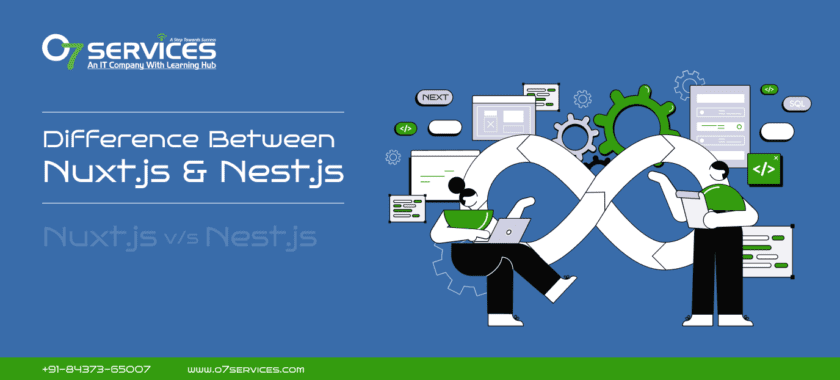
Difference Between Nuxt.js vs. Nest.js Difference Between Nuxt.js vs. Nest.js: Alright, folks, gather ’round the campfire. Today, we’re gonna have a down-to-earth chat about two cool JavaScript frameworks: Nuxt.js and Nest.js. No fancy corporate jargon here, just a friendly discussion about when and where you’d want to use these two. Nuxt.js: The Frontend All-Star Let’s kick things off with Nuxt.js. Imagine you’re building a house, and Nuxt.js is like the architect for your website’s front end. It’s built on Vue.js, another nifty JavaScript framework, and its main gig is making your frontend development life easier. Speedy Development: Nuxt.js is all about turbocharging your development process. It’s got goodies like automatic code splitting, a built-in router, and server-side rendering (SSR) up its sleeve. This means you can whip up single-page applications (SPAs) in no time, without breaking a sweat. SEO Magic: Speaking of SSR, if you want Google and other search engines to love your website, Nuxt.js is your buddy. SSR helps your site get indexed faster, which can boost your SEO game and put you on the map. Awesome Community: Do you know that feeling when you’re not alone in your struggles? Well, Nuxt.js has a vibrant community. Plus, there are tons of plugins and modules to help you customise your project and solve problems faster than you can say “JavaScript.” Universal Love: Nuxt.js isn’t just about the client side; it’s got love for the server side too. You can create universal (isomorphic) apps that work seamlessly on both sides. That’s like having a magic wand to make your users’ experience top-notch. Developer-Friendly: Last but not least, Nuxt.js inherits Vue.js’ developer-friendly syntax. As opposed to battling with your code, you discuss with it. As a result, anyone can use it, regardless of the level of coding expertise. Nest.js: The Backend Superhero Now, let’s flip the script and talk about Nest.js. Picture it as the plumber and electrician of your web application, taking care of all the backend stuff. It’s built with TypeScript and Node.js, and it’s geared toward making server-side development a breeze. Modular Goodness: Nest.js is all about being organised and scalable. It uses a modular architecture and decorators, making it super easy to organise your code. When your app grows, you won’t end up in code spaghetti hell. TypeScript Power: If you’re a fan of strong typing and catching errors early, Nest.js has your back. TypeScript is its default language, helping you maintain code quality and sanity. Dependency Injection Magic: Nest.js brings a nifty dependency injection system to the table. This makes managing application components a piece of cake and helps keep your code clean and testable. Microservices Galore: Are you building a fancy microservices-based application? Well, Nest.js can handle it like a champ. It’s great for creating complex distributed systems, which might be overkill for your average website but a game-changer for specific projects. Community Hug: Nest.js has its fan club, a.k.a. an active community. It’s got a treasure trove of middleware and plugins to simplify tasks like authentication and database integration. So, How Do You Choose? Now that we’ve had a chat with our two contenders, how do you decide which one’s your wingman? Let’s break it down without any frills: Project Needs: If your gig revolves around front-end stuff like SPAs or static websites, Nuxt.js is your jam. For server-side wizardry like APIs, real-time apps, or anything backend, Nest.js is your go-to. Team Skills: Check what your team knows. If they’re Vue.js aficionados and love the front end, Nuxt.js will feel like home. If they’re Node.js lovers with a penchant for TypeScript, Nest.js is their playground. Scaling Up: Think about the future. Nest.js is your guy when you want a structured, maintainable codebase for large, complex projects. Nuxt.js can handle big projects too but shines brightest on the frontend. SEO Goals: Is SEO a deal-breaker? Nuxt.js’ SSR powers can give your site a leg up on the search engine ladder. If SEO isn’t a concern, it’s not a game-changer. In a Perfect World? Sometimes, life isn’t about choosing sides. It’s about teamwork. In the web development world, that means using Nuxt.js on the front end and Nest.js on the back end, hand in hand. They can be the Batman and Robin of your web project, each bringing their superpowers to the table. Closing Thoughts So there you go, everyone. Nuxt.js and Nest.js are both cool in their ways, like Batman and Superman in the web development world. Choose Nuxt.js when you’re all about that front-end dazzle and SEO boost. Pick Nest.js when you’re diving deep into server-side waters and need a modular, scalable, TypeScript-powered hero. Just keep in mind that it’s not about which one is “better”—it’s about which one best fits the requirements of your project and the talents of your team. As a result, make the call while wearing your web developer cap. Happy coding! 🚀
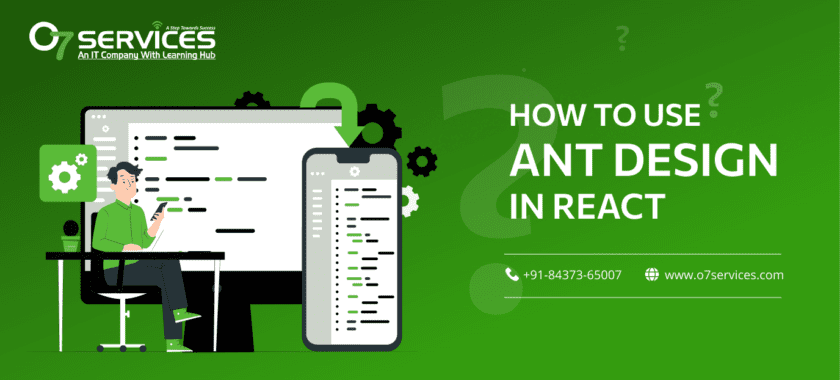
How to Use Ant Design in React Hey there, fellow React enthusiasts! We’re exploring the beautiful world of Ant Design for React today. It’s probably well-known to developers, but it’s a real treat for those who are just starting. Without using the dull corporate lingo, let’s examine this great design library. What’s Ant Design? Okay, let’s clarify the basics before we get too fired up. Ant Design is not about ants, and it’s not a picnic organizer. It’s a popular UI framework for React, and it’s here to make your life easier when building web applications. Why Ant Design? First things first, why should you even consider using Ant Design? You could say it’s like having a superpower in your toolkit for web development. Some of the explanations for your potential fondness for it are as follows: Parts that are already made: When you’re creating a pizza, picture having the dough prepared, the vegetables expertly sliced, and the sauce already prepared. That’s what Ant Design does for your React app. It offers a ton of ready-made, customizable components – buttons, forms, modals, and more – to save you time and effort. Consistency is Key: Ever seen a website where buttons look like they’re from different planets? With Ant Design, you get a consistent, polished look right out of the box. No more fiddling with CSS for hours on end. Responsive Design: Ant Design is like your BFF who knows how to adapt. Whether your app is viewed on a massive desktop screen or a tiny mobile device, it scales beautifully to fit. Internationalization (i18n): Going global? Ant Design’s got you covered with built-in support for multiple languages. No need to pull your hair out over translation issues. Getting Started Okay, let’s get going now that we’re all pumped up. An easy tutorial for setting up Ant Design in your React app is provided below: Build a React app: Create a new React app if you haven’t previously, using Create React App or your preferred method. Activate Ant Design: Run the npm install and or yarn add and command to add Ant Design to your project. Import CSS: In your project’s entry point (usually src/index.js), import the Ant Design CSS by adding import ‘antd/dist/antd.css’;. Start Using Components: You’re all set! Now you can start using Ant Design components in your React components. For instance, you can import a button like this: import { Button } from ‘and’; Customization Galore Remember that pizza analogy? Well, Ant Design doesn’t just give you a pre-made pizza; it lets you add your favourite toppings. You can customize the design to match your app’s unique style. Change colours, fonts, and other styles with ease. A Quick Example Let’s say you want to create a stylish button. Here’s how you can do it with Ant Design: import { Button } from ‘and’; function MyButton() { return ( <Button type=”primary” shape=”round”> Click Me! </Button> ); } You get a rounded, primary-coloured button without breaking a sweat. That’s Ant Design magic right there! Ant Design Template The Ant Design Ecosystem Ant Design is more than just UI components. It also offers tools like Ant Design Pro for building enterprise-level applications and Ant Design Charts for creating interactive charts and graphs. Parting Thoughts So, there you have it, a friendly introduction to Ant Design for React. It’s like having a superhero sidekick in your web development adventures, saving you time, effort, and frustration. Plus, it makes your web apps look sleek and professional. But remember, like any superhero, Ant Design is a powerful tool that requires some practice to master. So, roll up your sleeves, experiment, and have fun creating fantastic user interfaces with Ant Design for React. Happy coding!

ANDROID 13 FEATURES & VERSION It is important to note that the Android SDK includes changes that cannot be adapted to previous versions Android 13 Features Studio. For the best experience in developing using this Android 13 SDK make use of the Android Studio CHIMPUNK — 2021.2.1 or greater. The latest Android operating system is version 13 Created by Google. The launch in September 2022 introduced several new features that enhanced the Android Platforms. It is more user-friendly in terms of security, performance and usability. Android 13 has a new user interface. It features new technology like 5G as well as WiFi 6E as well as Bluetooth LE Audio. The company states the fact that Android 13 will be available on devices from Samsung, Asus, HMD (Nokia phones), iQOO, Motorola, OnePlus, Oppo, Realme, Sharp, Sony, Tecno, Vivo, Xiaomi and many more “later this year”. Install the SDK In Android Studio, you can install the Android 13 SDK as follows: Click Tools > SDK Manager. On the SDK Platforms tab Select Android Tiramisu Preview. On the SDK Tools tab, choose Android SDK Build Tool 33.. Select “OK” and install the SDK. FEATURES OF ANDROID 13 The user interface has been redesigned Redesigned User Interface: A new design language that features contemporary icons and a new colour scheme. Improvements to privacy:-“Private Compute Core” offers more protection for sensitive information. Performance Enhancement This results in faster launch times, smoother scrolling and improved performance. Tools Powered By New machine learning capabilities such as Live Translation. Support for New Technologies and more reliable communications by enabling new technologies such as 5G Wi-Fi 6E as well as Bluetooth LE Audio. Quick Notifications Management A superior method of notification that allows users to prioritize. Modifies Quick Setting Quick SettingMake their quick settings menu more personal and easy to access. smart accessibility features new accessibility features such as Voice Access, which enables users to control their devices with voice commands. Also, there are Sound Notifications that notify users of important sounds, such as fire alarms. CONCLUSION In conclusion, In determination, it is evident that the Android Operating System was able to be able to receive impressive updates, including Android 12 as well as Android 13 Features. Android 13 has novel features that include better AI capabilities, Smarter privacy and energy management features. Overall, these Updates offer an Android platform with significant growth that improves the quality of experience for users, as well as the security, utility and functionality of Android Devices.

Virtual Reality Designer Course in Jalandhar Virtual Reality (VR) has become a revolutionary technology that has revolutionized industries like education, gaming as well and healthcare. Jalandhar is a city renowned for its technological advances and provides a full Virtual Reality Designer Course in Jalandhar that provides students with the skills and knowledge needed to succeed in this booming field. This article offers a summary of the curriculum and is arranged with headings that help budding VR designers on their learning journey through Jalandhar. The Introduction to Virtual Reality Designer Course * Understanding Virtual Reality * The history of the world and Evolution * VR Applications Across Industries * The Future and the Career Opportunities Hardware as well as Software Fundamentals * VR Hardware Components * VR Software Platforms and Tools * Set Up VR Equipment * Troubleshooting Common Problems 3D Modelling and Animation * 3D Modeling: An Introduction * Designing 3D assets for VR * Animation Techniques for Immersive Experiences * Standardized Software (e.g., Blender, Maya) Interactive Design Principles * UX in VR (UX) for VR * The User Interface (UI) Conceptualization for VR * Interactive Techniques and Navigation * Creating Engaging VR Environments Programming in Virtual Reality Designer Course * An Introduction to Programming Languages (e.g., C#, JavaScript) * Unity along with Unreal Engine for VR Development * Scripting along with Game Logic * Making VR applications from scratch Virtual Reality Designer Course Game Development * Designing VR Games * Games Mechanics and Game Design * Incorporating VR Storytelling * Testing and Playtesting Augmented Reality (AR) and Mixed Reality (MR) * Examining AR Concepts in MR and MR Concepts * The development of AR/MR applications * The combination of VR, AR and MR for enhanced experiences Creating Immersive Environments * The Audio Designer in VR * Implementing 360-degree sound * Integrating Haptic Feedback * Optimizing Performance to smooth VR Portfolio Development and Project Building * Collaborative VR Projects * Solo VR Project Development * Displaying work in a Portfolio * Training for job Interviews and freelancing Legal and ethical considerations * Security and Privacy in VR * Copyright, Intellectual Property * Industry Standards and Guidelines * Responsible VR Development Industry Guest Lectures and Insights * Industry Experts Invited to Participate * Real-world Case Studies * Networking Opportunities * Staying Up-to-date with the latest VR trends Capstone Project and Graduation * Developing a Unique VR Experience * Presentation and Evaluation * Graduation Ceremony, Certification and Certification Conclusion This Virtual Reality Designer Course in Jalandhar is a full-course program that combines theoretical understanding and practical skills necessary to be successful in the rapidly changing area that is VR design. Students will be taught how to create immersive experiences, create Interactive applications as well as learn the tools and techniques required for a successful career in this innovative industry. The emphasis is on practical instruction and real-world applications, graduates of this program will be prepared to participate in the thrilling virtual reality world. Virtual Reality.

What is the best way to Learn Android App Development? DEFINITION OF ANDROID Android development is similar to software engineering which is used to develop an Android app that is run on an Android platform. Android App development gives facilities in every field like business, marketing etc. Android development also develops smartwatches and Android TVs. It is also used in mobile devices like smartphones, Android Mobiles, and Smartwatches. HISTORY OF ANDROID STUDIO:- The history and versions of Android are interesting. The code names of Android in the form of candies range from A to J currently, Like Aestro, Blender, Cupcake, Donut, Eclair, Froyo, Gingerbread, Honeycomb, Ice Cream Sandwich, Jelly Bean, KitKat and Lollipop. Features of Android Studio:- 1. Fast coding And Quick Result The Android Studio, it has faster coding than other platforms.In Android, there is less code and provides more recommendations in every line of code. In android studio, it provides quick results. 2. More accurate Programming:-In In Android Studio there is more accuracy regarding the programming. It provides accurate programs. 3. Faster Programming and Testing:-The newly introduced emulator is 3x faster in CPU, RAM, & I/O in comparison to its predecessor. The virtual testing environment is faster than a real device and has a user-friendly UI. Sensor controls are effective in reading every move of the developers. 4. Better App Indexing:-Promoting is an important component of app marketing, and Android Studio 2.0 takes it to a new high. The App Indexing feature available in the IDE helps in creating and adding indexable URL links to the app. Hope you found the information useful. Stay tuned with Root Info Solutions to receive more updates. STRUCTURE OF ANDROID STUDIO:- Each project in Android Studio contains one or more modules with source code files and resources files. The Following structure contains the Components:- Manifests: It contains the AndroidManifest.xml file. java: It contains the source code of Java files, including the JUnit test code. res: It contains all non-code resources, UI strings, XML layouts, and bitmap images. ACTIVITY An activity is one of the faces of App. An activity is a combination of XML Files as well as Java files. An XML file contains the designing part of the app and java contains the coding part of the App. JAVA FILES:- XML FILES:- Linear layout:- Linear Layout is a view group that aligns all children in a single direction, vertically and horizontally. The layout direction with the android orientation (vertical/horizontal)attribute. All children of linear layout are a lot one after the other, so the vertical list will only have one child per row , no matter how wide they are and the horizontal list will only be one row high . Relative layout:- Relative Layout is a view group that displays a child’s view in relative position.The position of each view can be specified as relative to sibling elements or in position relative to the parent Relative area. A Relative layout is the very best layout to use for designing a user interface because it can eliminate nested view groups and create a layout in hierarchy form, which is used to increase the performance. Relative Layout child views specify their position relative to the parent view or to each other. So you can align two elements by the right border or make one below another, centred left and so on. RelativeLayout Attributes:- Following are the important attributes specific to RelativeLayout:- 1.android:id:-This is the ID which uniquely identifies the layout. 2.android:gravity:-This specifies how an object should position its content, on both the X and Y axes. Possible values are top, bottom, left, right, centre, center_vertical, center_horizontal etc. 3.android:ignoreGravity:-This indicates what view should not be affected by gravity. CONSTRAINT LAYOUT:- A constraint Layout is a view group which allows you to position and size widgets in a flexible way. Constraint Layout is available as a support library that you can use on android systems starting with API’s level 9. There are currently various types of constraints that you can use: Relative positions Margins Centre positioning Circular positioning Visibility behaviour Dimension constraints Chains Virtual Helpers objects Advantages of Constraint Layout by other layouts :- Constraint layout views in very little code. We can draw layouts with simple drag and drop. Constraint Layout improves performance over other layouts.
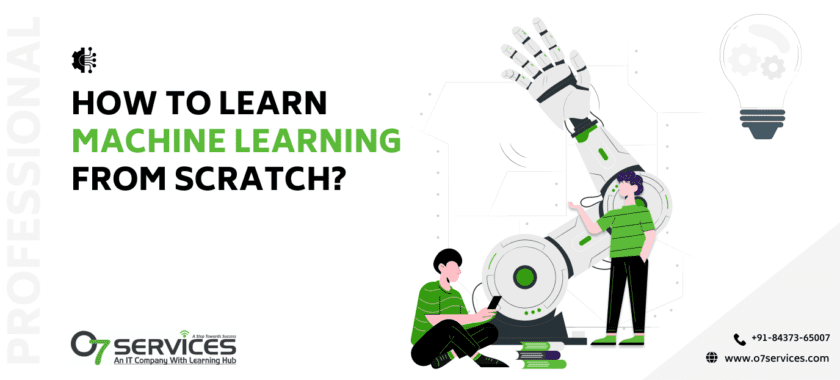
How to learn Machine Learning from scratch Machine learning might sound like rocket science, but trust me, it’s not! It’s like teaching your computer to be smart. If you’re curious and ready to learn, here’s how to dive into the world of machine learning from scratch, no rocket required. Step 1: Get Friendly with Python Think of Python as your new best friend in this journey. It’s a programming language that’s super friendly for beginners. You’ll need it to write code for your machine learning adventures. Install Python on your computer, and you’re all set. Step 2: Math Is Your Superpower No, you don’t have to be an expert in mathematics, although learning the fundamentals will help. Division, multiplication, and addition should be practiced first. Mathematical analysis, calculus, and statistics should follow. For arithmetic lessons, you should turn to Khan Academy and YouTube. Step 3: Get to Know Your Data Machine learning is all about data. Think of data as ingredients for a recipe. You need to understand what’s in your data before you can cook up a great machine learning model. Learn to clean, organize, and explore data using libraries like Pandas in Python. Step 4: The Machine Learning ABCs Okay, now the fun really starts. A computer can learn to spot patterns through machine learning. Supervised Learning: It’s like teaching your computer with labeled examples. For instance, showing it pictures of cats and dogs and telling it which is which. Unsupervised Learning: Here, your computer figures things out on its own. Think of it as finding hidden patterns in data, like clustering similar things together. Deep Learning: This is like the superhero of machine learning. It’s all about neural networks, which can do amazing things like recognizing faces or playing chess. Step 5: Pick Your Model There are many machine learning models out there. Start with the simple ones like Linear Regression or Decision Trees. As you get comfortable, you can dive into fancier ones like Random Forests and Neural Networks. Scikit-Learn is a fantastic Python library to get you started. Step 6: Online Courses Are Your BFFs You don’t have to return to school. There are many economical and free online learning opportunities. Coursera’s “Machine Learning” by Andrew Ng: It’s like having a private tutor. edX’s “Introduction to Artificial Intelligence:” Offers a gentle introduction to the world of AI and machine learning from scratch. Fast.ai’s “Practical Deep Learning for Coders:” Dive into deep learning without drowning in jargon. Step 7: Continue practicing. The key is to actively learn new skills. Begin with something simple, like estimating a house’s price based on its size. As you gain confidence, tackle more complex projects. Websites like Kaggle have tons of real-world datasets and challenges to sink your teeth into. Step 8: Show Off Your Skills Set up a GitHub account and showcase your projects. It’s like your online resume for tech folks. Plus, it’s a great way to get feedback and collaborate with others. Step 9: Join the ML Community This journey includes other people. Join discussion boards like #Machine Learning on Twitter, Stack Overflow, or r/Machine Learning on Reddit to communicate with other students. If you can, go to conferences or meetings; it’s always a plus to meet people in person. Step 10: Patience is a Virtue Recall that neither Rome nor professionals in machine learning were created overnight. Making errors is acceptable since it helps you learn. Don’t give up hence when times are difficult. Keep exploring, learning, and having fun along the way. So there you have it! Learning machine learning from scratch doesn’t require a PhD or fancy jargon. It’s about curiosity, determination, and a willingness to explore. Grab your Python buddy, dive into the data, and let the machine learning adventure begin! Happy coding! 🚀
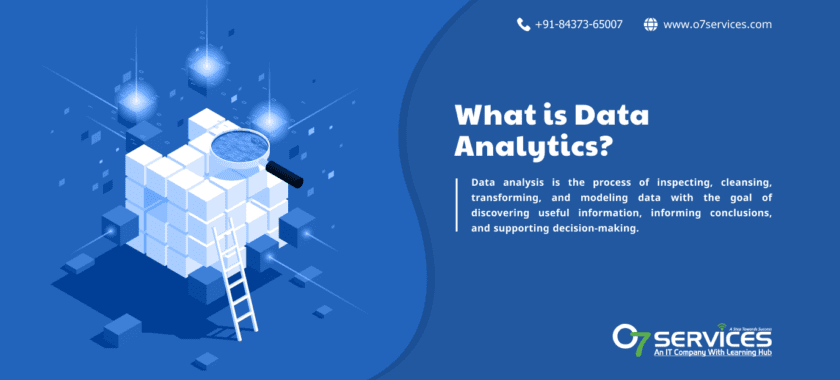
What is Data Analytics in Simple Words What is Data analytics in Simple Words – You’ve likely heard the term “data analytics” tossed around frequently in recent years. It’s now a buzzword and you could be wondering what all the fuss is about. Let’s simplify it into simple terms and discover the reason why it’s something that you need to consider even if you’re not a technology expert. What’s Data Analytics, Anyway? Let’s get started. Data analytics is the process of making sense of an array of data and numbers. Imagine it as your favorite detective in a crime and instead of finding clues, they’re working with databases and spreadsheets. It’s like looking through your bank statements and figuring out where your entire bank account was – but at a greater scale. Governments, companies and even people use data analytics to identify trends solve issues and make better choices. Why Should You Care? The issue “Why should I care about data analytics?” might be on your mind. Indeed, data analytics aren’t only for big, well-funded companies. It’s available to all and can benefit you in more ways than you realize. 1. Smart Shopping Have you ever bought something online? Yes, of course you have. The suggestions that pop up when surfing? This is data analytics at work. It’s analyzing your previous purchases, browsing history and the items that other customers have purchased to suggest items you might enjoy. 2. Health and Fitness Do you have a fitness tracker or health apps on your smartphone? Yes, you’re right is data analytics. This takes every bit of information it collects on your steps heart rate, and your sleep, and converts it into insights regarding your health. It will help you make healthier choices and monitor your improvement. 3. Entertainment Netflix and chill Who’s with me? The shows and movies recommended to you are inspired by what you’ve seen before. It’s all about anticipating what you’ll like next. Data analytics help you identify your next favourite series to watch. 4. Personal Finance Do you want to make your budget more efficient? The use of data analytics will help monitor the spending patterns of your household, find areas where you could save money, and even forecast the future health of your finances. How Does Data Analytics Work? Okay, let’s look at the process of how magic occurs without getting too technical. Collecting Data In the beginning, you collect information – plenty of it. It can range from sales figures, and posts on social media to temperature readings. The data’s insights are enhanced as the quantity increases. Cleaning and Preparing The data can get messy. It’s like trying to build an intricate puzzle that has no pieces. Data analysts take it apart to eliminate duplicates and make sure that it’s ready to be analyzed. Analysing That’s where the excitement starts. Utilizing various tools and methods Data analysts go through the data in search of patterns or trends and also insight. They may employ graphs charts, charts, or even sophisticated algorithms, but the purpose is the same: for them to help answer queries and resolve issues. Visualising Have you ever seen a graph that can explain something complicated in a flash? This is data visualization. It assists in making the data easier to understand and practical. Making Decisions After you’ve gathered the information you need, you’ll be able to make educated decisions. This could include anything from tweaking the marketing strategy to improving your health. Types of Data Analytics Let’s simplify things and keep it straightforward. There are four primary types of data analytics and I’ll break down them for you without the jargon. Descriptive Analytics: The ‘What Happened?’ Descriptive analytics functions as an historical book of your personal data. It reveals what has was happening over time. Imagine that you’ve got a lot of sales information and you’d like to find out which product was did the best in sales in the last month. This is descriptive analytics. It depicts the past in order to comprehend it better. Diagnostic Analytics: The ‘Why Did It Happen?’ Let’s go to the diagnostic analytics. It is here that we go into the depths of. It doesn’t only inform you about what happened, it seeks to determine the reason for what took place. If you find out that a specific product was most sought-after this month (thanks to descriptive analytics) Diagnostic analytics help to determine the reason. Perhaps it was due to a successful advertising campaign or seasonal trend. It’s like being a detective to your information. Predictive Analytics: The ‘What Might Happen?’ Predictive analytics is focused on the future. It gathers data from the past and applies it to make predictions. For instance, let’s say you want determine the quantity of the top-selling item you’ll sell in the next month. Predictive analytics utilizes sales from the past as well as market trends as well as other factors to provide you with an estimation. It’s similar to having a crystal ball that can help you make business decision-making. Prescriptive Analytics: The ‘What Should We Do About It?’ We also have prescriptive analytics. This kind of analytics doesn’t be limited to forecasting the future but also informs you what actions you should do. Returning to our example that predictive analytics predicts you’ll see more sales of this product next month then prescriptive analytics could suggest expanding production or launching an entirely new marketing campaign. It’s like having a knowledgeable consultant telling you the most effective option. The Bottom Line Data analytics is akin to having a superpower in the age of digital. It can assist you in making better choices, save time and money, and live a more healthy life. Don’t let the complicated terminology put you off. Be open to that power to make the most of your data. If you’re planning the next Netflix movie or planning your budget, analytics using data can be your trusted ally. Happy analysis!
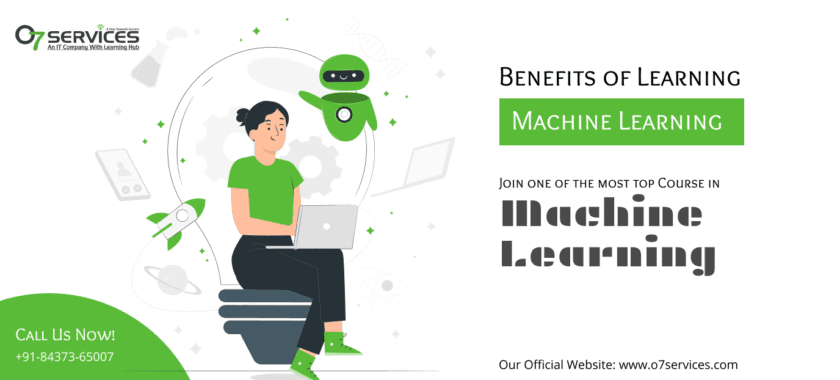
Benefits of Learning Machine Learning Hello, inquisitive minds! Today we’re going to dive into the exciting world of machine learning, and I promise we’ll stay away from these business buzzwords. So why bother with Types of Machine Learning With Example? Let’s simplify things together. What is machine learning? Think of machine learning as a high-tech detective. It’s like Sherlock Holmes, only with data. Instead of solving crime, it solves problems by analyzing large amounts of data and making predictions. This technological magic allows computers to learn from experience and improve their performance over time. Everyday examples Machine learning happens in your life more often than you think. As you scroll through your social media feeds, algorithms learn which posts you’ve liked and show you more. Have you ever purchased something online and the site recommended similar products? This is where machine learning comes in. It’s everywhere! Why should you care about machine learning? Good question! Here are some compelling reasons: Save time and money: Businesses use machine learning to automate tasks, which means less manual work and cost savings. It can also predict when machines need maintenance, preventing costly breakdowns. Personal experience: Ever wonder why your Netflix recommendations are so accurate? Machine learning tailors experiences—both movie recommendations and product recommendations—to make your life easier and more enjoyable. Better health care: Machine learning can analyze patient data faster and more accurately than humans. This can help doctors make a diagnosis faster and develop a personalized treatment plan. A safer world: From self-driving cars that navigate safely to cybersecurity systems that protect your data, machine learning keeps you safe in this digital age. Job opportunities: In an area that is expanding quickly, machine learning can lead to intriguing work prospects. There is a space for everyone, regardless of your level of experience. Types and Examples of Machine Learning Supervised Learning: In supervised training, an algorithm is trained on a labelled data set and learns to make predictions by associating input data with corresponding output features. Example: The classification of spam emails. Each email is assigned to the proper group once the algorithm learns how to classify emails as “spam” or “not spam” based on previous correspondence. Unsupervised learning: It is the process of finding hidden structures or patterns in unlabeled data. Example: Customer Segment Sets. Unsupervised algorithms can group customers based on their buying habits, even without prior knowledge of specific customer types. Reinforcement Learning: Reinforcement learning is the process of teaching an agent how to make choices that will maximize rewards. It gains knowledge by error and receives comments on the calibre of its behaviour. Example: AI, like playing games. Agents like AlphaGo learn to play games like chess by competing against themselves or other players and refining their methods to improve their odds of success. Benefits of machine learning Solve problems in the real world Machine learning is more than just a collection of intricate algorithms. It is an effective tool that can deal with actual issues. ML is used in all kinds of applications, including forecasting market prices, identifying diseases, and even suggesting your next Netflix binge. It can equip you to take on some of the most important problems of our day. Creative Expression You wouldn’t believe how much room there is for creativity in machine learning. You gain the chance to create clever, adaptable systems. Consider building a chatbot that can recognize and react to human emotions or a book recommendation system that proposes titles based on your reading tastes. Just use your creativity to expand the possibilities. In-Demand Skill Let’s talk about turkey now. A golden ticket on the job market is learning machine learning. The demand for ML talent is high. People who can interpret data, draw conclusions, and create models are what they are looking for. Therefore, learning this talent is worthwhile if you want to improve your employment possibilities. Concluding Thoughts Machine learning is similar to an intelligent assistant that can pick up new skills. It is a tool that makes difficult jobs simple and improves the quality and productivity of our lives. You may enter this world without having studied computer science, so don’t be afraid. Start small, explore, and who knows, you might discover your next big breakthrough!
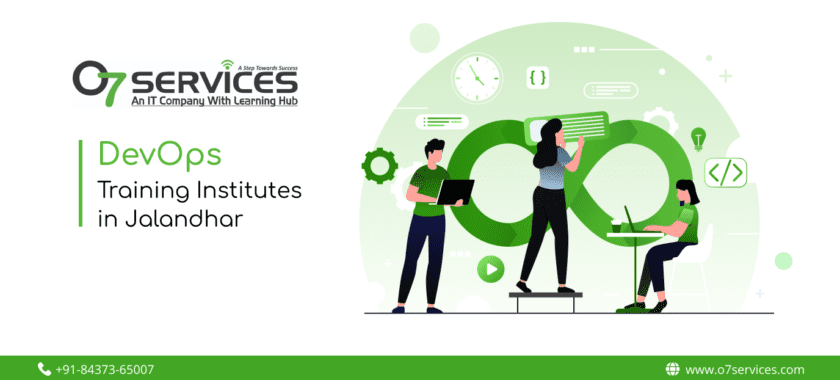
Best DevOps Training Institutes in Jalandhar DevOps Training Institutes in Jalandhar: Development of software (Dev) as well as IT operational (Ops) teams usually work in a complex way. DevOps is an assortment of ideas, methods and beliefs about culture designed to enhance and improve the efficiency of this collaboration. The purpose of DevOps is to improve the efficiency, speed and reliability of the software development and delivery process. The key components and the principles of DevOps are: Collaboration: DevOps promotes close communication and collaboration between both the operations and development teams. Collaboration helps dismantle silos and promotes an understanding of the obligation to deliver top-quality software. Automation: DevOps is essentially about automation. It entails using programs and tools to automate repetitive tasks, for example, developing, testing, or installing software. Automation can reduce human errors, improve efficiency, and speed up the delivery process. Continuous Integration (CI): CI is a method of ensuring that modifications to code are regularly and automatically incorporated into the shared repository. Every integration triggers automated tests to verify that the new code doesn’t create defects. Continuous Delivery (CD): CD extends the CI process by automating the deployment process. It makes sure that code changes, after testing and approval, can be deployed to staging or production environments swiftly and with confidence. Monitor and feedback: DevOps emphasizes the importance of monitoring infrastructure and applications in real time. This allows teams to spot problems quickly, collect feedback, and make the right decisions based on data for continual improvement. Security (DevSecOps): Security is integrated into the DevOps procedure through the use of practices referred to as DevSecOps. It involves analyzing and fixing security issues throughout the development and delivery cycle. DevOps is not a universal approach, and it can differ in its implementation from one organization to another. It’s a response to the problems of traditional methodologies for software development and deployment and seeks to help organizations develop software more quickly, with greater reliability and with better quality. The advantages of DevOps DevOps can bring many benefits to companies, aiding them in improving their process for developing and delivering software as well as improving collaboration among teams, and helping them achieve their better business goals. Here are some advantages of DevOps: Speedier Time to Market Methodologies of DevOps like continuous integration (CI) and continuous delivery (CD) allow companies to roll out new software and updates faster. Speed to market has become essential to remain competitive and meet the demands of customers. Improved Collaboration DevOps encourages collaboration between operations and development along with other groups (such for quality control and security). This helps break down the boundaries and creates a culture of shared responsibility. It leads to better communication and a greater understanding of the team’s goals. Greater Performance: Automation of manual tasks, such as testing deployment, and deployment, in addition to infrastructure provisioning contributes to improved efficiency. It lowers the chance of human errors, speeds up processes, and allows teams to concentrate on other tasks. Improved Qualitative: With automated testing and continuous feedback, DevOps helps identify and solve issues earlier during the development phase. This can lead to better quality software, and also a reduction in the number of costly defects that occur after release. Greater Reliability Monitoring continuously and providing real-time information allows teams to spot and fix issues quickly. This means that software systems are more reliable and downtime is minimized. The ability to scale: DevOps techniques, such as containerization and microservices, allow for easier scaling of applications and infrastructures to meet the demands of growing demand. Companies can change resources according to usage and traffic patterns. Improved Security: DevOps practices can incorporate security into each stage of the delivery and development procedure (DevSecOps). This proactive approach allows you to detect and address security weaknesses earlier, reducing the chance of security breaches and data breach incidents. In the end, DevOps is not just an approach to techniques and tools. It is a method of strategic planning that can have a major impact on the ability of an organization to provide quality to its customers quickly and efficiently.
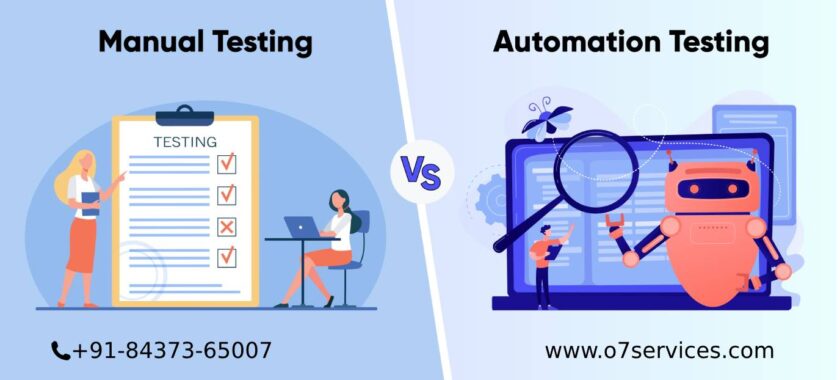
Manual Testing and Automation Testing Difference Manual Testing and Automation Testing Difference: In the dynamic landscape of software development, ensuring the quality and reliability of software applications is paramount. Software testing plays a pivotal role in this endeavor, encompassing various methodologies such as automation testing, manual testing, and utilizing programming languages like Python and Java, along with tools like Selenium. This article will delve into the world of software testing, exploring the nuances of automation testing, manual testing, and their implementation using Python, Java, and Selenium. Automation Testing: Efficiency and Accuracy Automation testing involves using software tools to execute test cases and validate software applications. This approach is highly efficient, as it minimizes human intervention, accelerates the testing process, and reduces the likelihood of errors. Furthermore, automation testing is especially beneficial for repetitive tasks, regression testing, and scenarios that demand precise execution. How to Optimize Software Testing with Python Python has emerged as a popular choice for implementing automation testing due to its simplicity, versatility, and an extensive collection of testing frameworks and libraries. Frameworks like PyTest and unittest provide a structured framework for creating and managing test cases. The readability of Python code simplifies test case creation and maintenance, ensuring a seamless testing process. The “software testing using Python” approach enhances the speed of test execution and allows for quick integration with other tools and frameworks. Java: Powering Automation Testing Java holds a prominent position in the world of automation testing, thanks to its platform independence and object-oriented nature. Test frameworks such as JUnit and TestNG offer a robust structure for creating and organizing test cases. The ability to write test scripts once and run them on different platforms makes Java a preferred choice for cross-platform testing. Implementing “software testing using Java” empowers testers to build scalable and reliable test suites while harnessing the robustness of the Java ecosystem. Selenium: Empowering Automation Selenium, an open-source framework, has revolutionized automation testing by enabling testers to simulate user interactions with web applications. Its compatibility with multiple programming languages, including Python and Java, makes it a versatile tool for automating web testing. With Selenium, testers can write scripts that interact with web elements, validate functionality, and perform regression testing. “Software testing using Selenium” amalgamates the power of automation with the precision of web interaction, offering a comprehensive testing approach. Manual Testing: Precision and Flexibility While automation testing offers efficiency, manual testing remains indispensable for scenarios requiring human intuition, exploratory testing, and UI/UX assessment. Manual testing allows testers to simulate real user interactions, catch subtle nuances, and identify usability issues that might escape automated scripts. Balancing Automation and Manual Testing The key to a successful testing strategy lies in balancing automation and manual testing. Critical features that demand meticulous scrutiny can be subjected to manual testing, whereas repetitive tasks and regression testing can be automated. This equilibrium ensures comprehensive testing coverage while optimizing testing time and resources. Conclusion In the realm of software testing, the choice between automation and manual testing depends on the nature of the application, project requirements, and the desired level of precision. Implementing “software testing using Python, automated software testing with Java, and software testing using Selenium” empowers testers to achieve efficient and accurate results. By leveraging the strengths of both automation and manual testing, software development teams can enhance the quality of their applications, deliver a seamless user experience, and stay competitive in a rapidly evolving technological landscape.
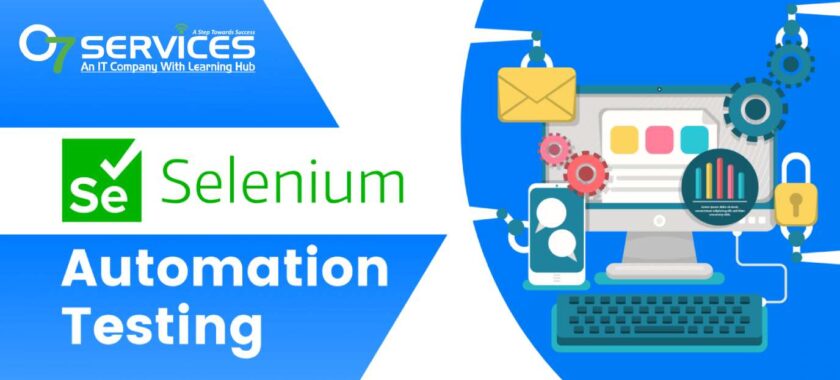
Selenium- An Automation Tool Web applications using Selenium Automation Testing With Java, an open-source, automated testing tool. Unfortunately, Selenium can only test online applications, so testing of desktop and mobile apps is not possible. Alternative tools including HP’s QTP and Appium are used to test software and mobile applications. Unquestionably, Selenium is one of the most demanding and popular tools in the software testing industry, particularly for automated testing of web applications. Due to its powerful skills, adaptability, and sizable supportive community, it has experienced tremendous growth. Let’s examine some of the main factors that make Selenium the most difficult software testing tool: Open Source and Multi-Browser Compatibility: Selenium is an open-source framework, which means it’s free to use and can be easily accessed by anyone. It provides excellent cross-browser compatibility, allowing testers to write scripts that work seamlessly across various web browsers such as Chrome, Firefox, Safari, Internet Explorer, and more. Language Support: Selenium supports a range of programming languages including Java, Python, C#, Ruby, and more. This flexibility enables software testers and developers to choose a language that aligns with their expertise and project requirements. Rich Set of Tools: Selenium is not just a single tool; it’s a suite of tools that cater to different testing needs: Selenium WebDriver: Provides a user-friendly API for interacting with web browsers and automating interactions. Selenium IDE: An integrated development environment for creating Selenium test cases through a record-and-playback mechanism. Selenium Grid: Enables parallel execution of tests across multiple browsers and machines. Flexibility and Customization: Selenium’s architecture allows testers to build customised test automation frameworks tailored to their project’s needs. It provides the flexibility to integrate with various tools, libraries, and plugins to enhance testing capabilities. Large Community and Support: Selenium boasts a vast community of users, developers, and testers who actively contribute to its growth. This results in an extensive pool of online resources, tutorials, forums, and Q&A platforms where users can seek help, share experiences, and learn from one another. Why to use Selenium? Selenium is primarily used for automating the testing of web applications. It provides a suite of tools and libraries that enable developers and testers to automate interactions with web browsers and perform various testing tasks. Here are the main use cases of Selenium: Functional Testing: Selenium is extensively used for functional testing of web applications. Testers can create automated test scripts that mimic user interactions such as clicking buttons, filling out forms, navigating through pages, and verifying expected outcomes. Regression Testing: Selenium is well-suited for regression testing, where previously tested functionalities are retested to ensure that new code changes or updates haven’t introduced new bugs or broken existing features. Cross-browser Testing: One of the significant advantages of Selenium is its ability to test web applications across different web browsers. Test scripts can be written once and executed on multiple browsers to ensure consistent behaviour across different platforms. Cross-platform Testing: Selenium also supports testing across different operating systems (Windows, macOS, Linux), allowing testers to ensure that the application functions correctly on various platforms. It’s important to note that while Selenium is widely used for web application testing, it has its limitations, such as being primarily designed for web-based testing and having certain challenges related to handling dynamic content. Nevertheless, it remains a powerful tool for automating various testing aspects of web applications. Advantages of Selenium Automation Testing With Java There are several advantages to using Selenium as a tool for software testing: Cross-browser Compatibility Testing: Selenium supports multiple web browsers such as Chrome, Firefox, Safari, and Internet Explorer. This allows you to test your web application on various browsers to ensure cross-browser compatibility. Platform Independence: Selenium supports multiple operating systems (Windows, macOS, Linux) and programming languages (Java, Python, C#, etc.), making it a versatile tool that can be used across different environments. Open Source and Active Community: Selenium is open source, which means it’s free to use and has a large and active user community. This community continuously contributes to the tool’s development, updates, and provides a wealth of resources and support. Support for Multiple Testing Frameworks: Selenium can be integrated with various testing frameworks such as TestNG and JUnit, enabling you to write organised and structured test scripts, manage test suites, and generate reports. Integration with Continuous Integration (CI) Tools: Selenium can be seamlessly integrated with CI tools like Jenkins, Travis CI, and CircleCI. This enables automated testing as part of the continuous integration and delivery process. Flexibility and Customization: Selenium provides a high degree of flexibility in terms of customising and enhancing your test scripts. You can interact with web elements, simulate user interactions, handle dynamic content, and perform verifications. Real User Scenarios: Selenium allows you to simulate real user scenarios by interacting with elements on the web page, clicking buttons, filling forms, and validating results. This helps in identifying user experience issues.
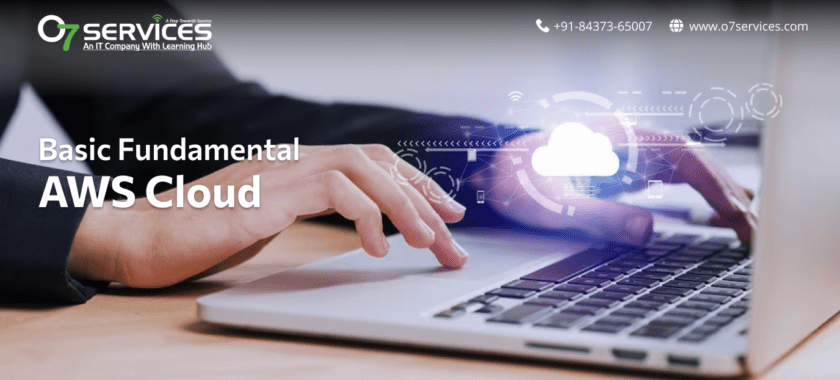
Basic Fundamental AWS Cloud Amazon Web Services (AWS) is a comprehensive cloud computing platform offered by Amazon, delivering a wide range of computing resources and services over the internet. It enables businesses to leverage scalable and flexible IT infrastructure without the need for significant upfront investments. Here’s a concise overview of the basic fundamental AWS Cloud components and concepts: Infrastructure as a Service (IaaS): AWS provides virtualized computing resources, including virtual machines (EC2 instances) and storage (EBS volumes), allowing users to build and manage their applications and configurations. Platform as a Service (PaaS): AWS Elastic Beanstalk offers a platform for deploying and managing applications without concerning yourself with the underlying infrastructure. It’s particularly suitable for developers looking to deploy code quickly. Software as a Service (SaaS): AWS offers SaaS solutions like Amazon WorkMail and Amazon Chime, allowing users to access software applications over the Internet without the need for local installation. Networking Services: AWS provides a Virtual Private Cloud (VPC) to isolate and secure resources within a virtual network. It also includes services like Elastic Load Balancing (ELB) for distributing incoming application traffic and Amazon Route 53 for domain name system (DNS) management. Storage Services: AWS offers versatile storage solutions such as Amazon S3 for scalable object storage, Amazon EBS for block storage, and Amazon Glacier for long-term archival storage. Database Services: Amazon RDS provides managed relational databases, while Amazon DynamoDB offers a managed NoSQL database service. These services simplify database setup, operation, and scaling. Compute Services: Amazon EC2 (Elastic Compute Cloud) allows users to rent virtual servers for running applications. EC2 instances can be selected based on computing power, memory, and other requirements. Serverless Computing: AWS Lambda enables developers to run code without provisioning or managing servers. It automatically scales based on the incoming traffic and executes code in response to triggers. Security and Identity: AWS Identity and Access Management (IAM) enables centralized control over user access to resources. Security Groups and Network ACLs help control traffic flow, ensuring a secure environment. Monitoring and Management: AWS CloudWatch provides monitoring and observability services for resources and applications. AWS Management Console offers a user-friendly interface to manage AWS services. Deployment and Automation: AWS CloudFormation enables users to define and provision infrastructure as code, facilitating consistent and repeatable resource creation. AWS Elastic Beanstalk simplifies application deployment and scaling. Global Reach: AWS offers multiple Availability Zones and Regions globally, allowing users to host applications closer to their target audience for improved performance and reliability. Economies of Scale: AWS operates on a pay-as-you-go model, enabling businesses to pay only for the resources they use. This eliminates the need for large upfront investments and allows for cost optimization. Resilience and High Availability: AWS services are designed with redundancy in mind, ensuring high availability and fault tolerance for applications. Migration and Hybrid Solutions: AWS provides tools and services for migrating on-premises applications to the cloud, enabling hybrid architectures that combine both on-premises and cloud resources. Conclusion: In conclusion, understanding the basic fundamental AWS Cloud concepts, including IaaS, PaaS, SaaS, networking, storage, databases, and serverless computing, is essential for businesses and individuals seeking to harness the power of cloud computing to innovate, scale, and optimize their operations.
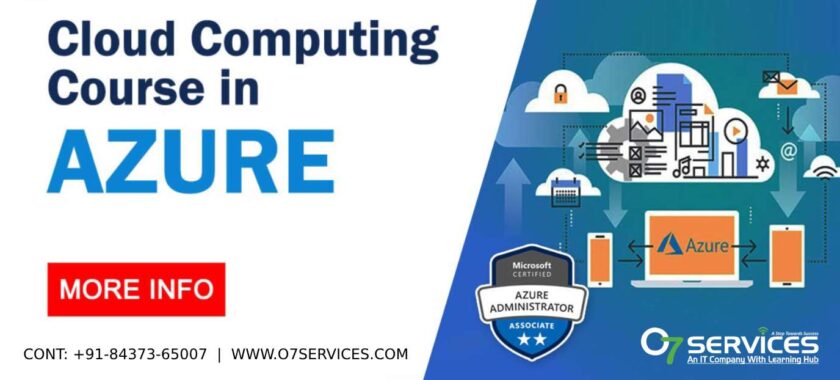
Azure Cloud Computing Course in Jalandhar In the rapidly evolving information technology landscape, cloud computing has emerged as a pivotal technology that empowers businesses with flexibility, scalability, and cost-efficiency. Azure, Microsoft’s cloud computing platform, stands out as a leader in this domain. O7 Services, a renowned IT training institute located in Jalandhar, recognizes the significance of Azure and offers a comprehensive Azure Cloud Computing Course to equip professionals and students with the skills needed to harness the power of the cloud. The Azure Cloud Computing Course offered by O7 Services is a dynamic program designed to provide participants with a deep understanding of Azure’s features, services, and applications. The course spans a range of topics, from the fundamentals of cloud computing to advanced Azure solutions. With a focus on hands-on learning, participants gain practical experience in utilizing Azure services to solve real-world challenges. Course Content and Headings: Introduction to Cloud Computing (Module 1) Understanding Cloud Computing in Azure Concepts Benefits and Challenges of Cloud Adoption Cloud Service Models: IaaS, PaaS, SaaS Introduction to Microsoft Azure. Getting Started with Azure (Module 2) Creating an Azure Account Navigating the Azure Portal Azure Resource Groups and Management Azure Virtual Machines (Module 3) Creating and Configuring Virtual Machines Virtual Machine Scaling and Availability Virtual Machine Extensions Azure Networking (Module 4) Virtual Networks and Subnets Azure Load Balancer and Application Gateway Azure VPN and ExpressRoute Azure Storage Solutions (Module 5) Azure Blob Storage Azure File Storage Azure Table and Queue Storage Azure Identity and Access Management (Module 6) Azure Active Directory Role-Based Access Control (RBAC) Multi-Factor Authentication (MFA) Azure App Services (Module 7) Creating Web Apps and APIs Deployment Slots and Scaling Continuous Integration and Deployment Azure Databases (Module 8) Azure SQL Database Cosmos DB: NoSQL Database Service Data Migration Strategies Azure Solutions and Architectures (Module 9) High Availability and Disaster Recovery Serverless Computing with Azure Functions Microservices with Azure Service Fabric Security and Compliance in Azure (Module 10) Azure Security Center Data Encryption in Azure Compliance and Governance Conclusion: The Azure Cloud Computing Course offered by O7 Services in Jalandhar is an exceptional opportunity for individuals seeking to enhance their cloud computing skills. With a structured curriculum and a hands-on approach, participants can gain proficiency in utilizing Azure services effectively. By covering essential topics ranging from cloud fundamentals to advanced architecture solutions, the course empowers participants to contribute to the success of modern businesses in the digital era. Enrolling in this course could be a transformative step towards a successful career in cloud computing and IT infrastructure management.
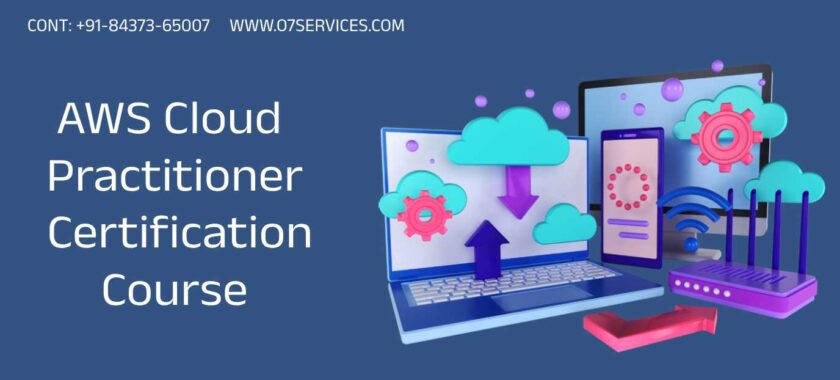
Introduction to AWS Cloud Practitioner Certification Course The AWS Cloud Practitioner Certification Course ( CLF-C02 ) Cloud offered by O7 Services is designed to provide individuals with a comprehensive understanding of fundamental cloud computing concepts and AWS services. This course is tailored to help participants prepare for the AWS Certified Cloud Practitioner exam, a foundational certification that validates one’s knowledge of AWS Cloud essentials. Module 1: Cloud Computing Fundamentals In this module, participants are introduced to the core concepts of cloud computing. They learn about the advantages of cloud computing over traditional IT models, the different cloud deployment models (public, private, hybrid), and various cloud service models (IaaS, PaaS, SaaS). The module also covers key cloud terminologies that lay the groundwork for understanding AWS services. Module 2: AWS Global Infrastructure This module delves into the extensive global infrastructure that AWS provides. Participants learn about AWS Regions, Availability Zones, and Edge Locations. They also explore the importance of high availability and fault tolerance in cloud architecture, as well as how AWS ensures data durability and security across its infrastructure. Module 3: AWS Core Services Here, participants get an overview of AWS’s core services. Topics covered include Amazon EC2 for scalable compute capacity, Amazon S3 for object storage, Amazon RDS for managed relational databases, and Amazon VPC for networking within the AWS environment. The module emphasizes the practical applications of these services and their role in building resilient and efficient applications. Module 4: AWS Security and Compliance Security is a paramount concern in cloud computing. This module covers AWS Identity and Access Management (IAM), which controls access to AWS resources. Participants learn about best practices for securing their AWS accounts, data encryption mechanisms, and compliance standards that AWS adheres to. Understanding these concepts is essential for maintaining a secure cloud environment. Module 5: Billing and Pricing In this module, participants gain insights into AWS pricing models and billing practices. They learn about different pricing options such as On-Demand Instances, Reserved Instances, and Spot Instances. The module also covers the AWS Free Tier, which allows users to explore AWS services with minimal cost. Understanding pricing helps individuals optimize costs and choose the most suitable pricing model. Module 6: AWS Support and Troubleshooting AWS offers a range of support plans to assist customers. This module introduces participants to the various AWS Support plans, including Basic, Developer, Business, and Enterprise. Participants learn about the AWS Trusted Advisor tool that provides recommendations for optimizing resources and costs. The module also covers basic troubleshooting techniques to identify and resolve common issues. Module 7: AWS Services for Architecting This module focuses on advanced AWS services that play a crucial role in architecting scalable and flexible solutions. Topics include Amazon ECS for container orchestration, Amazon Lambda for serverless computing, Amazon API Gateway for building APIs, and Amazon CloudFront for content delivery. Participants explore real-world use cases to understand how these services can be leveraged effectively. Module 8: Exam Preparation and Tips In the final module, participants receive guidance on how to approach the AWS Certified Cloud Practitioner exam. They learn about the exam format, question types, and time management strategies. The module also offers tips for effective study habits and additional resources for further exam preparation. Conclusion The AWS Cloud Practitioner Certification Course ( CLF-C02 ) by O7 Services provides a comprehensive and structured learning path for individuals aiming to obtain the AWS Certified Cloud Practitioner certification. With its modules covering fundamental cloud concepts, AWS services, security, pricing, and more, participants are well-equipped to excel in both the exam and real-world cloud environments. This course serves as an essential stepping stone for anyone looking to embark on a successful journey in cloud computing using AWS.
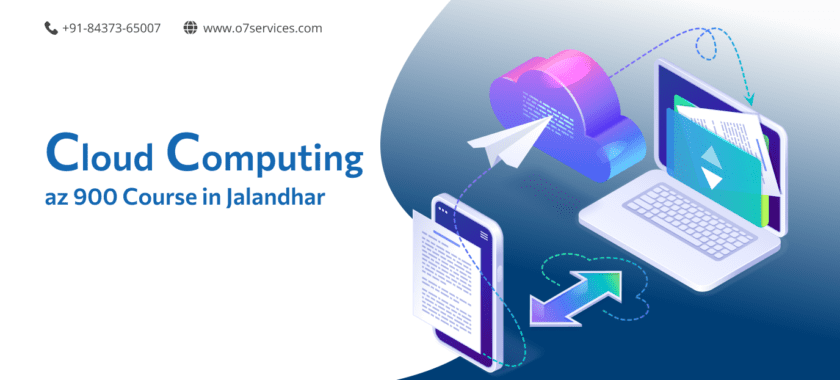
Cloud Computing AZ 900 Course in Jalandhar In today’s rapidly evolving technological landscape, cloud computing has emerged as a fundamental pillar that revolutionizes the way businesses and individuals utilize and manage computing resources. The AZ-900 certification, offered by Microsoft, serves as a foundational step in understanding cloud concepts and principles. O7 Services in Jalandhar recognizes the significance of cloud computing and offers a comprehensive Cloud Computing AZ 900 course designed to equip learners with essential knowledge and skills. Course Overview The AZ-900 course provided by O7 Services is tailored to provide participants with a deep understanding of cloud computing concepts, enabling them to make informed decisions regarding cloud adoption and services. This course is particularly suitable for individuals with little to no prior experience in cloud computing, as it covers the basics while also delving into more advanced topics. Key Course Content * Introduction to Cloud Computing Definition of cloud computing and its significance in modern IT Evolution of cloud computing and its impact on businesses Overview of different cloud service models: IaaS, PaaS, and SaaS * Microsoft Azure Fundamentals Introduction to Microsoft Azure as a leading cloud service provider Exploring Azure’s global infrastructure and data centres Azure services and solutions overview * Azure Pricing and Support Understanding Azure pricing models: pay-as-you-go, reserved instances, and more Exploring Azure cost management tools Azure support options and SLAs * Core Azure Services Deep dive into essential Azure services: virtual machines, storage, and networking Creating and managing virtual machines in Azure Implementing Azure storage solutions * Azure Solutions and Management Tools Overview of Azure-based solutions: Azure Active Directory, Azure Backup, and more Introduction to Azure management tools and the Azure Portal Implementing security and governance in Azure * Azure Identity and Governance Managing Azure identities and governance principles Implementing multi-factor authentication and conditional access Role-based access control (RBAC) in Azure * Azure Compliance and Data Protection Understanding data residency and compliance in Azure Overview of Azure privacy and protection tools Azure’s adherence to global compliance standards * Azure Monitoring and Reporting Implementing Azure monitoring solutions for applications and resources Overview of Azure Monitor and Azure Service Health Creating and configuring alerts in Azure Course Benefits The AZ-900 course by O7 Services offers several benefits to participants: * Strong Foundation: Participants will establish a solid understanding of cloud computing concepts and terminology, setting the stage for more advanced Azure certifications. * Industry-Relevant Skills: Learners will gain practical skills needed to navigate the Azure environment, work with Azure services, and make informed cloud-related decisions. * Certification Preparation: The course comprehensively covers topics aligned with the AZ-900 exam objectives, helping participants confidently prepare for the certification exam. * Practical Labs: Hands-on labs and exercises provide real-world experience in working with Azure services and tools. * Expert Guidance: O7 Services’ experienced instructors bring their industry expertise to the classroom, ensuring a high-quality learning experience. Conclusion The AZ-900 course offered by O7 Services in Jalandhar serves as an ideal starting point for individuals interested in exploring cloud computing concepts and Microsoft Azure services. Through a well-structured curriculum and expert guidance, participants will not only build a strong foundation but also gain the skills necessary to thrive in a cloud-centric IT landscape. By enrolling in this course, learners take a significant step towards unlocking the benefits of cloud computing and Azure expertise.
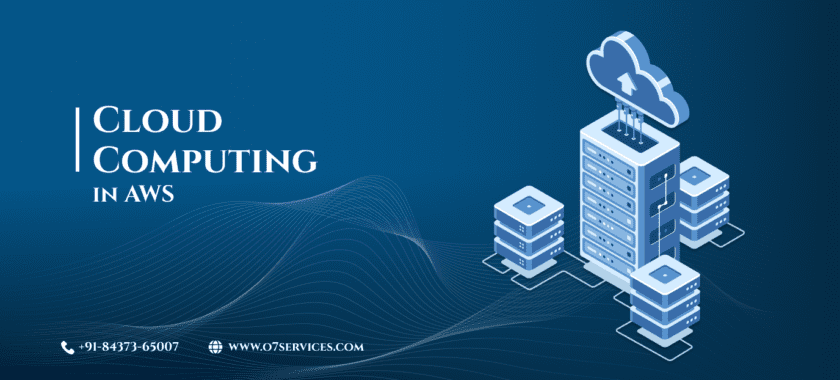
Cloud Computing in AWS Cloud computing has revolutionized the way businesses approach their IT infrastructure, offering scalability, flexibility, and cost-efficiency. O7 Services, a leading provider in the industry, harnesses the power of Amazon Web Services (AWS) to deliver exceptional cloud computing solutions. In this article, we will delve into the key aspects of Cloud Computing AWS Course in Jalandhar as offered by O7 Services. Introduction to Cloud Computing in AWS Cloud computing entails the delivery of computing services, including storage, databases, networking, software, analytics, and more, over the Internet. This eliminates the need for organizations to invest in and maintain on-premises hardware and software, offering agility and enabling focus on core business functions. Amazon Web Services (AWS) AWS, a subsidiary of Amazon, is a comprehensive and widely adopted cloud computing platform. It provides a vast array of services that cater to computing power, storage, databases, networking, analytics, machine learning, security, and more. Benefits of Cloud Computing AWS Course O7 Services leverages AWS to provide numerous benefits to their clients, including: Scalability: AWS allows businesses to scale their resources up or down based on demand. O7 Services assists clients in optimizing their resource allocation, ensuring efficient utilization and cost savings. Cost-Efficiency: With pay-as-you-go pricing models, businesses pay only for the resources they consume. O7 Services helps clients manage costs by recommending the right pricing options and optimizing resource usage. Global Reach: AWS operates in multiple geographic regions, enabling businesses to deploy applications globally with low-latency access. O7 Services facilitates seamless global expansion for their clients. Security: AWS implements robust security measures, and O7 Services enhances these by assisting clients in configuring security groups, encryption, and access controls to safeguard their data. Reliability: AWS boasts high availability and uptime. O7 Services works with clients to design fault-tolerant architectures that ensure continuity despite hardware failures. Innovation: AWS continually introduces new services and features. O7 Services guides clients in adopting the latest technologies to drive innovation and maintain a competitive edge. O7 Services’ Cloud Offerings O7 Services capitalizes on AWS’s capabilities to offer a range of cloud computing solutions: Infrastructure as a Service (IaaS): O7 Services assists clients in setting up virtual servers, storage, and networking components, providing a scalable and customizable infrastructure foundation. Platform as a Service (PaaS): O7 Services enables clients to focus on application development by managing the underlying infrastructure. This accelerates the development lifecycle. Software as a Service (SaaS): O7 Services helps clients migrate to SaaS applications hosted on AWS, reducing maintenance overhead and enhancing accessibility. Data Management: Leveraging AWS databases and analytics services, O7 Services aids clients in optimizing data storage, processing, and analysis for better insights. Machine Learning and AI: O7 Services guides clients in leveraging AWS’s machine learning services to build predictive models, automate processes, and gain actionable insights. Migration Strategies: O7 Services facilitates seamless migration to the cloud by employing strategies such as: Lift and Shift: Migrating applications with minimal modifications to the cloud to achieve quick benefits. Replatforming: Making slight adjustments to applications for better cloud optimization. Refactoring: Restructuring applications for cloud-native architecture to fully leverage cloud benefits. Conclusion O7 Services harnesses the capabilities of AWS to provide unparalleled cloud computing solutions. With benefits like scalability, cost-efficiency, and innovation, AWS serves as a powerful foundation for O7 Services’ offerings. Whether it’s IaaS, PaaS, SaaS, data management, or AI integration, O7 Services ensures that businesses can seamlessly transition to the cloud and reap the rewards of modern computing paradigms. As technology evolves, O7 Services continues to lead the way in enabling organizations to thrive in the digital age.

Basic Computer Course in Jalandhar Are you eager to step into the realm of technology computing? O7 Services is proud to offer a thorough basic Computer course in Jalandhar. In today’s world of ever-changing digital age, having a basic computer literacy is essential. Our course aims to provide students with a solid foundation to learn to manoeuvre through this constantly changing digital landscape quickly and confidently. Overview of Our Course O7 Service offers a basic computer-related training program geared towards novices with no prior computer experience. Our curriculum was designed with care to give an understanding of fundamental concepts and their use in everyday life. The Course’s Content An Introduction to Computing Learn about the fundamental elements of a computer system, starting with software and hardware components, operating systems, and the administration of the files. Microsoft Office Suite: Expand your capabilities in the most essential Microsoft Office applications like Word, Excel and PowerPoint by making spreadsheets, documents and presentations with them. Email and the Internet: Discover the vastness and diversity of the Internet and learn to navigate the web safely. Learn how to effectively email while managing the contact list and safely attaching files. Web browsing and Internet Security: Learn effective ways to use browsers effectively for entertainment, research, or information extraction. Also, you will be taught the most effective methods in the area of protection and online privacy. Basic Troubleshooting: Learn the capability to resolve problems by identifying and resolving common computer problems. Learn about software updates, installing antivirus software and maintenance of your system in this course. A brief introduction to Social Media: Learn about the most popular social media platforms and their purposes while learning to utilize them and responsibly. The beginnings of Graphic Design: Discover the basics of graphic design by using simple tools for making simple graphics and images to be used for personal and professional uses. A Guide to Coding Begins investigating the potential of programming by learning about the programming language and the ability to think logically. Why should you choose O7 Services? Our knowledgeable instructors are experts in the field of computer-based education. They have a passion for creating an ideal learning environment. Interactive Learning: Through workshops and hands-on classes that give users practical experience with computer use. Learning through hands-on methods can help users develop real-world skills and confidence working with computers. Flexible Scheduling We at our firm recognize the fact that each person’s needs are unique and that’s why we provide flexibility in scheduling that can seamlessly fit into your schedule. Larger Batch Sizes To allow us to provide you with individual attention We offer lessons in groups of a smaller size to allow instructors to meet the needs of each student efficiently. Affordable Costs: A quality computer education doesn’t cost you a lot. Our prices for courses are reasonable so that learning can be affordable for anyone. Conclusion In today’s technologically-driven society, O7 Services’ Basic Computer Course in Jalandhar is an excellent opportunity to increase your digital literacy. Whatever your experience, background and field of work occupation, whether you’re a professional, a student or a retired homemaker in the comfort of your home, a retirement facility or in a retirement home, this course will give you the ability to navigate digital platforms confidently and make your daily tasks easier than before! Join us now on the path to becoming an expert in the field of technology and empowering yourself. Your digital future starts right now!

WordPress Training Course in Jalandhar In today’s digital age, having a strong online presence is crucial for businesses and individuals alike. One of the most popular platforms for creating and managing websites is WordPress. However, harnessing its full potential requires a deep understanding of its features and functionalities. If you’re in Jalandhar and looking to master WordPress, look no further than the comprehensive WordPress Training Course in Jalandhar offered by O7 Services. Course Overview: O7 Services, a reputable name in the field of digital marketing and content services, presents an outstanding opportunity for residents of Jalandhar to elevate their skills through their WordPress training course. This course is meticulously designed to cater to beginners as well as those with some prior experience, aiming to equip participants with the knowledge and practical expertise needed to create and manage stunning WordPress websites. Key Highlights: Expert Instructors: The WordPress training course is led by seasoned professionals with extensive experience in web development and WordPress. Their expertise ensures that participants receive accurate and up-to-date information. Comprehensive Curriculum: The curriculum covers a wide range of topics, starting from the basics of WordPress installation and configuration to more advanced topics such as theme customization, plugin development, and search engine optimization (SEO) for WordPress sites. Hands-on Experience: Theory is complemented with practical hands-on exercises that allow participants to apply what they’ve learned. This interactive approach helps reinforce concepts and build confidence in navigating the WordPress ecosystem. Customization and Theming: Participants will delve into the world of WordPress themes, learning how to select, customize, and modify them to create unique and visually appealing websites. Plugin Mastery: The course provides a comprehensive understanding of plugins – the heart of WordPress functionality. Participants will learn how to leverage and even create plugins to extend website capabilities. SEO for WordPress: With online visibility being crucial, the course covers essential SEO techniques tailored for WordPress websites, helping participants make their sites more search engine-friendly. Responsive Design: In today’s mobile-driven world, responsive design is a must. The course teaches participants how to make their websites look and function seamlessly across various devices. Troubleshooting and Maintenance: Learning doesn’t stop at website creation. The course also equips participants with troubleshooting skills and knowledge about website maintenance, ensuring their WordPress sites run smoothly. Conclusion: If you’re seeking to master WordPress and unlock its immense potential, O7 Services WordPress Training Course in Jalandhar is the perfect opportunity. With expert instructors, a comprehensive curriculum, and a hands-on approach, you’ll gain the skills needed to create, manage, and optimize WordPress websites effectively. Elevate your digital presence and career prospects by enrolling in this transformative course. Don’t miss this chance to become a WordPress pro with O7 Services!
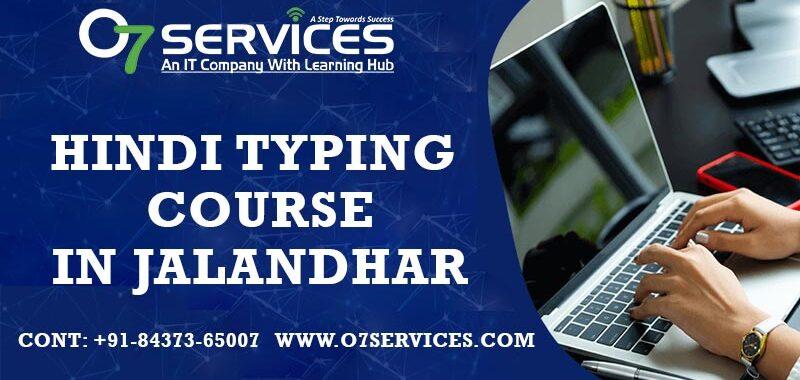
Hindi typing Course Jalandhar We have been teaching the Hindi Typing course Jalandhar using Raavi Font. It has been used for Punjab Govt—jobs for the last five years or more. Our institution is over 15 years old, and we have been teaching job-oriented classes since 1999. Hindi Typing Fees in Jalandhar Costs charged for Hindi Typing Course Jalandhar are very reasonable at O7 Services as we believe high-quality education should be accessible at an affordable price. Visit our institute for more details Why From O7 Services O7 Services was established in the year 2015. It is among the most stable management educational training services within Jalandhar, Punjab. In O7 Services, we provide Hindi typing classes without actually seeing the keyboard, but practical training for our students, so that they can pass any Govt. job test without difficulty. We have 5-star ratings from our students on Google and Facebook from our students. Our principal motto is Learn, Earn, and Go. Our primary goal is customer satisfaction, not to make money. Why Does Hindi Typing Speed Matter For Govt. Job? You’ll be able to converse with people who speak your Hindi language. You’ll be able to take advantage of all tasks requiring Hindi typing. First, it’ll be an additional few minutes that you won’t be able to. In addition, the time and the minutes will be changed to the hours you’ll use to neutralize your activities. Future of Hindi Typing Course The future of Hindi typing Courses is bright, according to the Job Market Survey Statistics, which predicts an increase of 64% in job openings for Typing by the government. There is an enormous need for Hindi typing Govt. jobs, mainly in India.
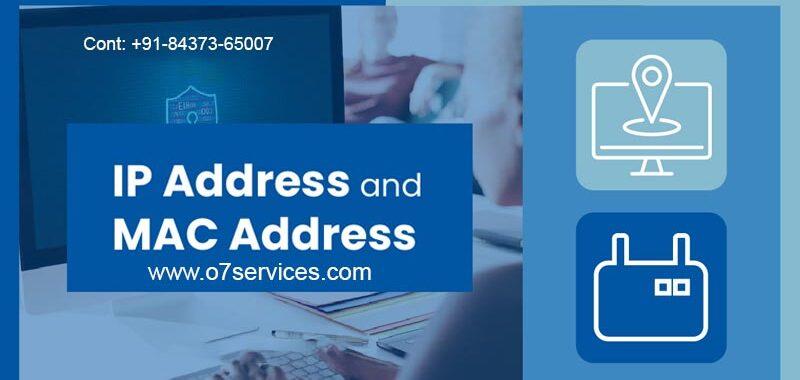
Difference Between MAC and IP Address MAC Address Difference Between MAC Address and IP Address: Each device connected to the network is given a 12-digit hexadecimal number called the MAC address, or Media Access Control Address. The Network Interface Card (NIC) often houses the MAC address, which is typically assigned during the manufacturing process as a unique identification. When trying to find a identifies the devices or run diagnostics on local network hardware, the MAC address identifies is necessary. An example of a MAC address is: 00:1B:44:11:3A: B7 The base and destination MAC addresses are included in the header of each data frame to facilitate clear node-to-node communication. MAC addresses are part of the data link layer of the Open System Interconnect (OSI) concept. A device may have several MAC addresses since each device is given a distinct MAC address. How to find MAC Address on Windows Select Network and Sharing Center by clicking Start > Control Panel > Network and Internet. Select the network whose MAC address you want to display by clicking it. Choose Details. Under the header of “Physical Address,” the MAC address is displayed. IP Address IP address stands for Internet Protocol address and is a unique identifier for connecting to a particular computer or computer network which is provided by ISP (Internet Service Provider). An IP address allows a computer to send and receive data when connected to the Internet. Two main versions of IP (Internet Protocol) IPv4 and IPv6 are used to create IP addresses. 192.168.0.1 is an example of an IPv4 address that is a 32-bit dotted decimal number, but an IPv6 address is a 128-bit hexadecimal number, for example 2001:0db8:85a3:0000:0000:8a2e:0370 :7334. IPV4 – There are four types of IP address: Private – This IP address is connected to every device you connect to the internet network, including laptops, desktop computers, smartphones, etc. Additionally, the demand for private IP addresses expanded significantly with the development of IoT (internet of things) technologies. The network device (router) must uniquely identify each system. The router would therefore be the sole device with the ability to create unique private IP addresses for each of them on the network. Public – The public IP address functions as the principal address for the entire network, containing all other network components connected to the network. The network assigns a private IP address to each device. The public IP address is assigned to the network equipment (router) under the supervision of the Internet service provider (ISP). ISPs gather a lot of IP addresses, which they then give to their customers. It is possible to further classify public IP addresses into two subcategories: Static – Unlike dynamic IP addresses, which are variable addresses, static IP addresses are, as their name suggests, constant addresses. The network device continuously assigns the system the IP address it was given. Companies and people steer clear of adopting static IP addresses because of their consistency. But if a business wishes to assign a host to its network server, they are necessary. Dynamic – These are the IP addresses that change frequently and are not consistent. According to the needs of the client, they are selected by the ISPs from a vast collection of IP addresses. In this manner, often changing IP addresses demonstrate cost effectiveness for ISPs and, to a certain extent, offer security against hackers and cybercriminals. How to find IP Address on Windows: Press to the keyboard shortcut, Win +R to go to the Run Now type ncpa.cpl to view all the networks that you are connected with. Select the network that you want to view the IP address of. Select Details Here, both IPv4 and IPv6 addresses are visible.
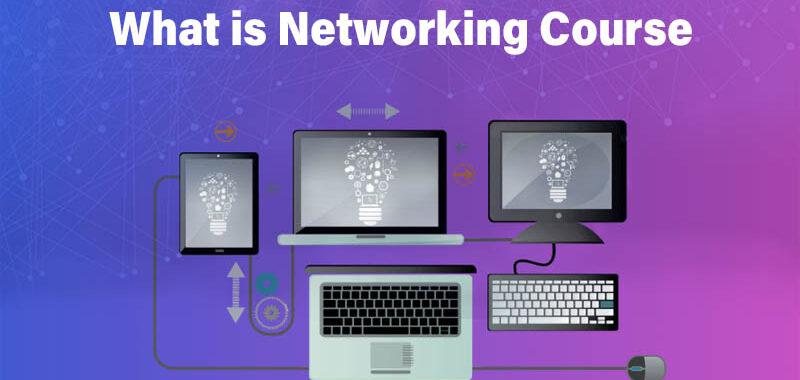
Best Computer Networking Course & Certifications The best computer Networking Course In the current technological age computers have become an essential part of the business world and are essential to the field of business. With the advancement of technology as technology improved, organizations became more crucial. We’ve slowly transitioned from a cable network breakthrough to a remote management technology. If we look today, we will realize that systems management impacts everything. How Computer Networking Works Computer networks are a collection of interconnected devices which can transfer business and financial information to one another. A company’s devices may be connected via wires, or remotely via the radio wave or an infrared transmitting. The devices use a set of instructions and select the so-called conventions used to send information via wires or other media. The main reason for computers is the ability for gadgets to communicate with one another and share assets, which include records, data, apps and other equipment such as scanners or printers. Email, virtual collaboration, video conferencing, document sharing web gaming, and internet access are the most likely uses for organizations that run PCs. Networking is now a crucial component of any communication framework. Understanding how the network functions allows you to comprehend why this is needed. The network operation of computers: Here’s a brief description of how computers work: * Cables connect devices remotely via Wi-Fi or any other remote technologies. * Gadgets have IP addresses assigned that allow them to be seen in the company. Every business gadget has an IP address unique to the gadget. * Information is split into smaller units, called bundles, and then sent to the destination device like the hardware transmits the data across the company. The information bundles will be directed to their final destination with different equipment, like hubs and switches, when navigating an organizational structure. Shared resources clients can make use of resources like printers, information, or access to the internet more effectively. Need for Computer Networks Computer networks are crucial nowadays because they allow communication and sharing of resources between various devices and individuals. This is an overview of how we can do with computer networks, the benefits we get from computers, and things that have become feasible or even real due to networking. Let’s consider the significance to the computer network: Computer networks facilitate sharing resources such as documents, printers, and applications for devices and users. This means that the cost of resources is reduced and efficiency is improved. Excellent communication capabilities. Anywhere they may be connected, users can use computers. * Get information. Networks give access to various information and services including the internet, databases servers, and cloud-based computing services. Information is now available to be accessed and shared across the world. • High-security – networks permit to deploy security measures such as firewalls, access control, and encrypted connections to secure sensitive information from unauthorised access and other security risks. * Collaboration – No matter their geographical locations, networks enable organizations and individuals working together on the same task to work together. This encourages creativity, boosts output, and fosters collaboration. Networks provide central administration of applications, resources and data.
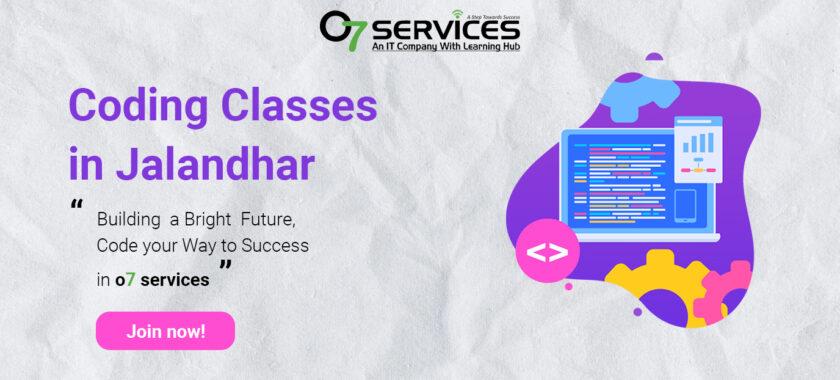
Best Coding Classes in Jalandhar If you are looking for coding classes in Jalandhar, you should consider O7 Services Institute. They are a pioneer in the IT field and registered with the Government of India. They offer a range of courses including Java for software development and web development. With 15 years of experience in providing computer training, they are well known for their comprehensive education methodologies and holistic approach to empowering the future of millions of youths. If you are searching for coding classes near me in Jalandhar, I recommend considering O7 Services Institute. Modules in Learn Computer Programming Coding Classes in Jalandhar * HTML * CSS * Web Designing * Python – Software Development & Web Development * Flutter – Mobile Apps Development * Java – Software Development & Web Development Why From O7 Services Institute? O7 Services Institute is a colonist in the IT Field and registered with the Government of India. We serve a wide range of results for Mobile Applications, Desktop Applications and web Applications. We’ve been providing computer training to our scholars for the last 15 years. We’re well known for our comprehensive education methodologies & our holistic approach to encouraging the future of millions of youths.

Adobe Illustrator Training Course in Jalandhar Adobe Illustrator has revolutionized the world of graphic design, becoming an indispensable tool for professionals and enthusiasts alike. If you’re looking to enhance your design skills, an Adobe Illustrator training course in Jalandhar can be your gateway to unlocking endless creative possibilities. In this article, we’ll delve into the benefits of pursuing an Adobe Illustrator course in Jalandhar and how it can empower you to create stunning visuals. Adobe Illustrator Training in Jalandhar Adobe Illustrator training in Jalandhar offers a comprehensive learning experience that covers the fundamentals of the software, catering to beginners and intermediate-level learners. The course introduces participants to the intuitive interface, tools, and features of Adobe Illustrator, empowering them to create intricate vector graphics and artwork. Benefits of Adobe Illustrator Course in Jalandhar 1. Comprehensive Curriculum: A reputable Adobe Illustrator course in Jalandhar is designed to provide a well-structured curriculum that covers everything from the basics to advanced techniques. Students gain hands-on experience in designing logos, illustrations, banners, and much more. 2. Industry-Experienced Instructors: The training is conducted by industry-experienced instructors who possess a deep understanding of graphic design and software. They offer valuable insights, tips, and tricks, enhancing the learning experience. 3. Hands-on Projects: The course typically includes practical projects and assignments that challenge students to apply the concepts they’ve learned. This approach helps them develop their skills and build a strong portfolio. 4. Individual Attention: Reputable training institutes in Jalandhar ensure personalized attention to each student. This allows learners to clarify doubts and receive feedback from instructors, accelerating their learning curve. 5. Stay Updated with the Latest Features: Adobe Illustrator undergoes frequent updates, introducing new features and improvements. An Adobe Illustrator course in Jalandhar ensures you stay updated with the latest tools and techniques to create cutting-edge designs. 6. Networking Opportunities: Joining an Adobe Illustrator training course in Jalandhar gives you the chance to connect with like-minded individuals and professionals in the design industry. Networking can lead to collaborations and career opportunities. 7. Boost Your Career: Proficiency in Adobe Illustrator is highly sought after in various industries, including graphic design, advertising, marketing, and animation. By completing the course, you enhance your employability and open doors to exciting career prospects. Adobe Illustrator Course in Jalandhar A typical Adobe Illustrator course in Jalandhar covers the following key components: * Introduction to Adobe Illustrator: Familiarizing students with the software’s interface and basic tools. * Vector Graphics: Understanding the concept of vector graphics and their advantages over raster images. * Drawing and Editing: Learning to create and manipulate shapes, paths, and curves. * Typography: Exploring the art of typography and creating visually appealing text designs. * Color Theory: Understanding the principles of color and using them effectively in designs. * Logo Design: Mastering the creation of professional logos for brands and businesses. * Illustrations: Creating illustrations and artwork using various techniques. * Infographics: Designing visually engaging infographics to present data effectively. Conclusion Embarking on an Adobe Illustrator training course in Jalandhar is a wise decision for anyone seeking to hone their graphic design skills. From beginners to experienced designers, the course offers a diverse learning experience that empowers you to create captivating visuals. With industry-experienced instructors, hands-on projects, and a comprehensive curriculum, you’ll be well-equipped to pursue a successful career in graphic design. So, take the first step towards unleashing your creativity and enroll in an Adobe Illustrator course in Jalandhar today!
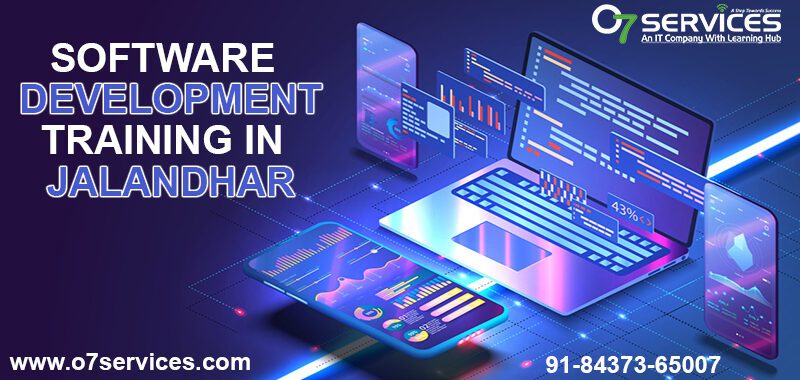
Software Development Training in Jalandhar In this technologically advanced world, software development skills are in high demand. Suppose you’re seeking top-quality software development training in Jalandhar and are on the right track to enhance your professional prospects. In this post, we’ll discuss the advantages of enrolling at an established software development institute in Jalandhar and how it can provide you with the expertise necessary to succeed in this fast-paced field. Software Development Training Institute Your Path to Success, the best software development training institution within Jalandhar, is essential to acquire the skills required to be successful in the market. These institutions offer extensive courses that cover a variety of programming languages, methodologies for software development, and tools. If you enroll in an accredited institution, you will be able to build the foundation for software development and remain ahead of the pack. Software Development Training Near Me Accessibility and convenience The ability to locate a software development training institution near me is advantageous since it offers accessibility and convenience. Jalandhar provides a number of training institutions that are within close proximity, which saves you time and effort when you commute. The proximity lets you fully engage into the program without the stress of long distance travel. Benefits of Software Development Training Complete Curriculum: Trustworthy training centres in Jalandhar provide a structured and well-structured course that covers the basics that are required for software development. You’ll be taught the programming language, engineering fundamentals databases, software engineering, and much more. Experience in the hands: Practical application is crucial to mastering the art of software development. Training centres offer hands-on activities as well as projects and cases that enable users to put their knowledge into practice and create real-world applications. Employer-Related skills: The training programs are designed to provide you with the knowledge and experience sought-after by employers. You’ll be taught about the most recent techniques frameworks, methods, and frameworks that are used in the field of software development. Expert Faculty: One of the best training institutions in Jalandhar has faculty members with years of experience with industry experience and know-how. They offer guidance, mentoring and invaluable knowledge throughout your journey to learn. Networking Opportunities: Training institutes often provide a thriving community of students. By interacting with other students, you can expand your professional circle, collaborate on projects with others, and learn through their experiences. Conclusion Insisting on software development training in Jalandhar is a smart choice for anyone who wants to succeed in their field. With the abundance of highly regarded training institutions you can learn the knowledge and skills needed to be a successful software developer. Pick a school close to you that provides a full program, practical experience an experienced faculty and numerous opportunities for networking. When you master your skills in developing software will open the door to exciting opportunities for career advancement in this fast-growing sector.

Are you seeking to improve your skills as a designer? It would help if you considered enrolling in the best Coreldraw Training course in Jalandhar. The training course will provide hands-on experience and expert advice to assist you in mastering the software and increasing your drawing skills. Take the chance to take your design skills to higher levels. Join now! What is Coreldraw? Coreldraw is a well-known vector graphics editor created and sold through Corel Corporation. It is extensively employed by graphic illustrators, designers, and artists to design unique designs, illustrations, and layouts. Coreldraw provides various functions and options that enable users to design and modify vector graphics, edit text, apply special effects, and many more. Whether you’re a beginner or a seasoned designer, Coreldraw will help you bring your ideas for creative expression to reality. Benefits of a Coreldraw Training course in Jalandhar A Coreldraw-related training course could benefit those looking to develop their skills in design. First, it provides practical experience using the program, allowing students to learn about its features and tools. The practical experience can significantly increase their effectiveness and efficiency when working on designs. A training course offers expert advice from knowledgeable instructors who provide helpful strategies and tips for using Coreldraw efficiently. Participants can be taught industry-leading techniques and gain insight into the most recent trends in design. Furthermore, a training program will allow individuals to create a solid portfolio showing their skills in Coreldraw and can help advance their careers or freelance opportunities. In the end, the Coreldraw training program can improve one’s skills in design and provide new possibilities in the industry. Experience hands-on and expert assistance. The best Coreldraw course offered in Jalandhar lets participants gain practical experience and receive expert advice. Participants will improve their abilities through assignments and projects and become proficient in using the program. The skilled instructors offer helpful tips and insights that help students use Coreldraw’s features and tools. Take advantage of the best Coreldraw drawing course in Jalandhar now and improve your design abilities by gaining hands-on experience and expert advice. Sign up today to develop your design abilities. If you’re looking to increase your skills in design, There’s no better moment to join the best Coreldraw course offered in Jalandhar. The course lets participants get hands-on experience and expert advice from skilled instructors. If you’re beginning or familiar with Coreldraw, the course will allow you to build your abilities and become proficient in using the program. Top Coreldraw training course in Jalandhar Look at it if you’re searching for the most effective Coreldraw training in Jalandhar. Our top-rated course provides extensive instruction and hands-on training to aid you in mastering Coreldraw. No matter if you’re new or are familiar with the program, our skilled instructors will be there to guide you through each step of the process. Through practical exercises and projects, they will help you learn how to utilize CorelDRAW’s features and tools effectively.

Join the Best Photoshop Course Training in Jalandhar Join the top Photoshop course training in Jalandhar and discover how to become proficient in this amazing and effective software. If you’re starting or an experienced designer, this course will meet your needs and guide you to become a Photoshop expert. Through hands-on instruction along with expert guidance and comprehensive instruction covering everything from the fundamentals of photo edits to more advanced strategies that ensure your work stands out. Our highly skilled instructors will show you the art of trade and offer valuable insight into digital art. Take advantage of this chance to enhance your skills and access exciting job opportunities. Join the top programs. Photoshop course training in Jalandhar Today, let your imagination fly! Why should you learn Photoshop? Photoshop can let you improve and alter photos, and it also allows you to design stunning images and designs by starting from scratch. With its extensive range of tools and functions, Photoshop provides endless possibilities for creativity. If you learn Photoshop, you can bring your creativity into reality and design stunning designs that create lasting impressions. Benefits of joining a Photoshop course training Although you can learn Photoshop via online tutorials or self-study, enrolling in a Photoshop course training will provide many advantages. For one, a well-organized course will help you master Photoshop efficiently, starting with the basics before moving to advanced techniques. This will allow you to build solid foundations and comprehend the program comprehensively. Furthermore, the Photoshop course can provide an expert guide and constructive feedback. Expert trainers and teaching methodology The effectiveness of the Photoshop course depends largely on the expertise of the instructors. In Jalandhar, you’ll find schools with a staff of experienced trainers who are knowledgeable about Photoshop and have a long history of experience in the industry. They are passionate about teaching and dedicated to helping you achieve your goals. They are knowledgeable about the program and its use in various industries and are up-to-date with the latest methods and trends. Overview of Photoshop training in Jalandhar You’re fortunate if you’re in Jalandhar or nearby areas! Jalandhar is the home of the top Photoshop Training in Jalandhar. These institutions offer comprehensive courses covering every aspect of Photoshop, from basic photo editing to advanced techniques for graphic design. The classes are designed to cater to students of all levels, from beginner to advanced, just beginning your journey, or a seasoned designer looking to improve your abilities. How to enroll in the Photoshop course training in Jalandhar Participating in the top Adobe Photoshop course in Jalandhar is simple. Visit the institution’s official website you’d like to join, and then go into the Photoshop course section. There you will find all the details about the course, including the course’s duration, curriculum, and costs. Many institutes have multiple batches that allow you to pick an appropriate time slot. Your availability. After choosing an option, you’ll need to submit the enrollment form and make the required payment. Some institutions might require basic information about yourself and your academic qualifications. Conclusion and next steps Finally, registering for the top Photoshop course in Jalandhar is the ideal method to boost your graphic design abilities to new levels. Whether you’re starting or a seasoned designer, this course will arm students with the necessary knowledge and abilities to create amazing artwork and designs. Through a thorough course, experienced instructors, practical exercises and examples from the real world, You’ll develop a thorough knowledge of Photoshop and its use across various fields. The career and job opportunities following the program’s completion are numerous, givings you the freedom to pursue a career path that matches your passions and goals. Why wait? Take advantage of the top Photoshop course in Jalandhar today and start your path to becoming a Photoshop expert. Let your imagination soar and unleash your full potential!…
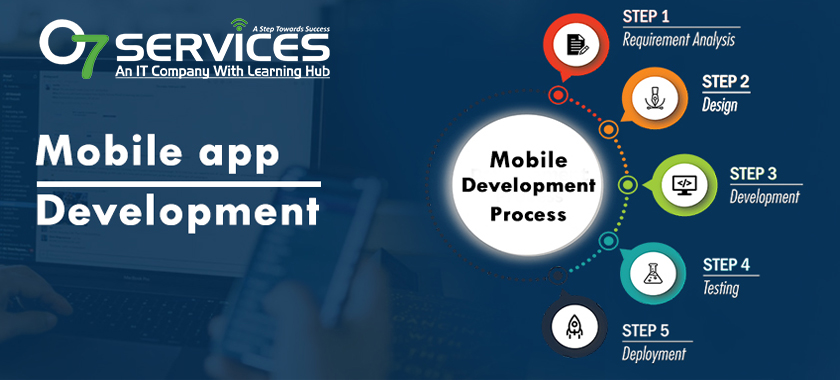
Best App Development Course in India In today’s fast-growing digital world, mobile applications are an integral element of our lives, changing how we interact and share information. With the booming tech industry, India has witnessed a rise in the demand for experienced app developers, resulting in various courses for app development specifically designed for beginners. Let’s look at the top Mobile App Development Course in India that are ideal for developers new to the field. Importance of Mobile App Development Course in India The Mobile App Development Course is crucial to the digital transformation of India and its economic expansion. With a large number of smartphone users and an increasing Internet penetration mobile apps have become the main mode of communication, commerce as well and entertainment to millions of Indians. Businesses use mobile apps to connect with a wider population, increase customer engagement and reduce the time it takes to complete. Additionally, this administration’s Digital India initiative has further intensified the need for new mobile solutions that improve the governance of services and improve service delivery. In this regard, the mobile app development classes are of great importance because they provide the workforce with the knowledge needed to meet the ever-growing needs of the app market. Benefits of Learning Mobile App Development Course in India The development of mobile apps offers numerous benefits to individuals who reside in India. In the first place, it offers lucrative job opportunities in an industry that is rapidly growing. Highly skilled app developers are highly sought-after, allowing them to earn attractive salaries and explore a variety of options for careers, whether in established businesses or by launching their own. The development of apps for mobile is an innovative and creative field, allowing developers to realise their ideas. From creating user-friendly interfaces to implementing the latest features, developers can use their imagination to affect the lives of users positively. Furthermore, the versatility of mobile application development lets professionals work remotely, leading to greater work-life balance, particularly during the COVID-19 epidemic, where remote work has become more frequent. The Growing Demand for Mobile App Developers in India The demand for mobile application designers in India is increasing steadily due to a variety of reasons. First, India has one of the biggest users of smartphones in the world with millions of users relying on mobile apps to serve various motives. The growing number of users creates an ever-growing need for talented developers who can develop seamless and feature-rich applications that meet the needs of a variety of users. In addition, the transformation to digital businesses has accelerated the need in app developers. Companies are embracing strategies for digital transformation to stay in the race, which means they are looking for app developers who can design customized solutions that meet particular business needs. Additionally, India’s vibrant startup community has fuelled the demand for mobile application developers. Since startups are focusing on mobile-first strategies, app developers help transform new ideas into practical and adaptable applications, which contributes to the expansion of the startup ecosystem. Conclusion Mobile app development Course in India the engine behind technological development and economic expansion. Finding the right app development program is crucial for anyone who wants to start in the fast-growing sector. These courses will teach you technical expertise and open the door to many opportunities and possibilities.

Best (SEO) search engine optimization Company in Jalandhar Welcome to the virtual advertising world Every enterprise attempts to be extra distinguished on the seek engine end result webpages (SERPs) and growth site visitors to their sites. For which you require the pinnacle search engine optimization organization to help you. If you’re in Jalandhar you will be considering which search engine optimization enterprise is the most one on your organization’s necessities. Don’t appearance any further and we can gift to you the pleasant Best SEO Company in Jalandhar that could bring your on line presence to the following step. With their professional team of specialists, the today’s techniques and equipment, as well as a the song report of presenting exceptional effects the search engine marketing employer sticks out the relaxation of the %. If you’re looking to boom the visibility of your website, growth the quantity of organic visitors you get hold of or boom the conversion rate of your website, this SEO company has the answer. So, without greater delay let’s get deep into seo and find out about the top fine Best SEO Company in Jalandhar. Services provided by way of the great SEO agencies in Jalandhar If you’ve discovered approximately some of the quality search engine marketing companies in Jalandhar Let’s look at their offerings.s. Optimization on-web page On-page optimization is the manner of optimizing your website’s shape, content material and HTML to make certain it’s miles seek engine friendly. This approach optimizing your titles tags and Meta descriptions, header tags and alt tags for images. Link to build Link building is the method of obtaining great back-links from other websites to increase your website’s credibility and authority. This can encompass Outreach, Guest blogging or listing registrations. Creation of content Content introduction is the manner of making splendid, relevant, and fascinating content material that draws and keeps your audience in thoughts. This can include articles, weblog posts statistics snap shots, motion pictures, and data graphics. Analytics Analytics is the procedure of reading and monitoring your internet site’s rankings, visitors, and conversions in order to compare the performance and effectiveness of the search engine optimization marketing campaign. This entails the setup and analysis of information in equipment consisting of Google Analytics and Google Search Console. The advantages that search engine optimization can bring on your enterprise Making the investment in search engine marketing will provide a large variety of advantages in your enterprise, such as: Increased seek engine ratings SEO can help your site get better scores on seek engine end result pages (SERPs) that can increase the visibility of your web site on line, and also attracting more site visitors on your web site. More visitors to web sites By enhancing the search engine ratings of your website and visibility on the net, search engine marketing can help you growth site visitors to your website. Higher conversion prices By the usage of the ideal keywords and optimising your web site’s records, SEO permit you to get greater leads which can be certified and turn them into clients. Improved consumer enjoy search engine optimization refers to optimizing your web page’s shape and content material to provide an advanced person revel in for your website’s visitors. More brand popularity In addition to improving your on-line visibility and ratings on serps, SEO allow you to create extra logo awareness and credibility. Common SEO mistakes to avoid Here are some not unusual search engine optimization errors to be aware about: Keyword stuffing Don’t overflow your web page’s contents with unrelated or inappropriate keywords. Concentrate on producing best, relevant, and tasty content that offers the excellent value in your customers. Backlinks which can be low-satisfactory Avoid obtaining spammy or low-first-class one-way links from websites that aren’t applicable or of low-authority. Concentrate on getting satisfactory oneway links that are applicable and respectable resources. Over-optimization Do now not over-optimize your website’s shape or content till it’s miles unnatural or untrusted. Make sure you create an attractive and person-friendly web site that is treasured for your clients. Search engine optimization Course in Jalandhar: Empowering You with SEO Knowledge If you would prefer handling SEO on your personal, reflect onconsideration on taking an search engine marketing direction in Jalandhar. The courses will equip you with a broad information and sensible capabilities to effectively use search engine marketing strategies. With search engine optimization understanding, you may be able to control your web site’s optimization and achieve better effects. SEO Service Jalandhar: Tailored Solutions for Your Business Proficient search engine optimization Services in Jalandhar provide custom answers which are in keeping with your enterprise’s desires and your target market. They behavior thorough audits of websites along with key-word research, and competitor evaluation to layout an individualized SEO plan in your company. In information the particular requirements of your business They make certain that each element of your search engine marketing campaign is in step with your desires. goals. Choose the Right Best SEO Company in Jalandhar : Factors to Consider Reputable best SEO Company in Jalandhar employ a complete method to optimize, which incorporates each off-web page and on-page search engine optimization techniques. They enhance your internet site’s structure and content, meta tags and URLs in order to ensure that it is seek engine friendly. In addition, they give attention to developing top notch links as well as optimizing neighborhood listings and improving your site’s consumer enjoy to enhance seek engine rankings and boom visibility. Conclusion: Making the funding in pinnacle-quality SEO offerings from Jalandhar is a clever choice for businesses looking to increase their on line visibility and natural site visitors. It doesn’t be counted if you paintings with a reputable SEO organization or take an search engine marketing-associated direction to improve your talents, the maximum critical factor is to apply search engine optimization techniques that are in step with the desires of your business. When you do this you could enhance your website’s rank, draw the attention of a selected target audience and
Web Development Best Courses in Jalandhar Are you ready to take your web development skills to the next level? Whether you’re a beginner looking to learn the basics or an experienced developer wanting to expand your knowledge, online courses are a fantastic way to unlock your full potential. With the ever-evolving digital landscape, staying up-to-date with the latest technologies and trends is crucial. But with so many options out there, it can be overwhelming to choose the right courses that will truly advance your skills. The Importance of Advancing Web Development Skills In today’s digital age, web development best courses are in high demand. As businesses strive to establish a strong online presence, the need for skilled web developers continues to grow. Advancing your web development skills not only opens up new career opportunities but also allows you to stay ahead of the curve in this rapidly evolving industry. By continuously honing your web development skills, you can create more functional and visually appealing websites and applications. This, in turn, enhances the user experience and increases customer engagement. Additionally, having a strong skill set in web development allows you to take on more challenging projects and deliver innovative solutions that set you apart from the competition. Benefits of Online Courses for Web Development Online courses have revolutionized the way we learn, and web development is no exception. There are numerous benefits to taking online courses to advance your web development skills: 1. Flexibility: Online courses offer the flexibility to learn at your own pace and on your own schedule. Whether you have a full-time job or other commitments, you can fit in your learning around your existing schedule. 2. Cost-effective: Online courses are often more affordable than traditional in-person courses. There are also many free online resources available that can help you acquire new skills without breaking the bank. 3. Access to industry experts: Many online courses are taught by industry professionals who have years of experience in web development. This gives you the opportunity to learn from the best and gain insights into the latest trends and best practices. 4. Interactive learning: Online courses often include interactive elements such as quizzes, assignments, and discussion forums. This allows you to apply what you’ve learned and receive feedback from instructors and peers, enhancing your understanding and retention of the material. Front-end Web Development Courses in Jalandhar Front-end web development focuses on the visual and interactive elements of a website or application. If you’re interested in creating stunning user interfaces and engaging user experiences, these front-end web development courses are perfect for you: 1. HTML and CSS: These foundational courses teach you the building blocks of web development – HTML and CSS. You’ll learn how to structure web pages and style them to create visually appealing designs. 2. JavaScript: JavaScript is a powerful programming language that adds interactivity and dynamic functionality to websites. Take a JavaScript course to learn how to create interactive elements, handle user input, and manipulate web page content. 3. Front-end Frameworks: Frameworks like React, Angular, and Vue.js are widely used in front-end development. These courses will teach you how to build complex web applications using these popular frameworks. By mastering front-end web development, you’ll be able to create visually stunning websites and applications that provide an exceptional user experience. Back-end Web Development Courses in Jalandhar While front-end development focuses on the client-side of a website or application, back-end development handles the server-side logic and database management. If you’re interested in building the behind-the-scenes functionality of websites and applications, these back-end web development courses are for you: 1. Server-side Programming Languages: Courses that cover languages like Python, Ruby, or PHP will teach you how to write server-side code that handles data processing, database management, and server-client communication. 2. Database Management: Understanding how to design and manage databases is crucial for back-end web development. Take a course on SQL or NoSQL databases to learn how to store and retrieve data efficiently. 3. API Development: APIs (Application Programming Interfaces) allow different software applications to communicate with each other. Learn how to design and implement APIs to enable seamless integration between various components of a web application. By mastering back-end web development, you’ll be equipped with the skills to build robust and scalable web applications that handle complex business logic. Full-stack Web Development Courses If you aspire to be a well-rounded web developer who can handle both front-end and back-end development, full-stack web development courses are the way to go. These courses provide a comprehensive overview of both front-end and back-end technologies, allowing you to build end-to-end web applications: 1. Full-stack JavaScript: Full-stack JavaScript courses teach you how to use JavaScript for both front-end and back-end development. You’ll learn how to build complete web applications using JavaScript frameworks like Node.js and Express.js. 2. MEAN/MERN Stack: MEAN (MongoDB, Express.js, Angular, Node.js) and MERN (MongoDB, Express.js, React, Node.js) are popular full-stack JavaScript frameworks. Take a course on these stacks to learn how to build powerful web applications from start to finish. By becoming a full-stack web developer, you’ll have the versatility to work on all aspects of a web application, making you a valuable asset to any development team. Specialized Web Development Courses In addition to the core front-end and back-end technologies, there are specialized areas of web development that you may be interested in exploring: 1. UX/UI Design: User experience (UX) and user interface (UI) design are crucial for creating intuitive and visually appealing websites. Take a course on UX/UI design to learn how to design user-centered interfaces that optimize the user experience. 2. Mobile App Development: Mobile apps are becoming increasingly popular, and knowing how to develop them can give you a competitive edge. Take a course on mobile app development to learn how to build native or hybrid mobile apps using frameworks like React Native or Flutter. By specializing in these areas, you can expand your skill set and cater to specific client needs, making you a sought-after web
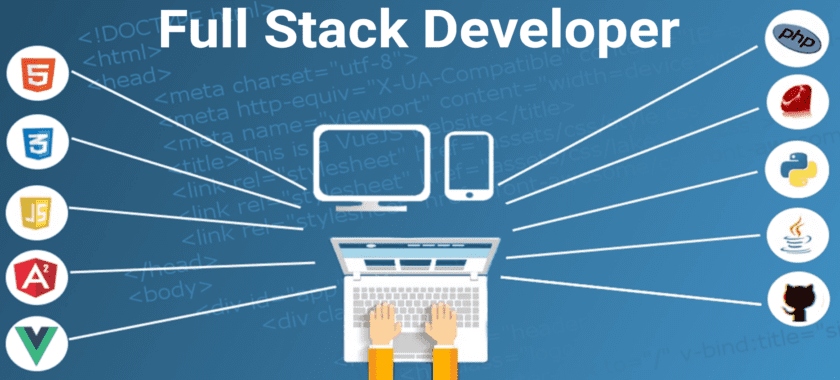
Full Stack Developer Course Near Me Full Stack Developer Course Near Me. If you’re interested in becoming a full-stack developer, you may be wondering where you can find a course near you. Luckily, there are many options available that can provide you with the necessary skills and knowledge to excel in this field. Whether you prefer in-person classes or online learning, there are courses designed to meet your needs and help you become a successful full-stack developer. Look for courses that offer hands-on projects and real-world experience. When searching for a full stack developer course, it’s important to look for ones that offer hands-on projects and real-world experience. This will allow you to apply the skills you learn in a practical setting and gain valuable experience that will benefit you in your future career. Look for courses that provide opportunities to work on real projects, collaborate with other students, and receive feedback from industry professionals. This hands-on experience will not only enhance your learning but also make you more marketable to potential employers. Full Stack Developer Training Near Me In addition to hands-on projects, it’s also beneficial to look for courses that offer real-world experience. This can include internships, apprenticeships, or opportunities to work on projects for actual clients. By working on real-world projects, you’ll gain valuable experience and build a portfolio that showcases your skills to potential employers. Look for courses that have partnerships with companies or organizations that can provide these opportunities. This real-world experience will not only give you a taste of what it’s like to work as a full stack developer but also make you more attractive to employers when you’re ready to enter the job market. Finding a full stack developer course that offers hands-on projects and real-world experience is crucial for your learning and future career. Look for courses that provide opportunities to work on real projects, collaborate with other students, and receive feedback from industry professionals. This practical experience will not only enhance your learning but also make you more marketable to potential employers. What is a full stack developer? A full-stack developer is a versatile professional who possesses the skills and knowledge to handle both front-end and back-end development. They are proficient in a wide range of programming languages, frameworks, and tools, allowing them to create fully functional web applications from scratch. Unlike specialized developers who focus on either front-end or back-end development. Skills required to become a full stack developer Becoming a full stack developer requires a diverse set of skills that encompass both front-end and back-end development. Here are some of the key skills you should acquire to excel in this field. 1. HTML, CSS, and JavaScript: These are the building blocks of web development. HTML provides the structure of web pages, CSS controls the visual appearance, and JavaScript adds interactivity and functionality. 2. Server-side programming languages: Familiarize yourself with at least one server-side language such as Python, Ruby, or PHP. These languages allow you to handle data processing, server-side logic, and database interactions. 3. Databases and SQL: Understand how databases work and learn SQL (Structured Query Language) to manipulate and retrieve data. Familiarize yourself with popular database management systems like MySQL, PostgreSQL, or MongoDB. 4. Version control: Proficiency in using version control systems like Git is essential for collaboration and code management. Learn how to create branches, merge changes, and resolve conflicts. 5. Frameworks and libraries: Explore popular frameworks and libraries such as React, Angular, or Node.js. These tools can greatly enhance your development process and productivity. 6. Problem-solving and debugging: Develop your problem-solving skills and learn effective debugging techniques. Being able to identify and fix issues quickly is crucial for a smooth development process. Full stack developer job market and salary potential The job market for full stack developers is thriving, with a high demand for professionals who possess both front-end and back-end development skills. Companies of all sizes, from startups to large enterprises, are seeking full stack developers to streamline their development process and create innovative web applications. The salary potential for full stack developers is also promising. According to Glassdoor, the average salary for a full stack developer in the United States is around $110,000 per year. With experience and expertise, this figure can increase significantly, making full stack development a lucrative career choice.
— Corporate Training Program 6 Weeks Industrial Training in Jalandhar We are providing best 6 weeks industrial training in jalandhar. Our trainers are having more than 15 years of experience. Our students are well placed in various companies. We also provide 3 months/6 Weeks Summer industrial training to B.Tech (all branches), Polytechnic Diploma, IT/MCA/BCA/DCA, and MBA students. Our Commitment to Your Success: 6 weeks industrial training is a vital period for students to gain knowledge about the field in which they want to make their career. It’s important for them to take this period seriously as it will help them in getting the right job. Industrial Training helps students in gaining knowledge about the technical and logical working of the chosen field. They get an overview of the real world industry scenario and how things work in the company. They learn to apply the theoretical concepts they learned in their degree course to the workplace. For any queries regarding registration or training, you may contact at: +91-84373-65007, 0181-5015007 There are many reasons why you should consider joining an Industrial Training Course. The following are some of them: Practical Knowledge This course provides you with practical skills that are essential for you to learn and understand any subject in depth. Usually, when a person reads a text, only words create a visualization. However, in the case of industrial training, you will be able to see, touch, and feel how things are done. In this six weeks training, you will get the opportunity to apply your theoretical knowledge in a real-world context. This is why it is so important to acquire the right training for you. One of the primary reasons why industrial training is so important is that it gives you an understanding of the industry environment. In addition, it will also help you decide what you want to do with your life. There are many advantages to taking a 6 weeks industrial training course. For starters, you will learn new technologies that are booming the market. You will be able to learn about the latest trends in technology. You will have a chance to work on live projects and get job placement support. Here are some steps you can take to find and make the most of a 6-weeks industrial training opportunity: 1. Identify your field of interest: Determine the industry or field you want to gain experience in. This could be related to your academic studies or a field you wish to explore further. 2. Research organizations and companies: Look for organizations, companies, or institutes that offer industrial training programs in your chosen field. You can search online, check job portals, contact local companies, or get recommendations from your academic institution. 3. Check eligibility requirements: Review the eligibility criteria for the industrial training programs you’re interested in. Some programs may require specific academic qualifications or prerequisites. 4. Prepare your application: Once you’ve identified a few suitable programs, prepare your application materials. This typically includes a cover letter, resume or CV, and any additional documents or certificates they may require. 5. Submit your application: Send your application to the organizations offering the industrial training programs. Follow their application instructions carefully and meet the deadlines. 6. Prepare for interviews: If your application is shortlisted, you may be called for an interview. Research common interview questions and prepare your responses. Be ready to highlight your skills, knowledge, and enthusiasm for the field. 7. Make the most of the training period: Once you secure a position in an industrial training program, treat it as a valuable opportunity to learn and gain practical experience. Be punctual, attentive, and proactive during your training. Ask questions, seek guidance from experienced professionals, and take on tasks with enthusiasm. 8. Network and build connections: Use this training period to build your professional network. Interact with colleagues, supervisors, and industry professionals. Attend any workshops, seminars, or events that may be organized during your training. Networking can be valuable for future job opportunities or references. 9. Learn from the experience: Reflect on your training experience and identify areas where you have grown and skills you have acquired. Take note of any challenges you faced and how you overcame them. This reflection will help you articulate your experience during future job interviews.
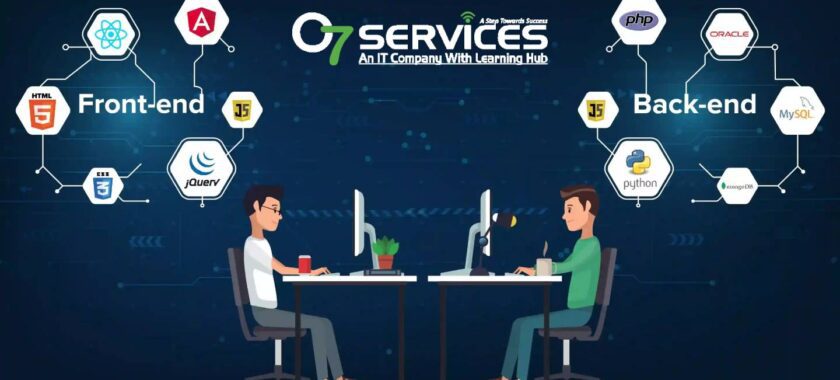
Best Web Development Training Institute in Jalandhar If you’re considering a career in web development, you’ll need to learn how to design and build websites. But finding the best web development training institute in jalandhar can be challenging. This article will provide you with some helpful tips to help you find the right web development training academy for you. The first thing you’ll need to do is look for an online web development course. You can find many different courses available, and each one offers its own benefits and unique features. For example, some web development courses are designed to teach you how to code HTML, while others are more focused on designing a website. The best thing to do is research each course and decide which one is right for you. Digital Marketing Course Digital marketing is an important skill that can help you grow your business. But, it’s also a lot of work. If you don’t have the time to do it yourself, you can hire a professional digital marketing agency in jalandhar. But, before you hire someone, make sure you understand the importance of this job. Then, you can be sure you’re hiring the best person for the job. O7 Services Institute is a digital marketing institute in jalandhar that has more than 15 years of education experience and provides specialist courses in digital formats. Their training includes the latest skills and trends in digital marketing. They offer a six-month digital marketing course that includes Case Studies and Live Projects, and a 100% certification guarantee. The course covers Digital Marketing Fundamentals, youtube, email marketing, search engine optimisation (SEO), ad campaigning, and affiliate marketing and AdSense. It Training Company in Jalandhar O7 Services is a top-rated IT training company that specializes in providing high-quality training for college students and IT professionals. The institute’s course offerings include a wide range of IT-related courses, including Java Full Stack, PHP & MySQL, and AngularJS & React. The program also includes an internship opportunity. O7 Services Institute of Internet Marketing is a popular digital marketing training institute in Jalandhar. Their courses are designed to help students, first-year students, and business owners better understand the concept of digital marketing. They also offer a 6-month internship training program to help students get started in the industry. The PIIM course is a great option for beginners and teaches you the basics of digital marketing. Then, you can take on a more advanced course to learn how to use tools such as Google Analytics and Adwords. The PIIM instructors are experienced and certified, and they’ve helped more than 2000 students gain certification in the field. They’ve also referred more than 1350 students to MNCs. PIIM also offers a variety of short-term courses, including software development, hardware and networking and web design.

Welcome to O7 Services O7 Services best Computer Institute in Jalandhar stands out as the premier computer institute, boasting more than 15+ years of experience and ISO 9001 certification. Offering computer courses from elementary through advanced levels using responsible and innovative teaching methods. Since 2000, we have instructed students on how to best use computers. Our Institute is widely known for providing scholars and working professionals alike with education in web design and development, mobile development graphics design programming networking. Led by an accomplished professional who oversees various instructors and coaches with relevant subject expertise our Institute is known for offering unparalleled instruction in PHP web design as well as many other fields. Best Computer Institute in Jalandhar O7 Services best Computer Institute in Jalandhar stands out as the premier computer institute, boasting more than 15+ years of experience and ISO 9001 certification. Offering computer courses from elementary through advanced levels using responsible and innovative teaching methods. Since 2000, we have instructed students on how to best use computers. Our Institute is widely known for providing scholars and working professionals alike with education in web design and development, mobile development graphics design programming networking. Led by an accomplished professional who oversees various instructors and coaches with relevant subject expertise our Institute is known for offering unparalleled instruction in PHP web design as well as many other fields. Best Computer Training Institute in Jalandhar O7 Service Computer Education Institute stands out as an outstanding training centre in Jalandhar for anyone interested in computer classes. Offering top-quality education at extremely reasonable costs for both pastoral and urban regions of the country. This Institute has experienced rapid expansion both domestically and abroad due to their growing reputation. What sets this institution apart from others is being fully authorized by the government and ISO 90012015 certified. The best Computer Training Institutes for IT Professionals Selecting an institute to prepare you for PTE is key to achieving the best scores possible on this exam. Knowledge Icon in Punjab provides similar PTE Center with an effective education system that can help you pass this exam without issue. The importance of computer-related courses Computer courses and classes occupy a vital place in today’s digital world. Computer classes give students the skills and knowledge to navigate this digital sphere successfully, providing an edge when entering any industry or job market. Students, entrepreneurs and professionals who wish to enhance their careers and remain competitive need these classes as a necessary component. What is Computer Basic Course Our 6 month computer training program is carefully crafted to equip students with all of the skills and understanding required for computing success. In just six months, you’ll become adept in various programming languages, software Data analysis, data processing techniques, as well as more complex topics like network security analysis. 6 Month Computer Diploma Certificate: As soon as you complete a 6-Month Computer Diploma Certificate program, a prestigious parchment will be awarded as proof of your commitment and dedication in computer sciences – setting yourself apart in an increasingly crowded job market. Grab this opportunity to become a better person today and tomorrow! Don’t miss your chance at career advancement by enrolling in our 6 month Diploma Certificate computer course, improving your chops with parchment instruments, and opening doors to endless opportunities! Sign up today and begin the journey towards tech expertise. Provide the Highest Quality Work Reason to choose us Why Choose Us? We have experienced trainers. We will get live projects based on work and personality development classes also. We have a good infrastructure with well-furnished labs. We Provide Free Demo Classes Online/ Offline Classes Choose Batch Timing as Preferred Lecture by Industry Experts
Full Stack Developer Course Training in Jalandhar Full Stack Developer Course training in Jalandhar. We offer a responsive web design course that teaches how to create websites that look good on both the Desktop and mobile screen. Responsive Web Design is what it’s called. We should automatically adjust the content of responsive website design to fit the screen size. We are the oldest full stack Developer Training institute in Jalandhar and provide 100% job assistance to all our students. Web developers must be experts in all aspects of website development. This includes designing a site, programming a site and database knowledge. The developer must learn several technologies and combine them. We offer a full-stack development course at O7 Services in Jalandhar. Benifits Of Learning Full Stack Development The demand for full stack developers will grow rapidly with time and experience. The future and demand for Full Stack Developer will increase with time. A Full Stack developer will receive some benefits. Opportunities Career Growth Huge Demand & Steady Growth Adaptability Why From O7 Services in Jalandhar O7 Services Jalandhar has been a well-respected computer training institution in Jalandhar for many years. Our students have given us a 5 star rating on Google & Facebook. We have been in the computer training field for over 15 years. We have trained thousands of students who are now working in MNCs such as – ( TCS WIPRO, Microsoft Infosys Dell etc. ) They earn a package between 5 Lacs and 10 Lacs per year. Some have settled abroad, while others started their own business in Chandigarh or Mohali. Our main motto is student satisfaction. Our main goal is to ensure that our students are satisfied, not just to make money. We at O7 Services provide our students with a practical-based training so that they can be successful in life. Full Stack Development Course At O7 Services Full Stack development course includes both the front and back ends of a website. Students who want to learn about both web design and web development can enroll in Full Stack Development. The demand for full stack developers is growing rapidly in the current market. 100% Practical Training + Live Project + Certification + Job Call: +91-84373-65007, 0181-5015007 Duration Of Course 6 Months WEB DESIGNINIG Learn more WEB DEVELOPMENT Learn more
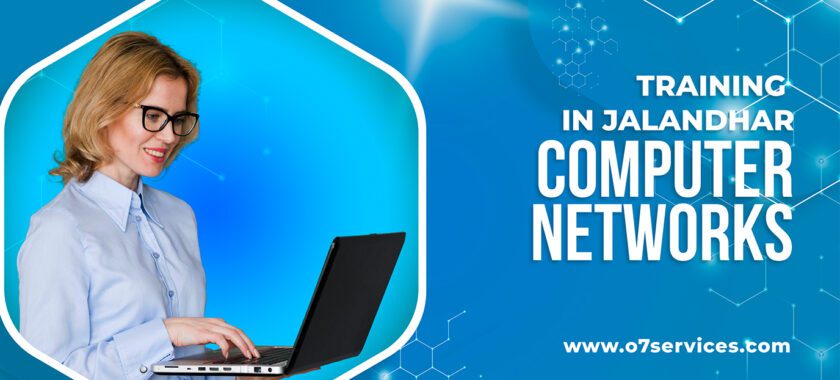
Best Computer Networking Training in Jalandhar Best Computer Networking Training in Jalandhar. Computer networking is an essential skill in today’s digitally-connected world. It can lead to many exciting career options. Computer networking is a skill that can be useful to anyone, whether you are a student or working professional. It will also help you keep up with the constantly changing technology landscape. Computer networking training institute is becoming increasingly popular in Jalandhar. Learning the basics of networking will not only improve your technical skills, but also help you build strong relationships with other professionals. We’ll examine the benefits of best networking training in Jalandhar, and how you can achieve your professional and personal goals. Read on to learn how computer networking can help you advance your career, or stay in the loop. The importance of computer networking training Computer networking is the backbone of modern technology, connecting people, devices, and data across the globe. From email to social media, from e-commerce to online banking, almost every aspect of our daily lives depends on computer networks. That’s why it’s critical to have a strong understanding of networking concepts and protocols, such as TCP/IP, DNS, DHCP, and VPN, to name a few. By mastering these fundamentals, you can troubleshoot network issues, optimize network performance, and design secure and scalable networks that meet the needs of your organization or clients. Moreover, computer networking training can help you develop valuable soft skills, such as communication, collaboration, and problem-solving, which are essential for success in any field. Computer networking training can offer a variety of benefits to help you achieve your goals and advance in your career. Here are the top benefits of investing in computer network training: 1. Better Career Prospects According to the U.S. Bureau of Labor Statistics, computer networking is among the fastest-growing IT fields, with an estimated growth rate of 6 percent from 2019 to 2029. The demand for network engineers, architects, administrators, security specialists, who can design and deploy complex networks, in various sectors such as government, healthcare, finance and education, is driving this growth. You can become a highly-sought professional by acquiring the necessary skills and certifications. This will increase your earning potential and job security. 2. Enhanced Technical Skills Computer networking courses can help you gain a deeper understanding of concepts, protocols and technologies such as wireless networking, virtualization, security and network. You will learn how to configure devices for networks, troubleshoot issues with networks, and optimize performance of the network using various tools. You’ll also gain practical experience through real-world simulations and projects. This will allow you to develop confidence and expertise. 3. Stronger professional network The computer networking course is a great way to meet other professionals, including instructors, students, and alumni. You can exchange knowledge and ideas with other professionals in the industry by networking. This will help you to advance your career. You will also gain access to online forums, communities and events where you can showcase your achievements, learn from industry professionals and stay current with the latest trends. 4. Earning potential is increased Computer networking professionals have the highest salaries in the IT sector. Their average salary ranges from INR 3-10 Lakhs per year, depending on their level of expertise, location and specialization. You can improve your earning potential by acquiring the necessary certifications and skills. This will also help you negotiate better compensation packages from your current and future employers. Some of the most sought-after networking certifications are CCNA, CCNP CCIE CompTIA Network+ and Juniper Networks Certified Associate JNCIA. The importance of networking certifications Certifications in networking are an important part of training for computer networking, since they confirm your knowledge and skills. Certifications will help you to stand out among other candidates for a job, show your expertise to potential employers and increase your earning power. Here are the top networking certifications. 1. Cisco Certified Network Associate (CCNA) CCNA certification is a basic entry-level certificate that certifies your knowledge and skill in fundamental networking concepts, including routing, switching and wireless networking. It is a requirement for many Cisco certifications at higher levels and is widely accepted in the industry. 2. Cisco Cerified Network Professional CCNP certification is a intermediate-level certificate that focuses on advanced concepts in networking, including network design, security, troubleshooting and troubleshooting. This certification is for network administrators and engineers who wish to improve their technical skills in networking and to specialize. 3. Juniper Networks Certified Associate (JNCIA) JNCIA certification is vendor neutral and validates your Juniper network and technology knowledge. It covers topics like routing, switching and security. Many employers in networking recognize it. Computer networking courses can lead to a variety of career opportunities Computer networking can lead to many career options in different industries and sectors. The networking industry has many career options. 1. Network Engineer You will be responsible for the design, implementation, and maintenance of computer networks in organizations or for clients. You will work closely with IT professionals to make sure that the network is secure, scalable and meets the needs and requirements of the organization. 2. Network Administrator You will be responsible for maintaining and configuring computer networks including LANs, WANs, and wireless networks. You will ensure that all network devices work correctly and securely, and monitor network traffic. 3. Network Security Specialist As a network specialist, your job will be to protect computer networks against cyber threats such as viruses and malware, hackers and data breaches. You will design and implement policies and procedures for security, monitor network activity to detect suspicious behavior and respond in an emergency.
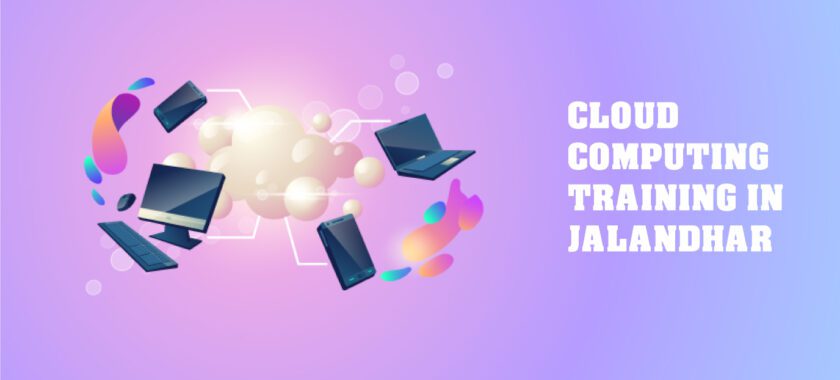
Cloud Computing Training Institute in Jalandhar Cloud Computing Training Institute in Jalandhar: Cloud computing is rapidly transforming the IT industry, and many businesses are shifting their operations to the cloud. This shift has created a high demand for cloud computing professionals who can help organizations migrate their operations to the cloud. If you’re looking to upskill or switch to a career in cloud computing, enrolling in a training institute can be the best decision you make. Jalandhar, a bustling city in Punjab, India, has a wide range of cloud computing training institutes that offer comprehensive courses to help you become a cloud computing expert. In this article, we’ll explore the top five benefits of enrolling in a cloud computing training institute in Jalandhar, and why it’s a smart investment in your career. From gaining practical knowledge to boosting your employability, read on to discover why you should consider enrolling in a cloud computing training in Jalandhar. Understanding the benefits of cloud computing training Institute in Jalandhar Cloud computing is the delivery of computing services, including servers, storage, software, networking, and databases, over the internet. As more businesses move their operations to the cloud, there is a growing demand for professionals who can manage, maintain, and secure these cloud-based systems. Enrolling in a cloud computing training institute can help you develop the necessary skills and knowledge to become a cloud computing expert. Here are the top five benefits of enrolling in a cloud computing training in Jalandhar. Increased job opportunities One of the biggest benefits of enrolling in cloud computing in java training institute is the increased job opportunities that come with it. As more businesses move their operations to the cloud, there is a growing demand for professionals who can manage, maintain, and secure these cloud-based systems. According to a recent report by IDC, the cloud computing market is expected to reach $500 billion by 2023, creating a massive demand for cloud computing professionals. By enrolling in a cloud computing training institute, you can gain the necessary skills and knowledge to take advantage of these job opportunities and advance your career. Higher earning potential Enrolling in a cloud computing training institute can help you increase your earning potential. Cloud computing professionals are in high demand, and as a result, they command high salaries. According to Glassdoor, the average salary for a cloud computing professional in India is INR 10 lakhs per year. By gaining the necessary skills and knowledge through a cloud computing training course, you can increase your earning potential and advance your career. Course offerings and curriculum of a cloud computing training institute in Jalandhar A cloud computing training in Jalandhar should offer a comprehensive curriculum that covers various aspects of cloud computing. This can include courses on cloud infrastructure, platforms, and software services, as well as courses on cloud security, deployment, and management. Additionally, the institute should offer hands-on experience working with cloud-based tools and technologies, such as Amazon Web Services (AWS), Microsoft Azure, and Google Cloud Platform (GCP). Finally, the institute should provide opportunities for students to network with other professionals in the industry, as well as access to the latest research and development in cloud computing. Conclusion and final thoughts Enrolling in cloud computing online courses with certificate can be a smart investment in your career. By gaining the necessary skills and knowledge to become a cloud computing expert, you can increase your job opportunities, improve your skills and knowledge, gain a competitive advantage in the job market, increase your earning potential, and gain access to cutting-edge technology. When choosing a cloud computing training institute, be sure to research the course offerings and curriculum, as well as the reputation of the institute. With the right training and education, you can become a cloud computing expert and advance your career in this rapidly growing field.

Best Digital Marketing Company in Jalandhar O7 Services is a leading digital marketing company in Jalandhar that provides customized solutions for businesses. They provide web content creation, search engine optimization, social media management, pay-per-click advertising, website hosting management, and other related services. They want to boost website visibility, generate leads, and improve results. They tailor their approach to the needs every business, taking into account factors such as brand, target market, and business type. To learn more about their digital marketing solutions, contact them. The Importance of Hiring a Digital Marketing Agency for Your Company Professional digital marketing firms are essential for small businesses to develop high-quality online presences and comprehensive strategies, ensuring survival and customer attraction. They can increase visibility, generate leads, and increase sales while staying within budget. They provide valuable insights and information for marketing strategies, making them the best solution for businesses seeking financial success and online recognition. Services Provided by Jalandhar’s Top Digital Marketing Company Leading digital marketing companies that offer their clients services are well-known in Jalandhar. This digital marketing company is regarded as the best in Jalandhar. The best digital marketing agency in Jalandhar provides a variety of services designed to assist businesses in meeting their marketing objectives. These experts may begin by designing and developing user-friendly websites that are optimized for Google or another major search engine. Costs and packages Packages and prices Pricing and packages are important factors to consider when selecting the best digital marketing agency. A reputable Jalandhar digital marketing company should have clear pricing and strategies that work for all types of businesses. In summary Professional digital marketing firms are crucial for small businesses to create high-quality online presences, strategies, and customer attraction, ensuring survival and sales while staying within budget, providing valuable insights for marketing strategies. Digital Marketing Services in Jalandhar If you’re looking for the best Digital Marketing services in Jalandhar, O7 Services Offers a variety of Digital Marketing Services. The most commonly used digital marketing services are: Web Development Web Designing Facebook ADS SEO Google ADS Youtube Ads Business Promotion SMM

Why Choose a Digital Marketing Course in Jalandhar? Are you looking to boost your career in the field of digital marketing? Then you might want to consider taking a Digital Marketing Course in Jalandhar. Jalandhar, a city located in the state of Punjab, India, has become a hub for digital marketing training due to the increasing demand for digital marketing professionals in the region. With the advent of the internet and the rise of social media, businesses are now looking for skilled digital marketers who can help them reach their target audience and stay ahead of the competition. A digital marketing course in Jalandhar can equip you with the skills and knowledge needed to succeed in this fast-paced industry. From SEO and content writing to social media marketing and analytics, you’ll learn everything you need to know to excel in the world of digital marketing. So why choose a digital marketing course in Jalandhar? Let’s find out. Benefits of taking a digital marketing course in Jalandhar There are many benefits to taking a digital marketing course in Jalandhar. Firstly, you’ll learn the latest digital marketing techniques and strategies that will help you excel in your career. Digital marketing is a rapidly evolving industry, and it’s important to stay up-to-date with the latest trends and technologies. A digital marketing course in Jalandhar will give you the knowledge and skills you need to succeed in this dynamic field. Secondly, the best digital marketing course in Jalandhar can help you stand out from the competition. With so many businesses vying for the attention of consumers online, it’s important to have a strong digital marketing strategy in place. By taking a digital marketing course in Jalandhar, you’ll learn how to create effective marketing campaigns that will help you stand out from the crowd and attract more customers. Finally, a digital marketing course in Jalandhar can help you network with other professionals in the industry. Jalandhar has become a hub for digital marketing training, and you’ll have the opportunity to connect with other professionals in the field. This can lead to job opportunities, partnerships, and other valuable connections that can help you advance your career. Job opportunities in Jalandhar for digital marketers The demand for digital marketers in Jalandhar is on the rise. As more and more businesses shift their focus to online marketing, there is a growing need for skilled digital marketing professionals. Some of the top job opportunities in Jalandhar for digital marketers include: * Digital Marketing Manager * SEO Specialist * Social Media Manager * Content Writer * PPC Specialist * Email Marketing Manager * Web Analytics Specialist These are just a few examples of the many job opportunities available to digital marketers in Jalandhar. With the right skills and training, you can land a high-paying job in this exciting field. Digital marketing skills in high demand in Jalandhar There are several digital marketing skills that are in high demand in Jalandhar. These include: 1. Search Engine Optimization (SEO): SEO is the process of optimizing a website to rank higher in search engine results pages. This is a crucial skill for digital marketers, as it can help drive more traffic to a website and increase online visibility. 2. Social Media Marketing: Social media marketing is the process of using social media platforms like Facebook, Twitter, and Instagram to promote a brand or product. This is a highly effective way to reach a large audience and engage with customers. 3. Content Writing: Content writing involves creating high-quality, engaging content for websites, social media, and other digital channels. This is a crucial skill for digital marketers, as it can help attract and retain customers. 4. PPC Advertising: Pay-per-click (PPC) advertising involves placing ads on search engine results pages or social media platforms and paying each time someone clicks on the ad. This is a highly effective way to drive traffic to a website and increase conversions. 5. Web Analytics: Web analytics involves tracking and analyzing website traffic to gain insights into user behavior. This is a crucial skill for digital marketers, as it can help optimize marketing campaigns and improve ROI. By taking a digital marketing course in Jalandhar, you’ll learn all of these skills and more. Types of digital marketing courses in Jalandhar There are several types of digital marketing courses available in Jalandhar. These include: 1. Certificate Courses: Certificate courses are short-term courses that provide basic knowledge and skills in digital marketing. These courses are ideal for beginners who want to gain foundational knowledge in the field. 2. Diploma Courses: Diploma courses are longer than certificate courses and provide more in-depth knowledge and skills in digital marketing. These courses are ideal for those who want to gain a comprehensive understanding of the field. 3. Degree Courses: Degree courses are full-time courses that provide a deep understanding of digital marketing. These courses are typically offered by universities and colleges and can take several years to complete. How to choose the right digital marketing course in Jalandhar When choosing a digital marketing course in Jalandhar, it’s important to consider several factors. These include: 1. Course Curriculum: Look for a course that covers all the essential digital marketing skills, such as SEO, social media marketing, content writing, and web analytics. 2. Learning Outcomes: Look for a course that provides clear learning outcomes and objectives. This will help you understand what you’ll be able to achieve after completing the course. 3. Faculty: Look for a course that is taught by experienced faculty members who have a deep understanding of digital marketing. 4. Reputation: Look for a course that has a good reputation in the industry and is recognized by employers. 5. Flexibility: Look for a course that offers flexible learning options, such as online courses or part-time courses, to accommodate your schedule. Conclusion: Is a digital marketing course in Jalandhar right for you? If you’re looking to boost your career in the field of digital marketing, then a digital marketing course in Jalandhar

Top Best Web Designing Course in Jalandhar Are You interested in web design as a career path? An online computer web designing course in jalandhar could provide the ideal way to acquire necessary skills and expertise. Various institutes in Jalandhar offer these courses; this guide offers an overview of your options while providing all essential details regarding each. Computer Web Designing Course in Jalandhar O7 Services in Jalandhar is a well-recognized institute for computer web designing courses, providing an all-encompassing course covering every element of web design such as HTML, CSS and JavaScript. Each class is taught by professionals with years of experience in web designing; hands-on instruction is also included as well as practical projects so students gain real world experience through real life examples. With flexible hours and affordable charges – O7 Services makes an excellent starting point for anyone wanting to pursue web design professionally. Importance of Learning Web Designing Course in Jalandhar In today’s digital era, having an online presence for your business is no longer optional – it is necessary. A website serves as a portal and can help expand reach to new markets while increasing profits. But simply having a site is not enough; its design must appeal to users while simultaneously optimizing for search engines if it wants to keep its audience. Web design plays an essential role here. Web design involves crafting visually pleasing and user-friendly websites optimized by search engines. To do this, it requires technical expertise, creative thought, and an in-depth knowledge of design principles. Learning web design in Jalandhar could open many opportunities – be it starting your own company or joining an established one – with beautiful functional sites optimized for search engines! Faculty and Teaching Methodology Teaching methods used at institutes providing top web design classes in Jalandhar are highly experienced and focused on students, with faculty being experts in their respective fields offering individual attention to every student enrolled in classes. Teaching methods designed for hands-on instruction provide real world scenarios preparation through lectures, demonstrations, and hands-on activities designed by faculty members aimed at equipping their pupils with all the knowledge needed for success in real world situations. Web Designing Course Syllabus * HTML * CSS * Javascript * Jquery * Responsive Website Design * Bootstrap * Media Queries * Jquery * FTP (File Transfer Protocol) Web Designing Course Details- Complete 100% Practical Training + Live Project + Certification and Job – +91-84373-65007, 0181-5015007 Introduction of Web Designing Course in Jalandhar- * Understanding the web design structure * The creation of a website and Web pages * Hosting * CMS WordPress theme customization * Developing all HTML tags like images, class, div anchor, etc. Placement Opportunities and Industry Connections Leading institutes in Jalandhar offering computer professional web design courses have established relationships with top industry experts who offer placement opportunities that their learners can take advantage of. This could include resume writing services, interview preparation assistance and job hunting assistance as well as connections with industry professionals that offer opportunities for placement – this will help students kick start their career early while increasing the odds of landing jobs faster. Conclusion Web design is an indispensable skill in today’s technological environment, opening up endless possibilities. Jalandhar offers some of the world’s leading computer schools offering web design classes; some even provide courses covering everything from the fundamental principles of web design through more advanced programming languages.
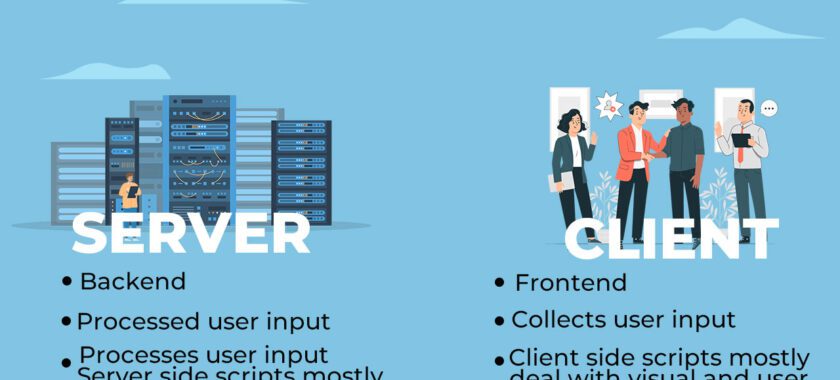
Difference Between Server and Client In the intricate world of computing, the relationship of difference between server and client forms the backbone of every interaction. This article unravels the intricacies, differences, and unique roles of servers and clients, providing a comprehensive understanding of their dynamic interplay. Understanding the Server Servers, the silent powerhouses of computing, serve as central repositories for data, applications, and resources. Demystifying Servers: The Command Centers of Computing delves into the multifaceted functions and significance of servers in a networked environment. The Client’s Perspective On the other end of the spectrum, clients are the end-users, leveraging the services and resources provided by servers. Client Chronicles: Navigating the User’s Experience sheds light on the client’s role and how it interacts with servers to fulfill user needs. Key Differences in Functionality While both servers and clients facilitate data exchange, their functions diverge significantly. Functionality Unveiled: Key Differences Between Servers and Clients dissects the distinct tasks each entity performs, highlighting their complementary nature. Communication Protocols Communication is key in the server-client relationship, and various protocols govern this interaction. Speaking the Language: Communication Protocols in Server-Client Dynamics explores the methods employed for seamless information exchange. Hardware and Software Differences Servers and clients differ not only in function but also in their hardware and software configurations. Inside Out: Navigating the Hardware and Software Realm of Servers and Clients provides insights into the unique components that define each entity. Scalability and Performance As demands fluctuate, scalability and performance become crucial considerations. Scaling Heights: How Servers and Clients Respond to Demand compares how servers and clients handle the challenges of scaling up or down. Security Measures Security is paramount in the digital landscape, and servers and clients have distinct security considerations. Guardians of Data: Security Measures for Servers and Clients outlines the safeguards implemented to protect information on both ends. Common Analogies for Understanding To simplify complex concepts, analogies prove invaluable. Analogical Insights: Understanding Servers and Clients in Everyday Terms employs relatable comparisons to enhance comprehension. Real-World Examples Concepts become clearer when applied to real-world scenarios. In Action: Real-World Examples of Server-Client Dynamics demonstrates how these entities work seamlessly in various everyday situations. Evolution Over Time The relationship between servers and clients has undergone substantial evolution since its inception. Over the Ages Chronicling the Evolution of Server and Client Technologies offers a historical perspective on the development of these fundamental components, highlighting the significant difference between server and client technologies. This journey through time explores the transformative phases that have shaped the intricate dynamics and functionalities of servers and clients, emphasizing the distinctions that set them apart in the digital landscape. Server vs. Client: Which Should You Learn About? For individuals navigating the expansive realm of computing, making the crucial decision between diving into server-side or client-side knowledge becomes paramount. Exploring the Difference Between Server and Client Choosing Your Path provides valuable insights to assist those contemplating which aspect of computing to delve into. Integration in Modern Computing In the contemporary digital landscape, servers and clients seamlessly integrate to deliver a cohesive computing experience. Harmony in Diversity: How Servers and Clients Integrate in Modern Computing explores the symbiotic relationship that defines today’s interconnected world. Challenges and Solutions No system is without challenges, and addressing them is integral to the efficiency of servers and clients. Navigating Challenges: Overcoming Hurdles in Server-Client Dynamics identifies common issues and provides practical solutions. Conclusion In conclusion, the server-client relationship is the beating heart of computing, with each entity playing a distinctive role. Their symbiotic connection ensures the smooth functioning of digital interactions, from data storage to end-user experiences.

Cyber Security Training in Jalandhar Cyber Security Training in Jalandhar. As technology continues to evolve and play a fundamental role in our everyday lives, cyber threats have become a growing concern for businesses of all sizes. With the increasing frequency and sophistication of cyber attacks, it’s never been more critical for companies to invest in cyber security training for their employees. If you’re a business owner in Jalandhar, you may be wondering how cybersecurity training can protect your company from these threats. In this article, we will explore the importance of cyber security course training in Jalandhar and how it can help safeguard your business from potential cyber-attacks. From understanding the latest threats to learning how to prevent and mitigate them, cyber security training can equip your employees with the necessary skills to keep your business secure in today’s digital landscape. So, let’s dive in and find out more about why cybersecurity training is essential for your business in Jalandhar. How Cyber Security Training in Jalandhar Can Protect Your Business Cybersecurity training plays a crucial role in protecting businesses from the ever-increasing threat of cyber attacks. By educating employees on best practices, potential risks, and proactive measures, businesses can significantly enhance their security posture. Here are some ways in which cybersecurity training can protect your business: By investing in cybersecurity training, businesses can empower their employees to become the first line of defense against cyber threats. The knowledge and awareness gained from such training significantly reduce the likelihood of successful cyber attacks, protect sensitive information, and safeguard the reputation and continuity of the business. Why Cyber Security Training is important for businesses Cyber security training is essential for businesses of all sizes to prevent cyber attacks, and data breaches, and protect sensitive information. Cybersecurity threats are ever-evolving, and cybercriminals are becoming more sophisticated in their approach to attacking businesses. As a result, businesses need to invest in cyber security training in Jalandhar to equip their employees with the necessary skills to identify and prevent cyber threats. Cybersecurity training can help employees understand the latest threats, learn how to prevent and mitigate them and develop skills to respond effectively in case of an attack. Cyber Security Risks and Threats Businesses in Jalandhar face various cybersecurity risks and threats. Cybercriminals can target businesses with different types of cyber attacks, including phishing, malware, ransomware, and social engineering attacks. These attacks can lead to data breaches, loss of sensitive information, financial loss, and reputational damage. Phishing attacks are the most common type of cyber attack and involve tricking employees into revealing sensitive information such as login credentials or credit card details. Malware attacks involve infecting a system with malicious software that can steal data, damage files, and disrupt business operations. Ransomware is a type of malware that encrypts files on the system and demands a ransom payment in exchange for the decryption key. Social engineering attacks involve tricking employees into revealing sensitive information or downloading malicious software by posing as a trusted entity, such as a bank or a vendor. Cyber Security Training for Employees Employees are the first line of defense against cyber attacks, and they need to be trained to identify and prevent these threats. Network security training for employees should cover topics such as password management, phishing attacks, social engineering, and safe browsing. Employees should also be trained to identify and report suspicious activity and understand the importance of data privacy and protection. Cybersecurity training for employees can be delivered in various formats, including online courses, in-person training, and simulations. Online courses are convenient and can be accessed from anywhere, while in-person training provides hands-on experience and interactive learning. Simulations are also an effective way to train employees by creating a realistic environment that simulates a cyber attack. Cyber Security Training for IT Professionals IT professionals are responsible for maintaining the security of the company’s IT infrastructure and need to be trained to prevent cyber attacks. Cybersecurity training for IT professionals should cover topics such as network security, vulnerability management, and incident response. IT professionals should also be trained to identify and respond to cyber threats, conduct security assessments, and implement security controls. Cybersecurity training for IT professionals can be delivered through industry certifications such as CompTIA Security+, CISSP, or CISM. These certifications provide a comprehensive understanding of cybersecurity concepts and best practices and demonstrate a high level of expertise in the field. Types of Cyber Security Training in Jalandhar There are various types of cyber security training available, depending on the needs of businesses. Some of the most common types of cybersecurity training include: 1. Online courses: Online courses are convenient and can be accessed from anywhere, making them an excellent option for remote employees or those with busy schedules. 2. In-person training: In-person training provides hands-on experience and interactive learning, allowing employees to ask questions and receive immediate feedback. 3. Simulations: Simulations create a realistic environment that simulates a cyber attack, allowing employees to practice responding to a cyber attack. 4. Industry certifications: Industry certifications such as CompTIA Security+, CISSP, or CISM provide a comprehensive understanding of cybersecurity concepts and best practices. Benefits of Cyber Security Training in Jalandhar Investing in cyber security training in jalandhar can provide various benefits for businesses, including: 1. Improved cybersecurity posture: Cybersecurity training can improve the company’s security posture by equipping employees with the necessary skills to identify and prevent cyber threats. 2. Reduced risk of data breaches: Cybersecurity training can reduce the risk of data breaches by educating employees on how to prevent and mitigate cyber-attacks. 3. Compliance with regulations: Cybersecurity training can help businesses comply with regulations such as GDPR or HIPAA, which require companies to implement appropriate security controls and protect sensitive information. 4. Increased employee awareness: Cybersecurity training can increase employee awareness of cybersecurity risks and threats, making them more vigilant and proactive in preventing cyber attacks. Cyber Security Training Institute in Jalandhar Several cyber security training institutes offer training courses and certifications in Jalandhar. Some of

Website Design Company in Jalandhar Hiring a Website Design Company for Your Business In today’s digital environment, maintaining an effective web presence is paramount to business success. Your website often serves as the first point of contact between potential customers and your organization – therefore, making a positive first impression is vital. Hiring a website design company in Jalandhar can bring many advantages to your business. Hiring professional teams to design and develop websites brings numerous benefits to any enterprise. Expert web designers can craft an appealing and user-friendly site for you, optimize it for search engines, and ensure mobile usability. A well-crafted website can improve online visibility, attract more traffic, convert more leads into sales opportunities, and open doors to further conversions and sales opportunities. Benefits of having a professional website A professionally designed website has become essential in today’s increasingly competitive business world. A well-crafted site can give your company an edge by drawing customers in and increasing brand recognition. A website also acts as a digital storefront showcasing your products or services globally while giving customers an interactive way to interact with you via online chat and contact forms. Professional websites can give your business credibility and build trust among potential customers. Poorly designed sites may turn them off due to appearing unprofessional, outdated, or hard to use, while well-designed ones will project an image of professionalism that inspires customer confidence. Why Hire a Website Design Company in Jalandhar? Engaging the services of a website design company in Jalandhar can bring many advantages to your business. A professional team will have expertise in web design and development, search engine optimization (SEO), and user experience design (UX), providing invaluable advice about industry best practices and design trends. An expert website designer company can save both time and money. Constructing a site from scratch can be time-consuming and expensive; leaving this task in the hands of professionals ensures your goals and needs are met quickly and efficiently and continues to remain up-to-date and secure. Where to Find Website Designer Companies Selecting a web design firm can be arduous, with numerous aspects such as experience, expertise, and pricing being factors when selecting. Here are some key points you should keep in mind when searching for a partner: Experience: When choosing a website design company in Jalandhar, look for one with an excellent track record. They should have experience working with businesses like yours and provide references or case studies to prove their past performance. Expertise: Search for a website design company in Jalandhar with expertise in website design, development, SEO, and UX design services that meet your business requirements and goals. Communication: Look for a website designer company that communicates regularly and is responsive to your needs while offering regular updates throughout the design and development process. Pricing: When searching for website designer companies, be wary of those offering hidden fees or unreasonable pricing structures. A reliable designer will provide a quote that details all costs upfront. The Website Design Process The website design process typically involves several vital steps: discovery, planning, design, development, testing, and launch. At the discovery phase of website development, a designer company will gather information about your business, target audience, and goals before creating a plan outlining your new website’s structure, features, and functionality. Design involves developing the visual appearance of a website, including layout, colour scheme, typography, and graphics. Development involves coding and adding functionality such as forms, e-commerce, or content management systems. Testing includes making sure the website is functional, user-friendly, and search engine optimized. In addition, website designers will ensure its responsive design, which means it can be seen across various devices and screen sizes. Launching your website involves making it accessible and visible to visitors while your website designer company ensures its security and backup processes remain in place regularly. Responsive Design With mobile traffic increasing exponentially, having a website with responsive design has never been more critical. A responsive site can adapt seamlessly across different screen sizes and devices for optimal user experience and boost SEO efforts as search engines prioritize mobile-friendly sites in their search results. Website design companies can ensure your website is responsive by employing responsive design techniques and testing it across various devices and screen sizes. In addition, they may also provide ongoing maintenance updates so that new devices emerge that ensure they continue to stay responsive. Search Engine Optimization for Websites Search engine optimization (SEO) refers to optimizing a website to rank higher in search engine results pages (SERPs). A web designer company can ensure your website meets these best practices through keyword research, on-page optimization, and link building. Keyword research involves identifying keywords and phrases prospective customers use when searching for your products or services online. On-page optimization involves writing website content around these terms while optimizing structure and meta tags to include these terms. Link building involves acquiring high-quality backlinks from other websites, which will increase your website’s authority and SERP ranking. Maintenance and updates for your website Regular website updates are vital in keeping it secure, up-to-date, and functional. A website designer company can offer ongoing website maintenance to optimize SEO and responsiveness across devices and screen sizes. Regular backups and security updates from them can ensure that your website remains safe from cyber threats while improving usability and functionality for users, improving the performance of the website. Website Designer vs. Website Builder Two main approaches exist when developing websites: hiring a web design firm or using a website builder. Although website builders may be more cost-effective for small businesses, they lack the customization and functionality of having one professionally designed from start to finish. Website designer companies provide various services, from website design and development to SEO optimization and maintenance. Furthermore, they can design tailored solutions tailored to meet the business goals. Whether hiring a website designer company or using a website builder ultimately comes down to your business goals and needs. If you require custom solutions that meet specific business demands,

Best Digital Marketing Training in Hoshiarpur Best Digital Marketing Training in Hoshiarpur. In today’s digital age, businesses need to have a strong online presence to stay competitive and reach their target audience. As a result, the demand for digital marketing professionals has skyrocketed in recent years. Hoshiarpur, a bustling city in Punjab, is no exception to this trend. As more and more businesses in Hoshiarpur recognize the importance of digital marketing, the need for skilled professionals in this field is on the rise. To meet this demand, numerous institutes and training centers have popped up across the city offering digital marketing courses. But with so many options available, it can be overwhelming to choose the right one. That’s why we’ve put together this ultimate guide to best digital marketing training in Hoshiarpur, providing you with everything you need to know to make an informed decision. From the top training institutes in the city to the skills you’ll learn and the career prospects in the field, we’ve got you covered. So, let’s dive in and explore the world of digital marketing course in Hoshiarpur! Why digital marketing training is important Digital marketing is the future of business. In today’s world, where everything is moving online, businesses need to have a strong online presence to stay relevant and competitive. This is where digital marketing comes in. Digital marketing involves promoting products or services using digital channels such as social media, search engines, email, and websites. With the right digital marketing skills, you can help businesses reach their target audience and increase their online visibility. Digital marketing training is essential if you want to pursue a career in this field. It will provide you with the knowledge and skills you need to succeed in the digital world. By learning about the latest digital marketing trends and techniques, you’ll be able to create effective digital marketing strategies that will help businesses stand out in the crowded online space. Types of digital marketing training programs There are various types of digital marketing training programs available in Hoshiarpur. Some of the most popular ones include: Classroom-based training: Classroom-based training is a traditional form of training where students attend classes in a physical classroom. This type of training is ideal for students who prefer face-to-face interaction with their trainers and peers. Classroom-based training programs are offered by various institutes in Hoshiarpur. Online training: Online training is a popular choice among students who prefer to learn at their own pace and convenience. Online training programs are flexible and can be accessed from anywhere with an internet connection. They are also more affordable than classroom-based training programs. Hybrid training: Hybrid training combines both classroom-based and online training. It provides students with the best of both worlds by offering them the flexibility of online training and the face-to-face interaction of classroom-based training. Best Digital marketing training institutes in Hoshiarpur Hoshiarpur is home to numerous digital marketing training institutes. Some of the top institutes in the city include: Digital Edge Institute: Digital Edge Institute is a leading digital marketing training institute in Hoshiarpur. It offers classroom-based and online training programs on various digital marketing topics such as SEO, SEM, social media marketing, and content marketing. The institute has experienced trainers who provide hands-on training to students. Digital Marketing Profs: Digital Marketing Profs is another popular digital marketing training institute in Hoshiarpur. It offers classroom-based and online training programs on various digital marketing topics such as SEO, PPC, social media marketing, and email marketing. The institute has a team of certified trainers who provide personalized attention to students. O7 Services Institute: O7 Services is a renowned digital marketing training institute in Hoshiarpur. It offers classroom-based and online training programs on various digital marketing topics such as SEO, PPC, social media marketing, and content marketing. The institute has experienced trainers who provide practical training to students. Factors to consider when choosing a digital marketing training institute Choosing the right digital marketing training institute is crucial for your career. Here are some factors to consider when choosing a digital marketing training institute: Trainer’s experience: The trainer’s experience is an important factor to consider when choosing a digital marketing training institute. Experienced trainers can provide valuable insights and practical knowledge to students. Course curriculum: The course curriculum should be up-to-date and cover all the latest digital marketing trends and techniques. It should also provide practical training on various digital marketing tools and platforms. Certification: The institute should provide certification upon completion of the training program. A certification from a reputable institute can increase your chances of getting hired in the digital marketing field. Reviews and ratings: Check the institute’s reviews and ratings online before enrolling in a training program. This will give you an idea of the institute’s reputation and the quality of training provided. Course curriculum for digital marketing training Digital marketing training curriculum varies depending on the institute and the program. However, most digital marketing training programs cover the following topics: Search engine optimization (SEO): SEO involves optimizing websites to rank higher in search engine results pages (SERPs). It involves various techniques such as keyword research, on-page optimization, and link building. Pay-per-click (PPC) advertising: PPC advertising involves placing ads on search engines and social media platforms and paying for each click. It involves various techniques such as keyword research, ad copywriting, and bidding strategies. Social media marketing: Social media marketing involves promoting products or services on social media platforms such as Facebook, Instagram, and Twitter. It involves various techniques such as content creation, community management, and paid advertising. Email marketing: Email marketing involves sending promotional emails to a targeted audience. It involves various techniques such as email design, list building, and automation. Content marketing: Content marketing involves creating and distributing valuable content to attract and retain a targeted audience. It involves various techniques such as content creation, distribution, and analytics. Skills you will gain from digital marketing training Digital marketing training will provide you with the following skills: Analytical skills: Digital marketing

Digital Marketing Training in Jalandhar Are you ready to embark on a journey to digital marketing excellence? Look no further than Jalandhar! With its booming business landscape, the demand for skilled digital marketers has skyrocketed. Whether you’re a business owner seeking to boost your online presence or an aspiring marketing professional, enrolling in top-notch digital marketing training in Jalandhar can be the key to unlocking success. In Jalandhar’s competitive market, staying ahead is essential. A comprehensive training program will equip you with the latest strategies and tools to conquer the digital realm. From search engine optimization (SEO) and social media marketing to content creation and analytics, you’ll gain invaluable skills to strategize and execute powerful marketing campaigns. Why digital marketing training is important Digital marketing is the future of business. In today’s world, where everything is moving online, businesses need to have a strong online presence to stay relevant and competitive. This is where digital marketing comes in. Digital marketing involves promoting products or services using digital channels such as social media, search engines, email, and websites. With the right digital marketing skills, you can help businesses reach their target audience and increase their online visibility. Digital marketing training is essential if you want to pursue a career in this field. It will provide you with the knowledge and skills you need to succeed in the digital world. By learning about the latest digital marketing trends and techniques, you’ll be able to create effective digital marketing strategies that will help businesses stand out in the crowded online space. Types of digital marketing training programs There are various types of digital marketing training programs available in Jalandhar. Some of the most popular ones include: Classroom-based training: Classroom-based training is a traditional form of training where students attend classes in a physical classroom. This type of training is ideal for students who prefer face-to-face interaction with their trainers and peers. Classroom-based training programs are offered by various institutes in Jalandhar. Online training: Online training is a popular choice among students who prefer to learn at their own pace and convenience. Online training programs are flexible and can be accessed from anywhere with an internet connection. They are also more affordable than classroom-based training programs. Hybrid training: Hybrid training combines both classroom-based and online training. It provides students with the best of both worlds by offering them the flexibility of online training and the face-to-face interaction of classroom-based training. Digital marketing training institutes in Jalandhar Jalandhar is home to numerous digital marketing training institutes. Some of the top institutes in the city include: O7 Services Institute: O7 Services Institute is a leading digital marketing training institute in Jalandhar. It offers classroom-based and online training programs on various digital marketing topics such as SEO, SEM, social media marketing, and content marketing. The institute has experienced trainers who provide hands-on training to students. Digital Marketing Profs: Digital Marketing Profs is another popular digital marketing training institute in Jalandhar. It offers classroom-based and online training programs on various digital marketing topics such as SEO, PPC, social media marketing, and email marketing. The institute has a team of certified trainers who provide personalized attention to students. O7 Services Institute: O7 Services is a renowned digital marketing training institute in Jalandhar. It offers classroom-based and online training programs on various digital marketing topics such as SEO, PPC, social media marketing, and content marketing. The institute has experienced trainers who provide practical training to students. Factors to consider when choosing a digital marketing training institute Choosing the right digital marketing training institute is crucial for your career. Here are some factors to consider when choosing a digital marketing training institute: Trainer’s experience: The trainer’s experience is an important factor to consider when choosing a digital marketing training institute. Experienced trainers can provide valuable insights and practical knowledge to students. Course curriculum: The course curriculum should be up-to-date and cover all the latest digital marketing trends and techniques. It should also provide practical training on various digital marketing tools and platforms. Certification: The institute should provide certification upon completion of the training program. A certification from a reputable institute can increase your chances of getting hired in the digital marketing field. Reviews and ratings: Check the institute’s reviews and ratings online before enrolling in a training program. This will give you an idea of the institute’s reputation and the quality of training provided. The course curriculum for digital marketing training in Jalandhar The digital marketing training curriculum varies depending on the institute and the program. However, most digital marketing training programs cover the following topics:z Search engine optimization (SEO): SEO involves optimizing websites to rank higher in search engine results pages (SERPs). It involves various techniques such as keyword research, on-page optimization, and link building. Pay-per-click (PPC) advertising: PPC advertising involves placing ads on search engines and social media platforms and paying for each click. It involves various techniques such as keyword research, ad copywriting, and bidding strategies. Social media marketing: Social media marketing involves promoting products or services on social media platforms such as Facebook, Instagram, and Twitter. It involves various techniques such as content creation, community management, and paid advertising. Email marketing: Email marketing involves sending promotional emails to a targeted audience. It involves various techniques such as email design, list building, and automation. Content marketing: Content marketing involves creating and distributing valuable content to attract and retain a targeted audience. It involves various techniques such as content creation, distribution, and analytics. Skills you will gain from digital marketing training in Jalandhar Digital marketing training will provide you with the following skills: Analytical skills: Digital marketing involves analyzing data and metrics to measure the effectiveness of marketing campaigns. Digital marketing training will teach you how to interpret data and make informed decisions based on it. Creative skills: Digital marketing involves creating and promoting content that stands out in the crowded online space. Digital marketing training will teach you how to create engaging content that resonates with your

Computer Courses After 12th Computer Courses After 12th Science: Computer courses are now a part of all higher education, even for students who have just completed 12th grade science. In recent years, technological advances have led to an unprecedented demand for professionals with both technical and creative abilities. The field of computer sciences has seen a rise in innovative courses to meet the changing needs of the industry. The options are limitless. From web design and graphic design to artificial intelligence, machine-learning, and cybersecurity, there is something for everyone. It can be difficult to select the best course for your career and interests when there are so many choices. This article will explore the top trends for computer courses after 12th grade science. You can use this information to make an educated decision. Let’s buckle up and dive into the exciting realm of computer science. Importance of Computer Courses After 12th Science The 12th grade is a crucial period for students as it marks the end of their high school education. It’s a time when they need to make important decisions about their future career paths. With the rapid advancement of technology, computer courses have become an essential part of higher education. It’s no longer sufficient to have basic computer skills; employers now demand professionals who possess advanced technical skills and creative abilities. Computer courses after 12th science offer students the opportunity to gain the necessary skills and knowledge needed to succeed in the tech industry. These courses provide a strong foundation in computer science, programming languages, software development, and various other fields that are in high demand today. Additionally, these courses offer practical training and hands-on experience, which is essential for students to develop the necessary skills to work in the industry. If you’re interested in pursuing a career in the tech industry, then computer courses after 12th science are a must. They provide you with the knowledge, skills, and experience necessary to succeed in the competitive world of technology. Importance of Computer Courses After 12th Science The 12th grade is a crucial period for students as it marks the end of their high school education. It’s a time when they need to make important decisions about their future career paths. With the rapid advancement of technology, computer courses have become an essential part of higher education. It’s no longer sufficient to have basic computer skills; employers now demand professionals who possess advanced technical skills and creative abilities. Computer courses after 12th science offer students the opportunity to gain the necessary skills and knowledge needed to succeed in the tech industry. These courses provide a strong foundation in computer science, programming languages, software development, and various other fields that are in high demand today. Additionally, these courses offer practical training and hands-on experience, which is essential for students to develop the necessary skills to work in the industry. If you’re interested in pursuing a career in the tech industry, then ai courses after 12th science are a must. They provide you with the knowledge, skills, and experience necessary to succeed in the competitive world of technology. Top Trends in Computer Courses After 12th The field of computer science is constantly evolving, and new courses are being introduced regularly. Here are some of the top trends in computer courses after 12th science that you need to know. Artificial intelligence (AI) and machine learning (ML) are two of the most exciting fields in computer science today. AI involves developing intelligent machines that can perform tasks that typically require human intelligence, such as recognizing speech, making decisions, and translating languages. ML is a subset of AI that involves training machines to learn from data, without being explicitly programmed. AI and ML are essential in various industries, including healthcare, finance, and e-commerce. As a result, there is a high demand for professionals who possess these skills. Courses in AI and ML cover topics such as data mining, deep learning, neural networks, and natural language processing. Web development and design are essential skills in today’s digital age. With the increasing reliance on the internet, businesses need to have a strong online presence to remain competitive. Web development and design courses cover topics such as HTML, CSS, JavaScript, and various web development frameworks. These courses provide students with the necessary skills to create and maintain websites, web applications, and mobile applications. Additionally, they teach students how to design user-friendly interfaces and optimize their websites for search engines. With the increasing reliance on technology, cybersecurity has become a crucial concern for businesses and individuals alike. Cybersecurity courses teach students how to protect digital assets from cyber threats such as hacking, phishing, and malware attacks. Ethical hacking courses, on the other hand, teach students how to hack into computer systems to identify vulnerabilities and fix them. Cybersecurity and ethical hacking are essential skills in today’s digital age. These courses cover topics such as network security, cryptography, and ethical hacking techniques. Cloud computing has become a popular option for businesses and individuals who want to store and access data remotely. Cloud computing courses teach students how to use cloud-based services such as Amazon Web Services (AWS), Microsoft Azure, and Google Cloud Platform. These courses cover topics such as cloud architecture, virtualization, and cloud security. Cloud computing skills are in high demand today, and there are various job opportunities available in this field. Data science and analytics involve using data to make informed decisions. These skills are essential in various industries, including healthcare, finance, and e-commerce. Data science courses teach students how to collect, analyze, and interpret large data sets using statistical and machine learning techniques. These courses cover topics such as data mining, data visualization, and predictive analytics. Additionally, they teach students how to use tools such as R, Python, and SQL to analyze data and create data models. Mobile app development has become a popular field in recent years, with the increasing use of smartphones and tablets. Mobile app development courses teach students how to develop
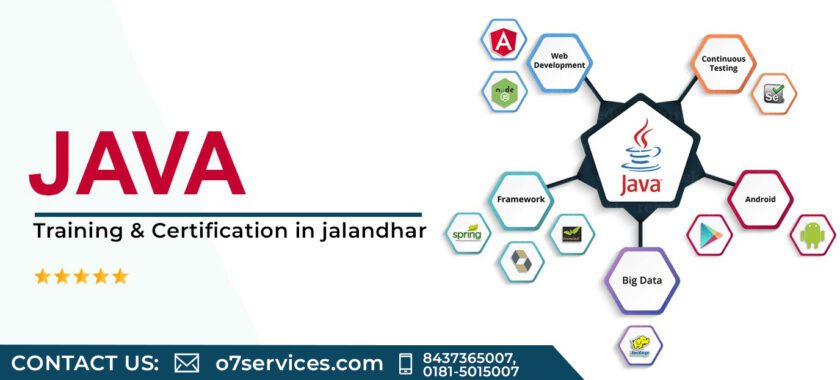
Best Java Training Institute Near Me Looking for a Best Java Training Institute Near Me Your Location? we will provide you with information about the benefits of joining a Java coaching and training institute, the key features to consider when choosing one, and a list of some reputed institutes near your area. Why Join a Java Coaching and Training Institute? Java is one of the most popular programming languages globally, widely used in developing a range of applications, including web, mobile, and enterprise software. Whether you are a beginner or an experienced programmer, joining a Java coaching and training institute can offer several advantages: Key Features to Consider: When selecting a Java coaching and training institute, consider the following factors: Java Coaching and Training Institutes Near You: Here are some reputed Java coaching and training institutes near your area: We recommend visiting the websites of these institutes to gather more information, including course details, fees, and admission procedures. Additionally, you can contact them directly for any specific queries you may have. In conclusion, joining a Java coaching and training institute can significantly enhance your Java programming skills and boost your career prospects. Consider the benefits, key features, and reputations of different institutes near you to make an informed decision. Happy learning!

Android App Development Training Institutes in Jalandhar Android App Development Training Institutes in Jalandhar is a comprehensive course for those who want to learn how to create Android apps. This course will teach you how to develop Android apps from scratch and how to deploy them in the Google Play Store. It will also cover topics such as designing user interfaces, connecting to back-end services, and integrating third-party libraries. You will be able to create your own Android apps and be ready to publish them in the Google Play Store. You will also learn best practices in mobile development and gain an understanding of the Android market. Why choose O7 services for Android App Development Training in Jalandhar, Punjab? O7 Services is one of the best Android App Development Training Institutes in Jalandhar, Punjab. It provides comprehensive training with live projects and hands-on experience. O7 services provide the best app development training with experienced trainers and the latest tools and technologies. They also offer comprehensive guidance on Android app development and provide personalized guidance on projects. They also provide guidance on the Google Play Store submission process and other related services. The course is designed to help students gain the skills and knowledge they need to develop successful Android applications. 1) Comprehensive course with live projects – O7 services provides a comprehensive course on Android app development with live projects and hands-on experience. 2) Experienced trainers – The trainers at O7 services are experienced professionals who have worked on multiple projects. They provide personalized guidance on each project and help students understand the concepts. 3) Latest tools & technologies – O7 services use the latest tools and technologies to ensure students get the best app development training. 4) Guidance on Google Play Store submission process – O7 services provide guidance on the Google Play Store submission process and other related services. 5) Comprehensive guidance on Android app development – O7 services provide comprehensive guidance on Android app development and help students understand the concepts. Conclusion Android App Development Training with Live Projects is a comprehensive course for anyone who wants to learn how to create Android apps. At O7 Services in Jalandhar, Punjab, you will get the best app development training with experienced trainers and the latest tools and technologies. They also provide comprehensive guidance on Android app development and help students understand the concepts. Moreover, they provide guidance on the Google Play Store submission process and other related services. So, if you want to create your own Android apps and publish them in the Google Play Store, O7 services is the best choice.

What is React JS? React JS is a JavaScript library for building user interfaces and components. It’s used by developers and teams to create fast, scalable, and interactive web applications. Taking React training will help you gain a better understanding of the fundamentals of React and how to use it to create powerful and engaging applications. Here are the top 5 reasons to learn React JS from O7 Services. 1. React is the future: React is one of the most popular JavaScript libraries and is used by many large companies including Facebook, Instagram, and Airbnb. This makes it an essential skill for any developer looking to stay ahead of the curve and be competitive in the job market. 2. Increase your earning potential: Learning React can help you to increase your earning potential. As React is becoming more and more common in the developing world, having the skills to build React applications can be a great way to stand out from the competition and land higher-paying positions. 3. Learn from the best: O7 Services offers React training from some of the best instructors in the industry. Our instructors have years of experience in developing React applications and can teach you the best practices for building efficient and scalable applications. 4. Get practical experience: During the course, you will get hands-on experience building React applications. This will help you to gain the confidence to develop your own applications and help you to stand out from the competition. 5. Get support: O7 Services offers support to all our learners. We understand that learning a new technology can be a challenge and our instructors are here to help you every step of the way. With our support, you can be sure that you will have the best chance of mastering React and gaining the skills to build powerful applications. Conclusion Taking a React training from O7 Services can help you gain the necessary skills to build powerful React applications and increase your earning potential. With our experienced instructors, hands-on experience, and support, you will have the best chance of mastering React and becoming a React expert.